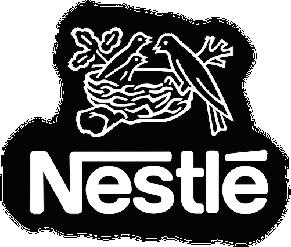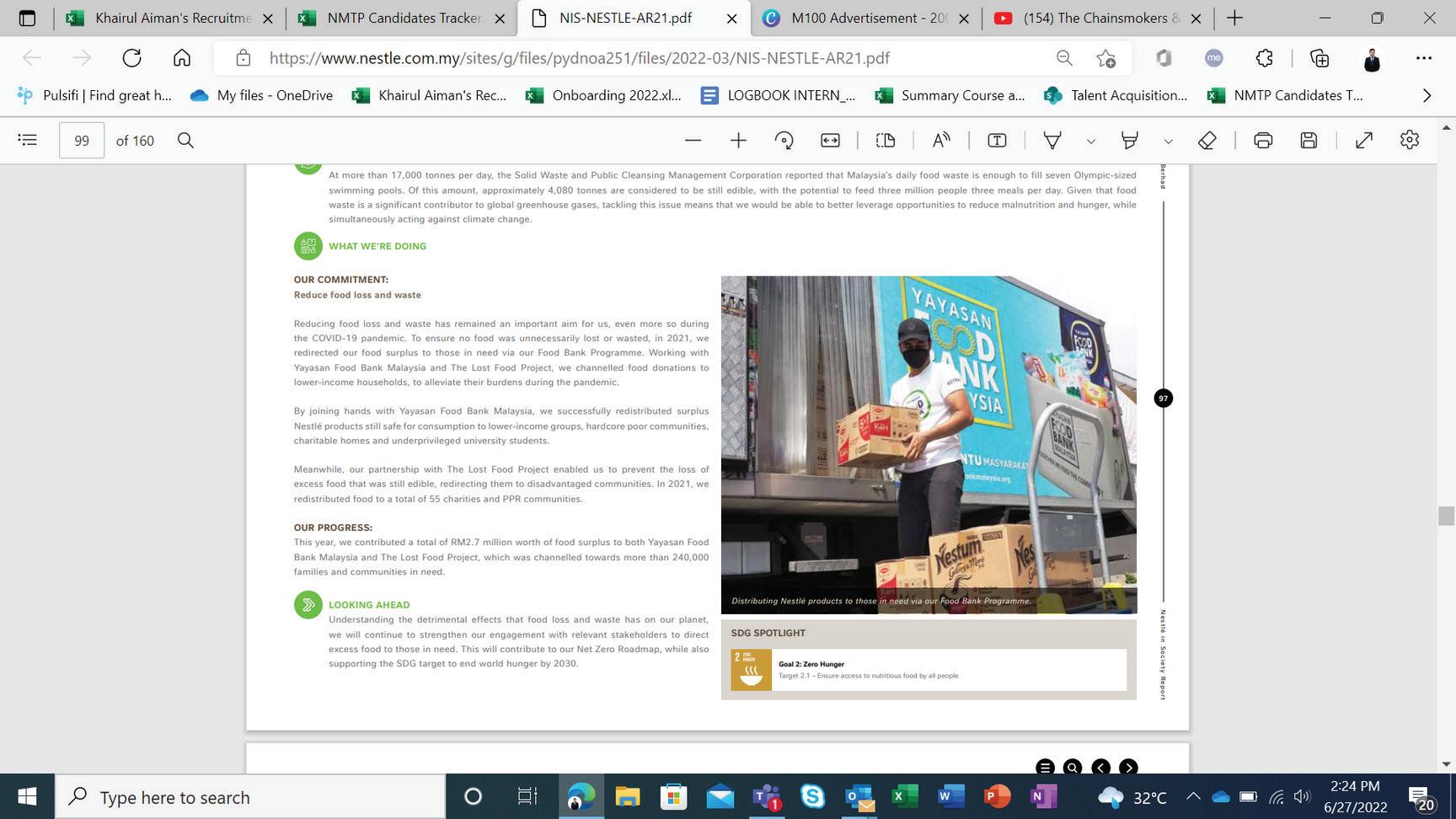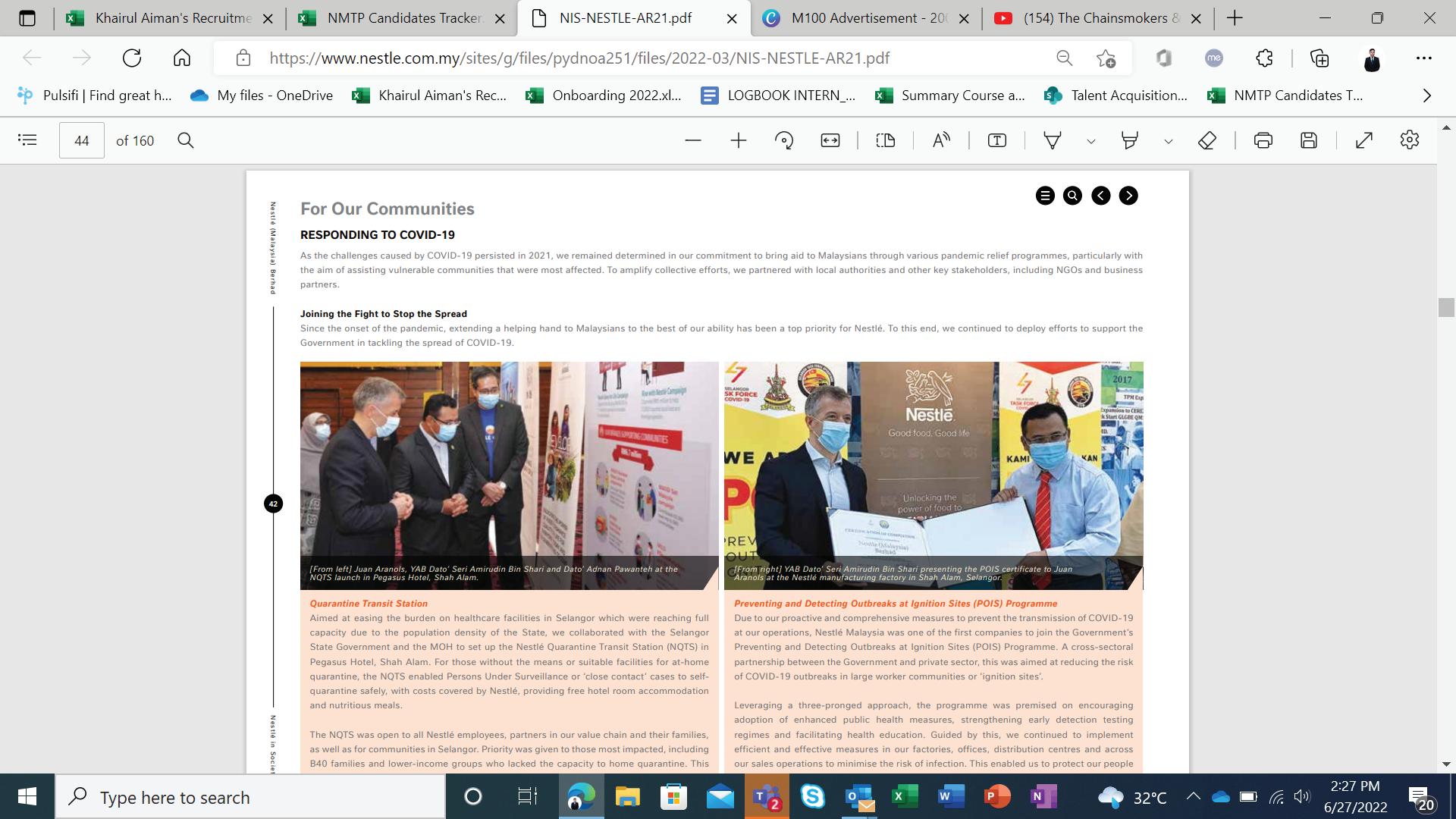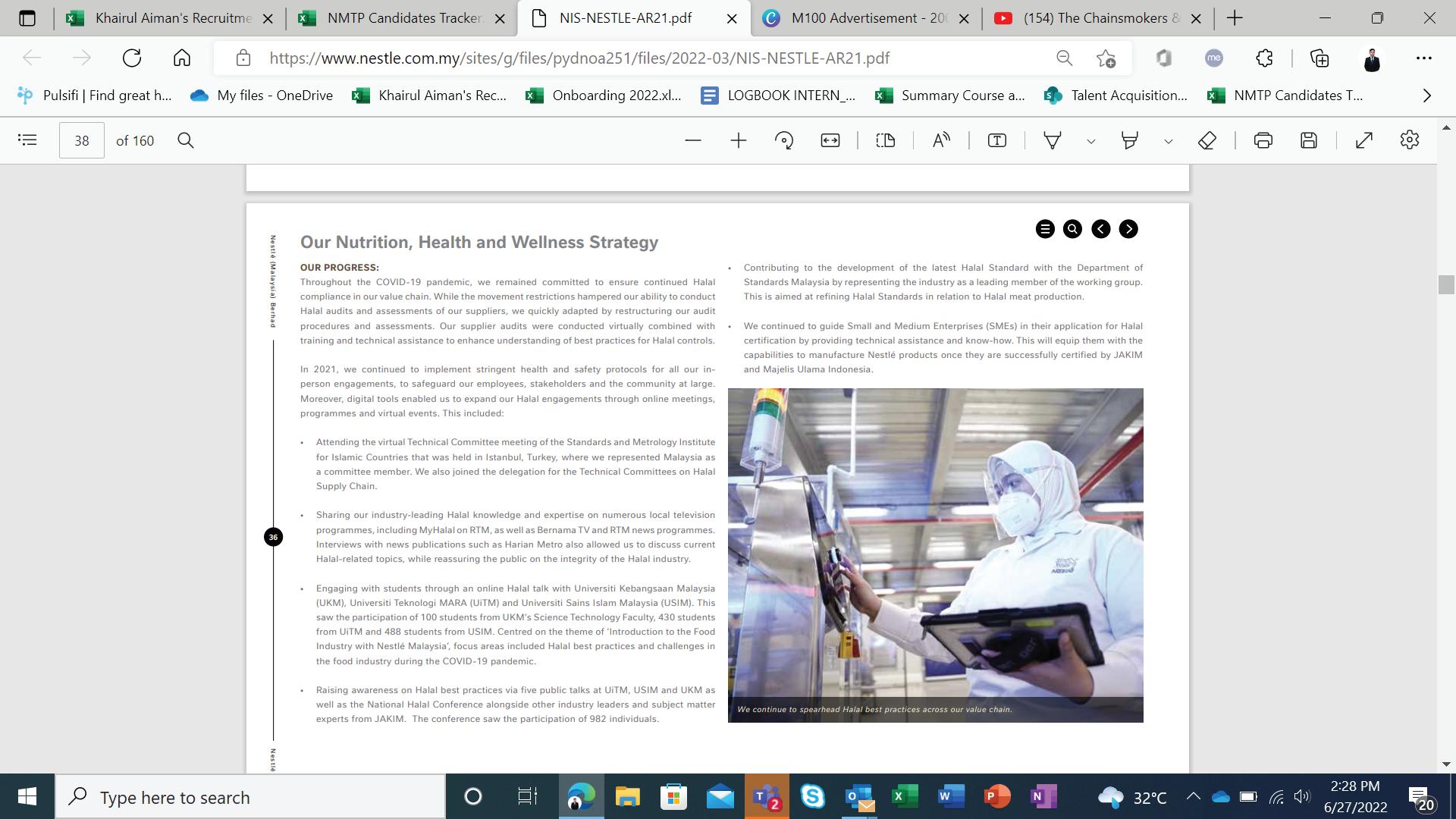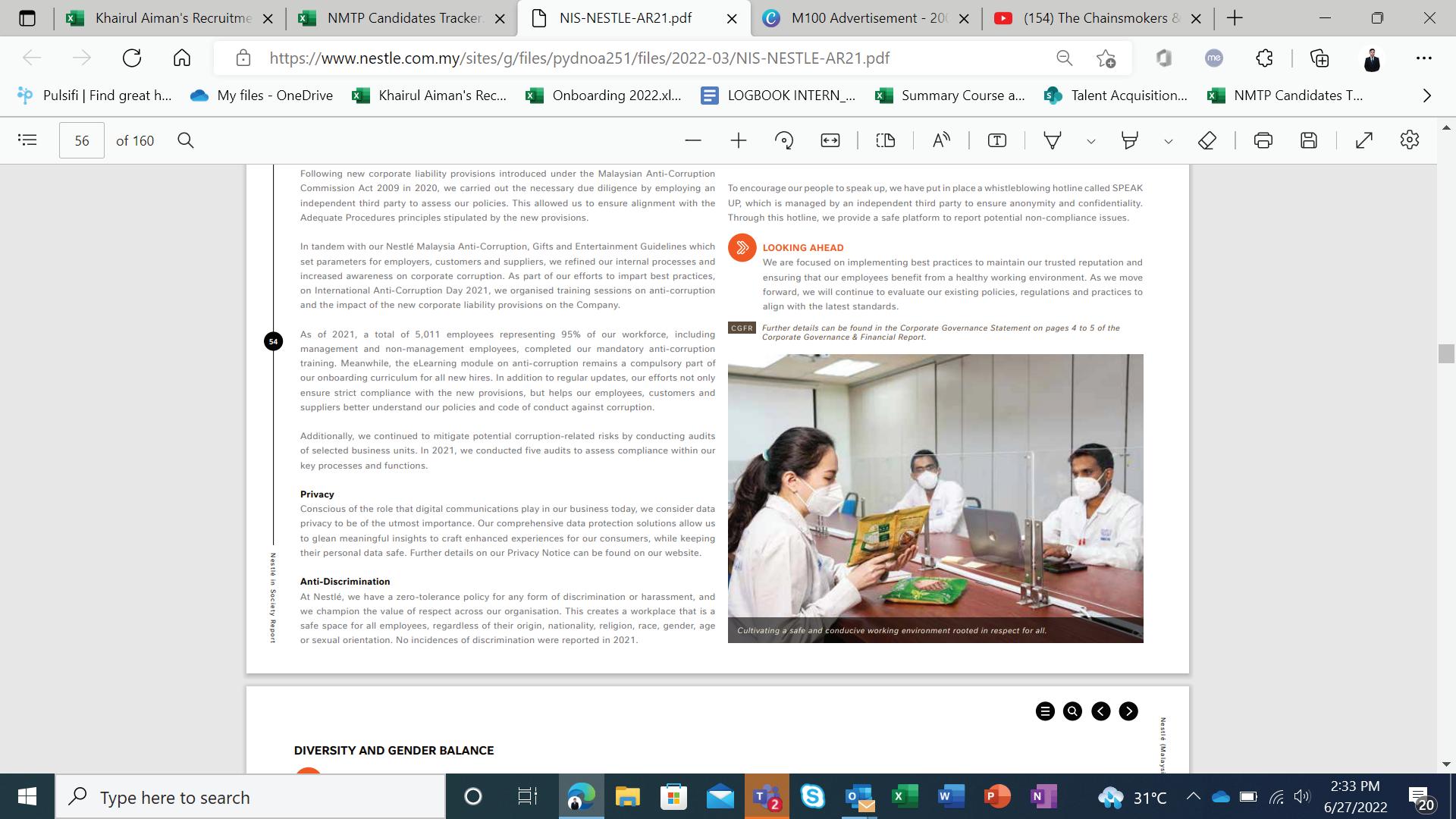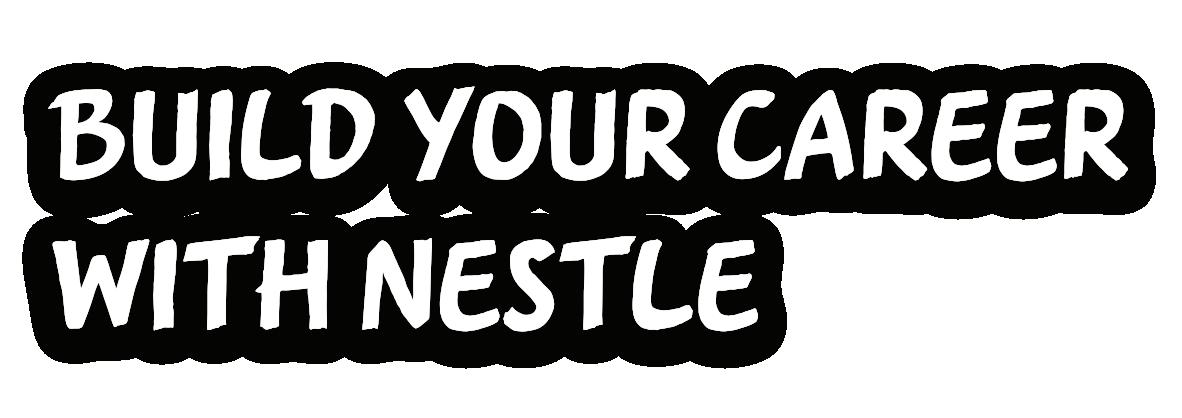












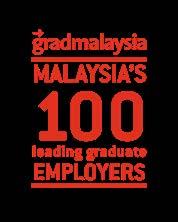
Bank Islam Malaysia Berhad
BDO Malaysia
CIMB Bank Berhad
Deriv Services Sdn Bhd
Employees Provident Fund (EPF)
ExxonMobil Malaysia
EY Malaysia
FWD Takaful
Great Eastern Life Assurance (Malaysia) Berhad
Hartalega NGC Sdn Bhd
Malaysia
(Malaysia)
Malaysia
Malaysia
(SME)
Editorial
Benny Razali, Jasmine Mun
Designer
Anis Amsham
Anis Amsham, Cordelia Wong
Business Development
Jason Ng, Sarah Suhaiman, Vivien Chai
Client Relations
Nor Fatihah Huzaimah, Farihah Wasfi
Alfred Leo, Izzaty Sabri, Vimala a/p Shanmugam
Publisher
Isaac Hee
Published by
GTI Media Sdn Bhd
P-7-12, Street Mall One South, Jalan OS, Taman Serdang Perdana, 43300 Seri Kembangan, Selangor, Malaysia
Correspondence
PO Box 111, Pejabat Pos Seri Kembangan, 43300 Seri Kembangan, Selangor, Malaysia
Tel +(603) 8953 0055
Fax +(603) 8953 0066 Email admin@gtimedia.asia
Printer
Times Offset (Malaysia) Sdn Bhd
Bangunan Times Publishing Lot 46, Subang Hi-Tech Industrial Park Batu Tiga, 40000 Shah Alam Selangor Darul Ehsan, Malaysia
© GTI Media Sdn Bhd 2022
The world’s largest graduate careers media and research business
is committed to providing multimedia solutions for
and graduate careers.
Founded in 1988, the company has steadily expanded from its Oxfordshire, UK, base to operate from offices all over the globe, including Ireland, France, Germany, Switzerland, Malaysia and Singapore.
GTI publishes more than 100 careers
in Ireland, GTI
the UK, GTI’s major brands are TARGETjobs, TARGETcourses and TARGET
the official careers publisher for all universities with the gradireland range of products; in Germany, GTI operates as Staufenbiel – the most respected name for graduate careers information in the country. In addition, GTI is the publishing partner for more than 30 of the finest universities and business schools in Europe and Asia through its Careers Guides GTI also helps clients measure the performance of their employer brand and provides strategies to improve it through trendence, Europe’s leading employer branding research company, that has extended the trendence Graduate Barometer series to Asia.
GTI Asia officially opened in Malaysia in October 2000 as the regional office for Asia Pacific. We are committed to providing students and graduates in the region with the right information at the right time and offering our clients the widest reach possible. In Malaysia, this is done through the brand gradmalaysia publications and careers website, gradmalaysia.com
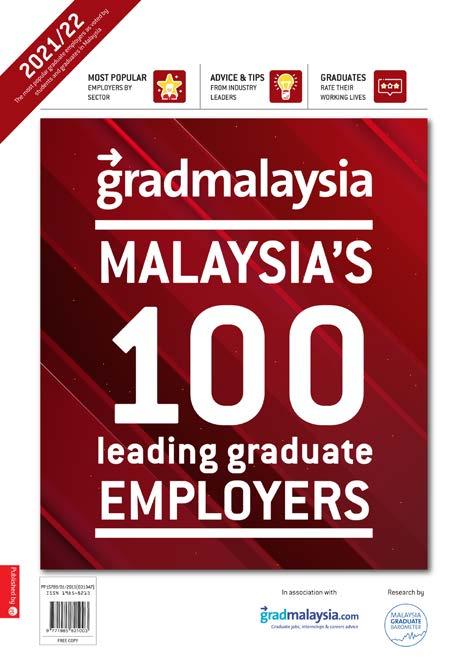
All rights reserved. No part of this publication may be reproduced by any means including, but not limited to, photocopying or storage in a retrieval system in any form without the prior written consent of GTI. The views expressed in the articles are those of authors and their publication does not necessarily imply that such views are shared by GTI. Whilst every care has been taken in the completion of this publication, the publisher cannot accept responsibility for any inaccuracies, or for any loss, direct or consequential, arising in connection with information in this publication.

Let’s take a very quick look at the inner workings of the gradmalaysia Malaysia’s 100 Leading Graduate Employers survey in 2021!

Despite its quick completion rate (15 minutes on average), the survey boasts high numbers of responses and accuracy rates. Our data has a 95% confidence level, which means that if you were to throw a ball at random into a crowd of local students anywhere in the country, whichever lucky soul the ball hits will tell you more or less the exact same things captured in our survey 95% of the time! This means our survey offers valuable and meaningful insights into student preferences, ethics and values when it comes to job-hunting.
This system reflects the process most students undergo when making career choices regarding who they would like to work with. The survey not only compiles a list of Malaysia’s 100 Leading Graduate Employers but also provides a glimpse of how these companies rank among themselves within their own sectors. Field research took place from Jan to Sept 2021.
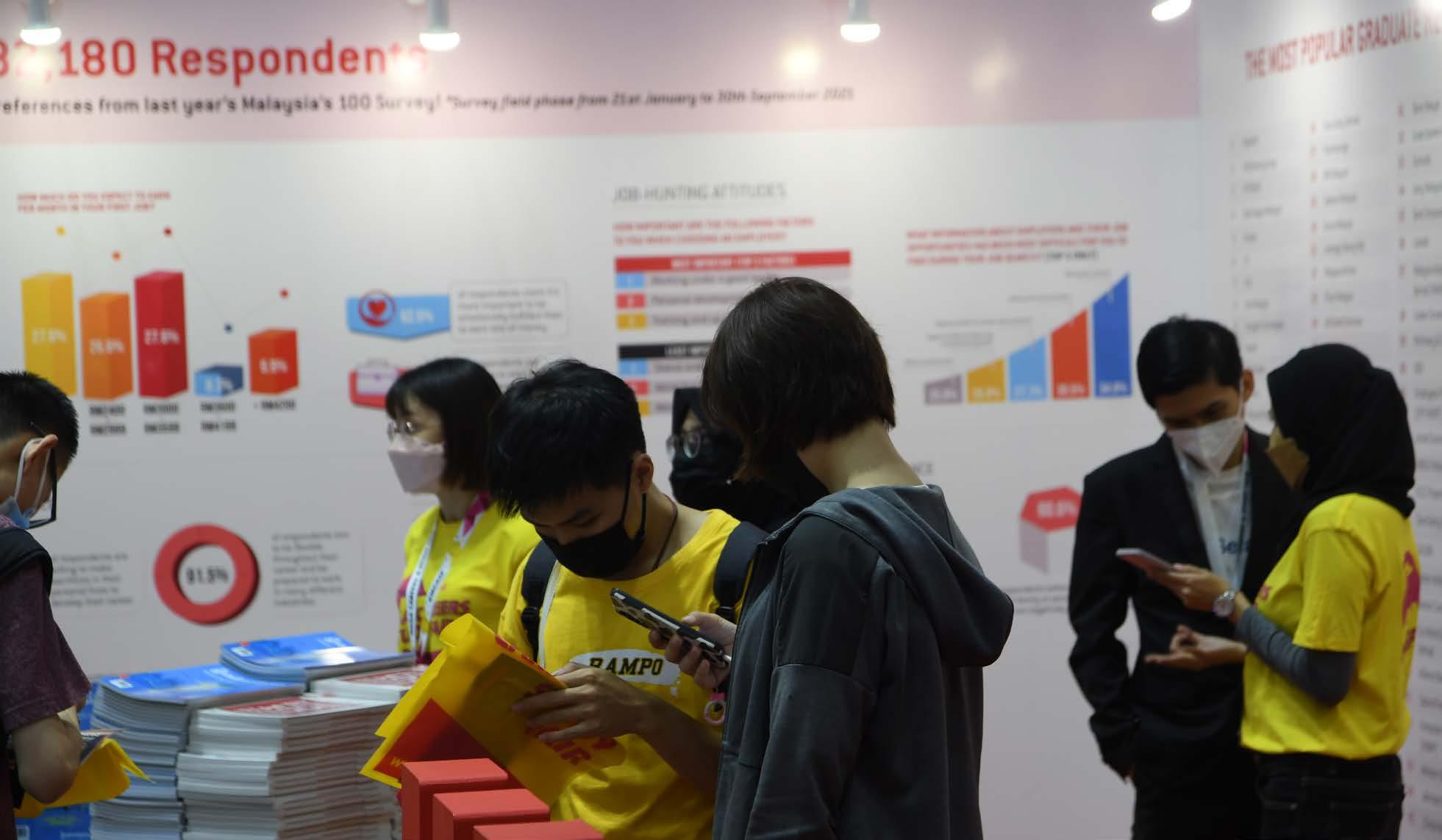
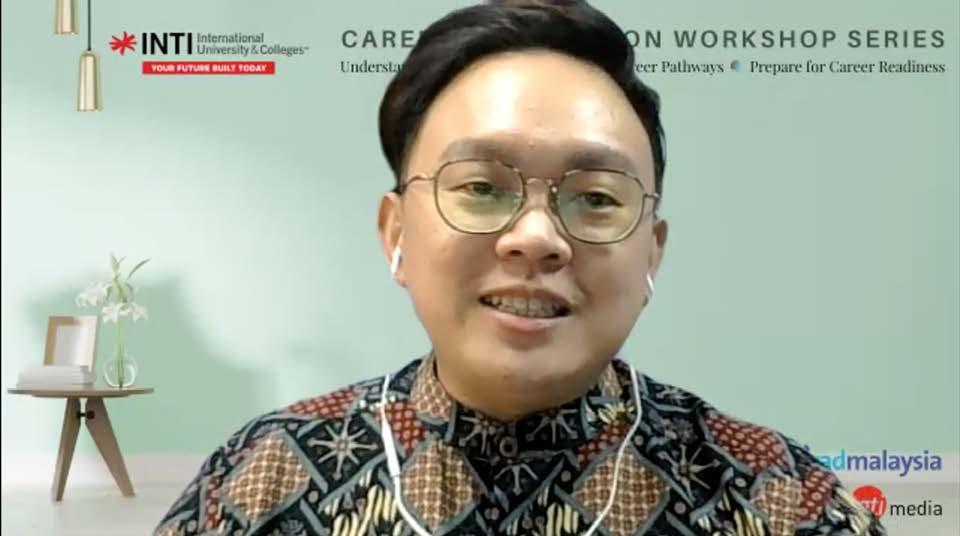

In addition, it also provides insight into the differences between firstyear students and those in their penultimate or final years regarding job
preferences. Differences between students from different degree disciplines can also be picked out, such as how engineering students aiming for positions with electronics manufacturers seek out job opportunities compared to those looking to enter the public sector.
However, gathering such a large amount of data is a huge amount of work, so why do we go through with this each year? For us, we hope that employers will utilise these results as a foundation to not only better understand student mindsets, but to improve on how they can engage with them as they enter the workforce in the near future.
As for the students reading this, we hope these results can help you better weigh your options between your choice of employers. We also hope that you will become more self-aware as you begin your journey towards the working world, and the challenges that await you with prospective employers.
With that said, let’s turn the page and get right into it!
The pandemic brought along a wave of change for nearly all employment sectors in Malaysia. Here, we’ll outline what this means for fresh graduates about to embark on their early careers.
It goes without saying that the COVID-19 pandemic has had huge impacts on the local graduate recruitment landscape in Malaysia. Whether in terms of the varying number of vacancies available for different sectors, the recruitment processes used, or whether remote working or in-office work prevails - these are all factors that graduates can expect to encounter in their job search this year and beyond.
I
f you’re a final-year student, or a fresh graduate in the midst of your job search, here are a few factors for you to take note of as you begin your career journey during these interesting times.
As of June of 2022, the Malaysian job market has recorded a 31 percent increase in job demand, indicating a spree in hiring activity on an annual basis, according to the Monster Employment Index (MEI).

As the country is currently recovering in its endemic phase, several industries are innovating on their pre-pandemic business processes and experimenting with more efficient ways of doing business, more so for the tourism, hospitality, and retail sectors. More companies are getting flexible with working hours and the need for the employees to be in the office. Some are offering better employee benefits, while some are even restructuring salary plans and staff incentives to make positions more attractive to future employees.
The race for talent is also heating up between employers, especially on online platforms with job postings nationwide increasing by 106.6 percent in May 2022 alone. Employers’ willingness to continue accommodating virtual interviews and hiring assessments have also expedited hiring processes as well. A number of corporations have already begun to migrate the whole hiring process online, as they realised the pros – easier to schedule, flexible in terms of venue, and time savings – are outweighing the cons.
In short, it is very much a jobseekers’ market right now, with employers competing aggressively for top talent to rebuild their workforces as they prepare to face a post-COVID-19 world. This is definitely great news for graduates, who may find themselves with much more bargaining power than before during this period of time.
It is very much a jobseekers’ market right now, with employers competing aggressively for top talent as they prepare to face a post-COVID-19 world.
COVID-19 also brought huge changes to the way we do work. Two years of being in and out of lockdowns and public movement restrictions taught most of us that sometimes all you really need to have to work is your laptop and a good internet connection. In a recent global study by Cisco, 60 percent of employees in Malaysia believe that quality of work has improved with the availability of hybrid work arrangements, while 55 percent felt that their productivity increased thanks to such arrangements too.
A lot of working adults realised that being in control of their surroundings while they are working has tangible benefits to their lifestyle, which in the end make them more satisfied and improve their well-being, contributing to better productivity and work performance. Not having to drive to and from work gives them more time to work out, eat healthier, or pursue hobbies, leading to a healthier lifestyle. Not to mention they also have more hours to spend with their families and friends.
However, employers are still on the fence about whether to go fully remote or adopt hybrid working modes instead. Despite it being easier to have meetings and discussions online, internet connectivity continues to be an issue for remote workers, especially given the inconsistent quality of internet infrastructure in Malaysia. Access to technology is also a concern, as only 1 out of 5 employees are actually convinced that their companies are ready to implement remote or hybrid working with their current technology resources, according to another recent survey.

However, despite the ongoing debates concerning these key points, the general consensus among employers is that remote or hybrid working arrangements are likely here to stay in some form or other. The scope of these arrangements and the expectations that come along with them are something graduates should pay attention to as well when evaluating potential job offers.
If anything, the pandemic made the importance and relevance of soft skills more prominent than ever. Being forced to socially distance and live almost entirely online for the past two years has made the human touch all the more valuable and in-demand, and graduates can expect to see a greater emphasis on testing for those skills in the hiring process too.
With remote/hybrid working being a new norm, new business platforms, and smaller teams to work with, communication skills, interpersonal skills, and teamwork skills are clearly at the top of the “most-wanted” list. A lot of nonverbal communication is lost when you’re working remotely, after all. So graduates need to be a lot more proactive with communication and touching base with their colleagues and superiors in order for things to keep running smoothly at work.
Customer service and client-facing skills are also a huge plus for most jobs now. Many businesses are now trying to recover lost revenue and opportunities from the last two years, and that translates to a greater need for all staff members to contribute to top-line growth in some way. Regardless of your role, you can expect to be engaging with both internal and external stakeholders in some form, so knowing how to conduct yourself professionally as a company representative will be a huge differentiating factor for recruiters.
It’s important to note that these skills aren’t things you’re “born with” or gain overnight. They have to be learned and refined through consistent practice. So be on the lookout for opportunities to practice and develop these skills before you graduate - whether through student society activities, class projects, volunteer work, or internships.





respondents







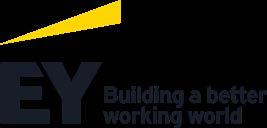
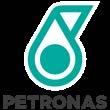







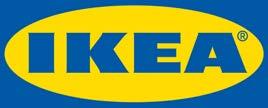


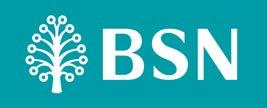
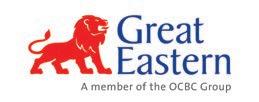




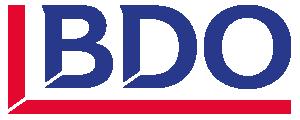
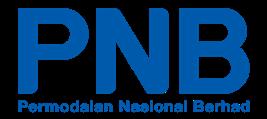













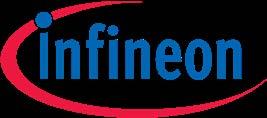




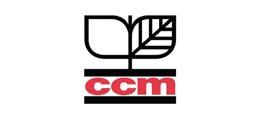


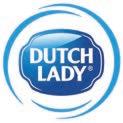


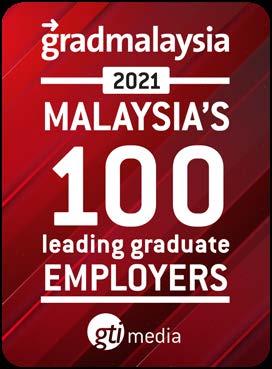



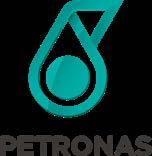





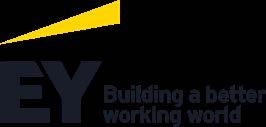




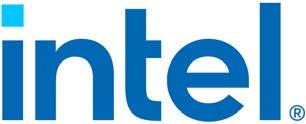






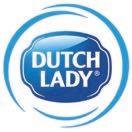

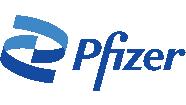




Accounting is the process of documenting the financial transactions of a business. The process includes summarising, analysing and reporting such transactions to regulators, oversight agencies, and tax collection entities. On the other hand, professional services entail providing support to businesses in areas ranging from process and technology consulting, risk assessments and financial advisory, to shareholder management.
If you’re aiming to advance your career in financial accounting, it might be worth pursuing chartered accountant qualifications with professional bodies such as the Association of Chartered Certified Accountants (ACCA), CPA Australia, or the Chartered Institute of Management Accountants (CIMA).
You don’t need to be a chartered accountant to begin your graduate career in financial accounting. However, certain organisations may require chartered accountant qualifications before you can advance into senior or managementlevel financial accounting roles.
Bear in mind, however, that pursuing chartered accountant qualifications is a major investment in terms of both time and money. It is also currently not the industry standard in Malaysia for companies to offer study leave as

a benefit to internal finance staff. So you will likely have to juggle work while studying for your chartered accountant certification exams as well.
In exchange, being a chartered accountant may give you a leg up when it comes to negotiating for higher pay for financial accounting roles. It may also open up alternative career pathways for you, such as switching to a different field of accounting or allowing you to offer your services to companies as a freelance financial accountant.
Long considered one of the most recessionproof industries, this career sector continues to remain a popular choice among graduates each year.
“Being a chartered accountant may give you a leg up when it comes to negotiating for higher pay in financial accounting roles.”

Contributing up to 4% (RM4 billion) to the national Gross Domestic Product (GDP), the automotive industry has always been an important and strategic part of Malaysia’s manufacturing sector.
The automotive industry in Malaysia is the third-largest in Southeast Asia, and the 23rd largest in the world, as of now. This is thanks in no small part to the two national car manufacturers, PROTON and PERODUA, whose locally-produced vehicles occupy a significant portion of the local automotive industry’s market share.
However, Malaysia is also an important hub for overseas automotive manufacturers. Global automotive companies such as Honda, Toyota, Nissan, Mercedes-Benz and BMW have production and sales bases set up here in order to cater to regional consumer demands. This has also attracted investors from China to put their bet on launching their products to the ASEAN countries through Malaysia.
This industry definitely plays an important role in the development of technology and skills across various disciplines of engineering and its supporting industries within Malaysia. There are currently 28 manufacturing and assembly plants operating in Malaysia for passenger vehicles, commercial vehicles, motorcycles and scooters, as well as automotive parts and components. The industry also covers a wide range of activities in research and design, product and process development, materials management, and aftersales services.

“Malaysia is also an important hub for overseas automotive manufacturers. Global automotive companies such as Honda, Toyota, Nissan, Mercedes-Benz and BMW have production and sales bases set up here in order to cater to regional consumer demands.”

Contrary to popular belief, banking and financial services are not just about money-handling businesses. If you are comfortable in managing relationships, understand banking processes, or have excellent project management skills, this might be the right career for you.
Banking is an industry that handles cash, credit, and other financial transactions. Employers that often come to mind include retail banks and insurance companies, supplying customers with day-today financial management products like bank accounts and pensions. But there are also other routes as well, like actuarial consultancies and regulatory compliance firms. All these and more are overseen by Bank Negara Malaysia (BNM) - the central governing authority.
Even though the COVID-19 pandemic has had adverse effects on the industry, banks have not stopped hiring altogether. Though they have become more focused and deliberate in their selection processes. As the global and regional banking industry has been beset by numerous regulatory changes over the past few years, roles in talent management and change management are in demand. IT skills such as software development and cybersecurity are also in huge demand now as banks accelerate their shift towards digital payments, e-investments, and the digitisation and automation of industrial processes.
While there are plenty of graduate trainee programmes and entry-level roles available, competition can be fierce. Candidates can turn to relevant internships and work experiences to get an edge up, as well as getting in an early application to increase their chances.
Graduate hires in banking graduate programmes usually start off as analysts, though trainee programmes can have them rotate through various departments to better understand how the entire business works, as well as the relationships between the different functions. After a few years as a graduate trainee, the next step is to progress to a junior or associate level where the responsibility of directly handling clients and other stakeholders will be handed over to you.

“IT skills such as software development and cybersecurity are also in huge demand now as banks accelerate their shift towards digital payments, e-investments, and the digitisation and automation of industrial processes.”

A wide-ranging industry providing backend support to many others, BPO and shared services offer a long list of career opportunities for fresh graduates from various fields.
B usiness Process Outsourcing (BPO) is the practice of engaging a third-party service provider with the right skills and resources to carry out work on specific tasks on a company’s behalf. A company may, for example, decide to outsource its customer management, telesales, or tech support functions to a BPO provider as opposed to investing in hiring, training, and maintaining such teams in-house.
On the other hand, shared services involve creating an autonomous business unit that carries out internal functions within a client organisation. These could be functions like human resources, finance and procurement, or tech development. Shared services staff, for all intents and purposes, will work exclusively on the client’s internal day-to-day tasks for the duration of their company’s contract with the client.
Since 2000, Malaysia has been one of the most popular countries for shared services and BPO operations in Asia. It is also worth mentioning that this industry is also a part of the country’s Economic Transformation Plan under the Business Services sector, which makes it one of the fastest-growing industries in Malaysia.
For graduates, working in the BPO and shared services industries will give you exposure to a wide range of roles within various industries. You will be rotated across different client organisations throughout the course of your employment, giving you a unique perspective on the work that they are doing within their respective industries as well as insights into market trends and the players operating within them. This is a great industry for graduates looking to gain generalist knowledge and experience, which may serve you well down the line in your career progression.

“This industry is also a part of the country’s Economic Transformation Plan under the Business Services sector, which makes it one of the fastestgrowing industries in Malaysia.”

As industries are accommodating to the rapidly changing landscape postpandemic, the demand for specialised consulting becomes increasingly apparent due to the uncertain business outlooks.
When a business is facing industry-specific problems that cannot be solved internally, executives will usually reach out to industryspecific experts for professional guidance, advice and solutions. These experts are called consultants.
Consultants are professionals who provide expert analysis and recommendations on improving an organisation’s profit-making ability, operational effectiveness and position in the market. Some consultancy firms specialise in specific areas like HR, engineering, or information technology (IT), while others cover all aspects of business practices or focus on managementlevel strategy.
There are several benefits that come with this industry – from high starting salaries, opportunities to travel abroad, and in-depth exposure to numerous industries. However, the work is very demanding. Consultants must be highly dedicated to the job, not just completing projects within their deadlines but going the extra mile to deliver added value to clients. Most management consultants, for example, work between 50-80 hours a week to get their tasks done.
As you may guess from the scope of work and its competitiveness, consulting firms have very stringent hiring criteria. Many established consultancy firms recruit through graduate trainee programmes with minimal spots or offer placements and internships to top-performing penultimate- and final-year students.
Depending on the industry of focus, graduate consultants may also be expected to pursue relevant master’s degrees or MBAs later on if they intend to keep ascending the career ladder as expert consultants.

“Many established consultancy firms recruit through graduate trainee programmes with minimal spots or offer placements and internships to top-performing penultimate- and finalyear students. ”

The growth of the E-commerce industry during the pandemic has been one of the most impressive changes seen in the economy, especially in the transition from physical stores to virtual ones.
E -commerce covers the purchase and delivery of goods and services online, as well as the exchanging of money via payment gateways or online payment platforms. This industry was undoubtedly one of the biggest winners during the COVID-19 pandemic, seeing tremendous lasting growth not just in Malaysia, but around the world as well.
The e-commerce industry covers not just the management of online storefronts, but also the long tail of procuring product stocks in a timely manner, managing the delivery of purchased orders through external contractors or riders, and facilitating the transfer of money through online channels. Employers in this range from major online marketplaces to e-payment apps, all the way up to individual companies looking to establish an e-commerce footprint to increase their direct product sales.
By January 2021, there were 27.4 million active internet users in Malaysia, amounting to 80 percent of the population. Mobile phone penetration also amounted to a whopping 84.2 percent of the local population by then. This sheer volume of users and access to technology makes Malaysia one of the most attractive e-commerce markets in Southeast Asia. The government has
also announced the National eCommerce Strategic Roadmap 2.0 (NeSR2.0), which aims to support the further growth of Malaysia’s domestic e-commerce market.
Graduates keen on entering this industry should be prepared for long hours and fast-paced work. Trends and fads in this space are constantly shifting, and ongoing global supply chain disruptions have only made procuring stock at competitive prices that much harder than before. But those who can keep up will find themselves at the forefront of innovations in the way that we purchase goods and services, as well as the growing widespread adoption of digital payments and currencies.

“This industry was undoubtedly one of the biggest winners during the COVID-19 pandemic, seeing tremendous lasting growth not just in Malaysia, but around the world as well.”

Home to one of the biggest educational hubs in the ASEAN region, it’s no surprise why Malaysia’s education industry is a popular career choice among graduates.
With over 400 local private colleges and universities offering Diplomas, Bachelor’s, Master and PhDs, Malaysia’s Private Higher Education Institutions (PHEIs) have significantly grown in recent decades, providing a steady stream of human capital not just for the country, but also for the rest of the ASEAN region. Out of a total of 1.32 million students who pursued tertiary education in Malaysia in 2021, 47.9 percent of them were in PHEIs. It has been estimated that the local PHEI industry has the potential to be worth as much as RM65 billion by 2026.

The local education sector was heavily affected by the COVID-19 pandemic in 2020, with almost all higher education institutions being forced to make drastic switches to fully online learning. Enrolment into local public and private higher education institutions also fell in general over the past two years due to potential students deferring the start of their studies until on-campus learning could resume.
Fortunately, the industry seems on track to recover in 2022 as the country opens up again. In order to blend in with the ‘new normal’ culture, higher learning institutions have permanently adopted e-learning approaches such
as Open and Distance Learning (ODL), giving students better access to flexible learning methods. As such, content development/conversion for e-learning platforms will likely continue to be a growth area in this industry in the near future.
Graduates looking to enter this industry can choose between either the business/operations side of the industry or the teaching/pedagogy side. Of the two, the latter has a much higher barrier to entry, with prospective candidates often required to hold relevant postgraduate qualifications. An alternative to working directly with universities, however, is to join adjacent businesses providing support to the university space - education consultancies, pedagogy and learning developers, education software providers, etc.
“In order to blend in with the ‘new normal’ culture, higher learning institutions have permanently adopted e-learning approaches such as Open and Distance Learning (ODL), giving students better access to flexible learning methods.”

As one of the industries that contribute the most to the country’s GDP, Malaysia’s electronics sector is now undergoing a significant change in regard to its manpower ability.
he electronics engineering industry in Malaysia covers four subsectors: electronics components (e.g. semiconductors, circuit boards, etc.), consumer electronics, industrial electronics, and electrical products. (e.g. cables, batteries, switchboards, etc.) Of these, the first is the most prominent, with Malaysia contributing nearly 13 percent of the global back-end semiconductor supply each year.
As of 2019, electronics components and products constituted close to 38 percent of Malaysia’s total exports, making this an incredibly significant sector for the country. However, Malaysia still largely occupies only the mid to lower end of the global electronics value chain. We provide assembly, packaging, and testing services for foreign semiconductor manufacturers and brand owners, integrated circuit developers and fabricators. However, we do not significantly contribute to higher value-added activities such as creating new intellectual property (IP), or the research, design, and development of electronic components.
The recent Twelfth Malaysian Plan (2021-2025) announced by the government aims to address this somewhat by including tax incentives for employers to encourage them to upskill existing staff and hire graduates with more advanced qualifications. This is all with the aim of transforming the industry from its current labour-intensive state to being a more knowledgebased industry instead.

Graduate engineers entering this industry can expect to find plenty of ready roles in the production, testing, and sales of electronics components.
However, in order to advance further up the value chain in your career as an electronics engineer, you will need to pursue a relevant postgraduate degree at some point.
Industrial design skills are in particularly high demand within this sector now, as the world faces a global shortage of design talent. Working knowledge of English is also a must, as the majority of existing technical literature on electronics - whether in an academic or professional engineering setting - is in English.
“As of 2019, electronics components and products constituted close to 38 per cent of Malaysia’s total exports, making this an incredibly significant sector for the country.”

One of the biggest pillars of the nation’s economy, this heavily-regulated sector comes with several sub-sectors, offering a lot of opportunities.
alaysia is known in the region for its abundant energy resources, especially in the oil and gas sector. So it is no surprise that this sector is a major contributor to Malaysia’s economy, which constitutes 20 percent of the country’s annual GDP.
Oil and gas services in Malaysia covers three areas: upstream (oil and gas) field services, midstream (transportation and storage), and maintenance of machinery and equipment. Fossil fuels are, unsurprisingly, the primary source for local electricity generation, with 53 percent of our energy coming from natural gas. However, acknowledging the environmental impact of this industry, Malaysia has also committed to reducing its greenhouse gas emissions by 45% by 2030.
The utility sub-sector on the other hand, covers energy and water utility services. Power generation, transmission and distribution of electricity in Malaysia are held by three main players: Tenaga Nasional Berhad (TNB), Syarikat SESCO Bhd (SESCO) and Sabah Electricity Sdn Bhd (SESB). Water utilities are provided by Suruhanjaya Perkhidmatan Air Negara (SPAN) and Pengurusan Aset Air Berhad (PAAB).
Green/renewable energy is one area of this industry to watch. Malaysia aims to double its current renewable energy capabilities by 2025, with solar photovoltaic energy having the highest technical potential for growth given our tropical climate. This is accompanied by the gradual liberalisation of the utility industry via the Malaysia Electricity Supply Industry (MESI) 2.0 reforms, which aim to open up the local energy market to smaller green/renewable energy players.
Graduates entering this industry should be prepared to face major market and regulatory changes over time, given the increased scrutiny this industry has come under due to global climate change. The COVID-19 pandemic also disrupted this sector by causing prices of oil and gas to plummet worldwide. However, this also means there is now intensified incentives for graduates in this sector to explore sustainable and equitable ways to support the future growth of the global energy economy.

“Graduates entering this industry should be prepared to face significant market and regulatory changes over time, given the increased scrutiny this industry has come under due to global climate change.”

From aerospace to chemicals to the built environment, graduates keen on careers in engineering can enjoy a vast number of roles to choose from.
As an engineer, your job role could be the same as your degree discipline, such as a mechanical engineer or environmental engineer. Or, it could be based around a particular stage of the engineering process, such as design engineer, quality assurance engineer, or production engineer. Potential employers can come from any number of industries, including construction, chemicals, telecommunications, transport, technical consultancies, or even the government itself.
It is worth noting, however, that the events of the last two years have spurred local companies to invest further in automation in order to reduce their reliance on physical labour. This acceleration towards the 4th Industrial Revolution (IR 4.0) is something graduate engineers cannot afford to miss. It is now more important than ever for graduates keen on this sector to continually upskill themselves and stay abreast of the latest engineering trends within their disciplines, as the country continues to transition into a more knowledgebased economy.
With so many companies in the industry, there are various employment practices. For instance, some employers recruit and place engineering students in general graduate schemes, while others bring on both engineering and business candidates into specialist graduate programmes that put emphasis on applying technical knowledge in roles such as marketing and management.

While small firms tend to hire for specific, entry-level roles, larger recruits hire graduates via training programmes, which can get competitive. Interested applicants should seek out suitable work experiences - whether via internships, placements, or part-time jobs - to gain an advantage.
| HARTALEGA
| PLEXUS MANUFACTURING SDN BHD
| SIEMENS MALAYSIA
| BOSCH
From aerospace to chemicals to the built environment, graduates keen on careers in engineering can enjoy a vast number of roles to choose from.
“It is now more important than ever for graduates keen on this sector to continually upskill themselves and stay abreast of the latest engineering trends within their disciplines, as the country transitions into a more knowledgebased economy.”

Defined as non-durable products created in large quantities, fastmoving consumer goods (FMCG) include items such as toiletries, cleaning products, clothing, food and cosmetics that are known for their short shelf lives and relatively low costs.
This industry is incredibly popular among fresh graduates due to the fact that it exposes them to many different business segments such as marketing, sales, finance and supply chain management – all at the same time. It is thus a great way to pick up many essential employable skills early on in your career.
With that said, this industry is currently facing major inflationary pressures both in Malaysia and abroad as a result of the aftershocks of the COVID-19 pandemic. Rising costs of raw materials, packaging, and transport continue to affect the industry and drive up competition further. Expect FMCG companies to continue to adapt their sourcing and supply chain management practices rapidly in order to keep up.
There has also been intensified interest among local consumers for sustainably-sourced, environmentally-friendly products. Health consciousness is also now a major priority for consumers when choosing goods, according to a 2021 Asian Nielsen survey. These factors will play major roles when it comes to marketing FMCG products to consumers in the current climate.
Graduates from all disciplines are generally welcome to join this field, although employers will expect them to have some knowledge about the company’s brands and its competitors. Larger firms in this industry do offer graduate training programmes, where new hires usually go through a rotation of numerous functions in the business in order to get a more holistic view of how things work before being assigned to a designated job function.

| NESTLÉ
| UNILEVER (MALAYSIA) HOLDINGS
| DUTCH LADY
| L’ORÉAL MALAYSIA
| MONDELEZ MALAYSIA
Graduates looking to join this popular industry can expect exposure to multiple business segments back-to-back.
“This industry is incredibly popular among fresh graduates due to the fact that it exposes them to many different business segments such as marketing, sales, finance and supply chain management – all at the same time.”

Government regulatory bodies ensure a safe and fair marketplace for all other industries to thrive in.
n general, a government regulatory body’s role is to establish and strengthen standards in line with the law of the land, and ensure that the local marketplace complies with said standards.
Here in Malaysia, different regulatory bodies oversee different sectors of the economy and public services, such as transportation, education, and the sale of daily necessities and controlled substances. The majority of local government regulatory bodies and agencies generally operate as subsidiaries under the overview of the various federal ministries, though a select few do operate directly under the purview of the prime minister’s cabinet itself.
Some notable examples of regulatory bodies include the Central Bank of Malaysia (BNM), and the Inland Revenue Board of Malaysia (LHDN). They are responsible for regulating the monetary and financial stability of the economy, handling the collection of domestic taxes and enforcing taxation policies respectively. There is also HRD Corp, operating under the Ministry of Human Resources, which develops and funds training and development programmes for the local workforce through collecting levies from employers.
Considering job stability and security, this sector is certainly an appealing option for graduates. Starting roles can range from compliance officers, analysts, partner engagement, project management and more. Graduates have the option of applying for either specialist positions or generalist ones or applying for designated graduate development programmes offered by specific regulatory bodies.

“Here in Malaysia, different regulatory bodies oversee different sectors of the economy and public services, such as transportation, education, and the sale of daily necessities and controlled substances.”

The insurance industry involves protecting both individuals and companies against potential financial risks.
Different insurance companies specialise in certain types of insurance. Some may focus on reinsurance in the health, property and casualty markets, others specialise more in pensions, life and general insurance products, while others may focus on more niche areas such as underwriting claims for shipping lines specifically.
The COVID-19 pandemic proved a watershed moment for the insurance industry as a whole, as many insurance providers quickly pivoted to meet the surge for increased coverage and the continued digitisation of the industry. In Malaysia alone, insurance providers saw huge growth in the take-up of life insurance policies and investment-linked policies in 2021, and the industry is currently expected to see an average of 5.8 percent annual growth all the way up to 2030.
The pressure is now on insurance companies to accelerate the digitisation of their operations, moving more core processes online and making their policies more accessible and transparent to potential customers in the process. This will open up new opportunities for graduates in this sector, as the industry looks to deeper integration of technology, as opposed to focusing on traditional sales and underwriting roles.
In addition to the above areas, insurance companies also require a wide range of support roles to support their core business, such as technology specialists, marketing and HR personnel.
Many large insurance employers offer training or graduate schemes to help new hires adapt to the new working environment. These schemes tend to rotate graduates across the different business areas of the company to help them understand the company better.
On the other hand, smaller insurance providers or insurance agencies may rely more on on-the-job training, as well as formal or informal mentorship programmes with senior team members.

MALAYSIA
ASSURANCE
|
BSN TAKAFUL BHD
Get to know the industry that aims to protect you against major potential financial risks, and the career opportunities that come with it.
“In Malaysia alone, insurance providers saw huge growth in the take-up of life insurance policies and investmentlinked policies in 2021.”

Easily one of the most popular industries in the world right now, graduates keen on IT careers will find a wide range of work on all kinds of interesting projects.
With the COVID-19 pandemic accelerating Malaysia’s shift to a more digital-based knowledge economy, the country is poised to develop better connectivity, satellite broadband, digital infrastructure for buildings, 5G ecosystems and smart automation.
It is worth noting that the ICT sector is one of the fastest-growing sectors in the Malaysian economy, contributing a whopping 19.1 percent of the country’s GDP in 2019, and is estimated to reach 22.6 percent by 2025. Key ICT growth areas include cloud computing, data analytics, Big Data storage, cybersecurity, business process outsourcing, and Internet of Things (IoT) connectivity.
Jobseekers who would like to explore IT roles within non-explicitly technical fields can also consider the banking, finance, public and retail sectors, among others. Players in these fields have continued to invest heavily in their online and technology departments to ensure more seamless digital experiences and exchanges between employees, clients, and users.
While science-based degrees (such as IT, engineering, or math) are preferred, they aren’t completely necessary. In fact, non-technical graduates who convert to IT work often bring unique perspectives to the table, provided
they have the requisite numerical and analytical skills. However, graduates from non-IT backgrounds may have to supplement their knowledge by taking up related courses and modules.
However, an IT-related degree does not mean that you are an immediate shoo-in either if you lack the soft skills employers are after. That being said, they can be picked up through training, relevant work experience, and staying abreast of the industry. Having commercial awareness is also important, along with enthusiasm and having the right attitude.

“In fact, non-technical graduates who convert to IT work often bring unique perspectives to the table, provided they have the requisite numerical and analytical skills.”

Things are starting to look up from this industry, as the travel bans were lifted and events are scheduled to happen again after two years of pandemic.
One of the biggest contributors to the national service sector, the tourism industry typically contributed to 6% of Malaysia’s GDP and 23% of national employment or 3.5 million jobs in recent years.

Beyond just hotels and tourist destinations, tourism activities also support a complementary ecosystem of businesses, tourist projects, retail outlets, restaurants and transportation services, providing thousands of jobs to people on every tier.
However, the local tourism sector was one of the most severely impacted industries during the COVID-19 pandemic. The implementation of the Movement Control Orders and closure of borders in the fight against the pandemic cut off almost all foreign tourist arrivals into Malaysia in 2020 and 2021. Regardless, in the current endemic phase, the sector is now preparing for recovery with the expectation of a renewed surge in travelling and leisure after two years of lockdowns, starting with a greater focus on domestic tourism.
The Meetings, Incentives, Conferences and Exhibitions (MICE) industry, a subset of the business tourism sector also experienced the impact of MCO firsthand. Despite receiving a green light from the government earlier in December of 2020 to continue operating, MICE operators/providers were limited in many aspects to do their business, especially in the capacity of the audience allowed – one of the biggest performance indicators in the nature of this industry.
Fortunately, the industry has been slowly rising once again since the domestic and international travel ban was lifted by the government. The Malaysia Convention Exhibition Bureau (MyCEB) won 81 bids for future events for 2022, scheduled until 2030. These bids will see 152,000 delegates travelling to Malaysia, with an estimated economic impact of RM1.2 billion. This means that more opportunities await fresh graduates who are keen on joining the industry, especially in hospitality, customer service and event management.
“Fortunately, the industry was slowly rising once again after the domestic travel ban was lifted by the government after the country’s vaccination target was reached in October 2021.”

Two years of dealing with the pandemic brought along a huge shift in the consumption of media, changed the industry and introduced new careers in the transformation.
The media and entertainment (M&E) industry cover both the production and delivery of news, entertainment, or infotainment content to consumers. This covers a wide range of mediums from newspapers, magazines, and digital content portals to cable/ satellite TV and online streaming services.
Thanks to the massive number of internet users in Malaysia and increased reliance on online platforms in the past 2 years, this industry is now going through a major digitalisation shift. Terrestrial and physical media platforms are now being phased out even faster, as consumers have now grown increasingly accustomed to curated online content feeds, streaming content-on-demand, and a greater diversity of channels and platforms vying for their attention.
This big shift offers huge opportunities for job seekers who are looking to start a career not just on the production side of the industry, but also in the IT field, given that most online media platforms now need constant maintenance and technical support work behind the scenes.
For graduates keen on entering the production side of the industry, past experience matters far more than educational qualifications. Employers give precedence to candidates with portfolios of published or produced works, so graduates should always be on the lookout for opportunities to create content that will be published on public platforms if they hope to catch the eyes of prospective employers.

As the proliferation of digital platforms has shortened production timeframes for content, there is also a greater demand now for production staff who can produce content end-to-end. This could include writing, photography, video and sound editing, basic design work, etc. Graduates can sometimes expect to become jacks-of-all-trades over time when working in this industry.
“Terrestrial and physical media platforms are now being phased out even faster, as consumers have now grown increasingly accustomed to curated online content feeds, streaming content-on-demand, and a greater diversity of channels and platforms vying for their attention. ”

ven before the COVID-19 pandemic, Malaysia has always been home to a very lively pharmaceutical industry landscape. With active research and developments in the field, as well as the constant local manufacturing of medical drugs, the industry enjoys tremendous ongoing support from the Malaysian government. Despite that, domestic pharmaceutical market growth is still regulated by the National Pharmaceutical Regulatory Agency (NPRA) under the umbrella of the Ministry of Health Malaysia, as part of a larger national agenda to ensure Malaysians can continue to enjoy access to affordable medication and healthcare supplies locally.
The Malaysian pharmaceutical market share is essentially separated into two main categories: local pharmaceutical companies, and research-based multinational enterprises. These carry different types of core businesses: The local pharmaceutical companies are more concentrated on manufacturing traditional medicines, vitamins, supplements and over-the-counter (OTC) drugs for local consumption, as opposed to the research-based multinational enterprises that are responsible for the manufacturing of specialised internationally-patented drugs, backed up with extensive research and development processes.
During the early stages of the nationwide COVID-19 vaccination rollout in
2020 and 2021, domestic pharmaceutical companies such as Pharmaniaga also benefited from knowledge transfers with foreign companies like Sinovac for their technology and vaccine production know-how. Technology transfers such as these are also a key part of uplifting the local pharmaceutical industry as a whole, ensuring it continues to keep up with relevant international standards and increase production cost-efficiency even as new drugs and vaccines continue to be developed worldwide.
Opportunities for graduates in this industry include getting involved in research and development of new drugs, quality control of drug production, and operations and logistics management. Pharmaceutical sales and marketing is also an entire sub-industry within itself, as companies will also need to establish and maintain partnerships with hospitals, clinics, and individual medical practitioners in order to supply all these healthcare providers with their products.

|
This industry is key to ensuring Malaysians enjoy access to cheap, affordable medication and healthcare locally.
“The Malaysian pharmaceutical market share is essentially separated into two main categories: local pharmaceutical companies, and research-based multinational enterprises.”

Property development in Malaysia is a booming industry, particularly in the country’s urbanised and semi-urban territories. The property side of the industry encompasses the conception, planning, sales, and management of residential and commercial developments. As they are interdependent on each other, the construction sector usually moves along with the property development industry, supporting the building and expansion processes of these development projects.
Many of the main players in the construction sector are also involved in the construction of the country’s infrastructure: bridges, roads, railways and ports. Investment in local infrastructure is now rebounding after the pandemic lockdowns in 2020 and 2021, including projects like the Pan-Borneo Highway in Sarawak, and the Mass Rapid Transit (MRT) Sungai Buloh-Serdang-Putrajaya (SSP) Line and the Light Rail Transit Line 3 (LRT3) in the Klang Valley. It is a constantly moving and evolving sector, and graduates can also find work in the many professional services firms supporting the construction industry through architectural, engineering and surveying services.
However, the rapid growth of property developments across the country has raised ongoing questions about the sustainability of the industry. The oversupply of commercial properties in a post-pandemic market is a major risk for the industry right now, as are concerns regarding poor building quality,
given ongoing supply chain disruptions for construction materials and a labour shortage alongside the rapid rate at which new developments are built.
Skyrocketing home property prices in Malaysia’s urban centres have also renewed dialogue about whether developers are overly prioritising high-end residential developments at the expense of building more affordable housing properties for the majority of urban citizens. These are questions that graduates keen on entering the industry should be prepared to engage with if they hope to steer the industry towards a more sustainable future.

| SUNWAY GROUP
Explore the industry that builds the nation, literally.
“As they are interdependent on each other, the construction sector usually moves along with the property development industry, supporting the building and expansion processes of these development projects.”

Like many other industries in 2020 and 2021, the Malaysian retail industry saw a slower rate of growth during the emergence of the COVID-19 pandemic. With the Movement Control Order (MCO) and the lockdowns, the restricted public movement resulted in a sudden drop in total revenue for the sector. Interestingly enough, some segments of the sector, namely apparel, footwear, cosmetics and fashion accessories still saw growth during this period, despite hypermarkets, supermarkets and convenience stores recording a drop in sales.
However, as the country enters the endemic stage, the retail sector is slowly recovering, especially as more and more businesses are allowed to be back and running during pre-pandemic hours, albeit with some restrictions. Speciality retail experiences now seem to be the trend, as consumers increasingly seek visual and physical stimulation alongside themed shopping experiences that they can’t get when buying products online.
The industry now faces a hiring crunch, with an oversupply of jobs but not enough interested candidates for those roles. The current demand for more specialised retail experiences also increases the need for retail workers to have an overall pleasant personality, enthusiasm and strong communication skills in order to ensure the best customer experience.
In response, many retail employers have now increased pay and benefits for their roles, as well as codified more structured career progression opportunities within the industry. They have also shortened hiring cycles for roles, placing more of an emphasis on customer service and people skills over other qualifications. Be prepared to demonstrate those skills in person or over video interviews if you are keen on graduate careers within this sector.

| IKEA MALAYSIA
| UNIQLO MALAYSIA
| HUAWEI
| AEON CO.
| SAMSUNG MALAYSIA
Be it an online shopping experience or shopping in a physical store, this industry has gone through some huge changes in the last couple of years.
“In response, many retail employers have now increased pay and benefits for their roles, as well as codified more structured career progression opportunities within the industry.”

With smartphones being such a huge cornerstone of our daily lives, this sector has grown to be one of the most influential industries globally.
The telecommunications industry in Malaysia began almost 150 years ago in 1874, with the implementation of the first telegraph line in Kuala Kangsar, Perak, connecting the British Resident there to the Deputy British Resident in Taiping. Since then, the industry has undergone multiple transformations to become the industry powerhouse it is today.
According to the Malaysian Department of Statistics, approximately 91 percent of Malaysia’s population owns and uses at least one smartphone. And while 90 percent of Malaysian households have access to the internet, 87 percent of that is accessed through mobile data connections instead of through home broadband. This clearly illustrates the importance of the telecommunications industry - especially in the area of mobile connectivity - as one of the key nerve centres of the nation.
The telecommunications industry falls under the direct purview of the Ministry of Communications and Multimedia, regulated by the Malaysian Communications and Multimedia Commission (MCMC). One of the MCMC’s main responsibilities is to work closely with the major telecommunications operators in Malaysia in order to improve the quality of mobile coverage, fixed-line, overseas telephone and internet services.

As of 2021, the country’s major telcos have already started rolling out 5G mobile technology across the country in stages, in addition to improving mobile coverage in remote areas by building more 4G towers and migrating the remaining 3G subscribers to 4G. Retrofitting fibre-optic internet lines on top of existing legacy infrastructure is another major ongoing nationwide upgrade as well. These are all exciting developments that graduates keen on joining the industry can expect to witness during this time.


| U MOBILE
“This clearly illustrates the importance of the telecommunications industry - especially in the area of mobile connectivity - as one of the key nerve centres of the nation. ”



Amongst the sectors that were heavily affected by COVID-19 in 2020 and 2021, the insurance sector found itself to be in the centre of the storm. Sudden spikes in demand for personal health coverage, unprecedented numbers of claims due to business interruption, and a constantly shifting landscape of risks affecting both employers and individuals in the face of a global crisis were only a fraction of the various shocks faced by the sector over the past two years.
However, AIA Shared Services managed to prove its exceptional expertise in the sector with how fast it evolved alongside the pandemic crisis by hopping onto the wave of digital transformation of its services. This was clearly not lost on graduates, who voted them as the most desirable company to work for in the business process outsourcing (BPO) sector, alongside their parent company AIA as the most popular graduate employer in the insurance sector.
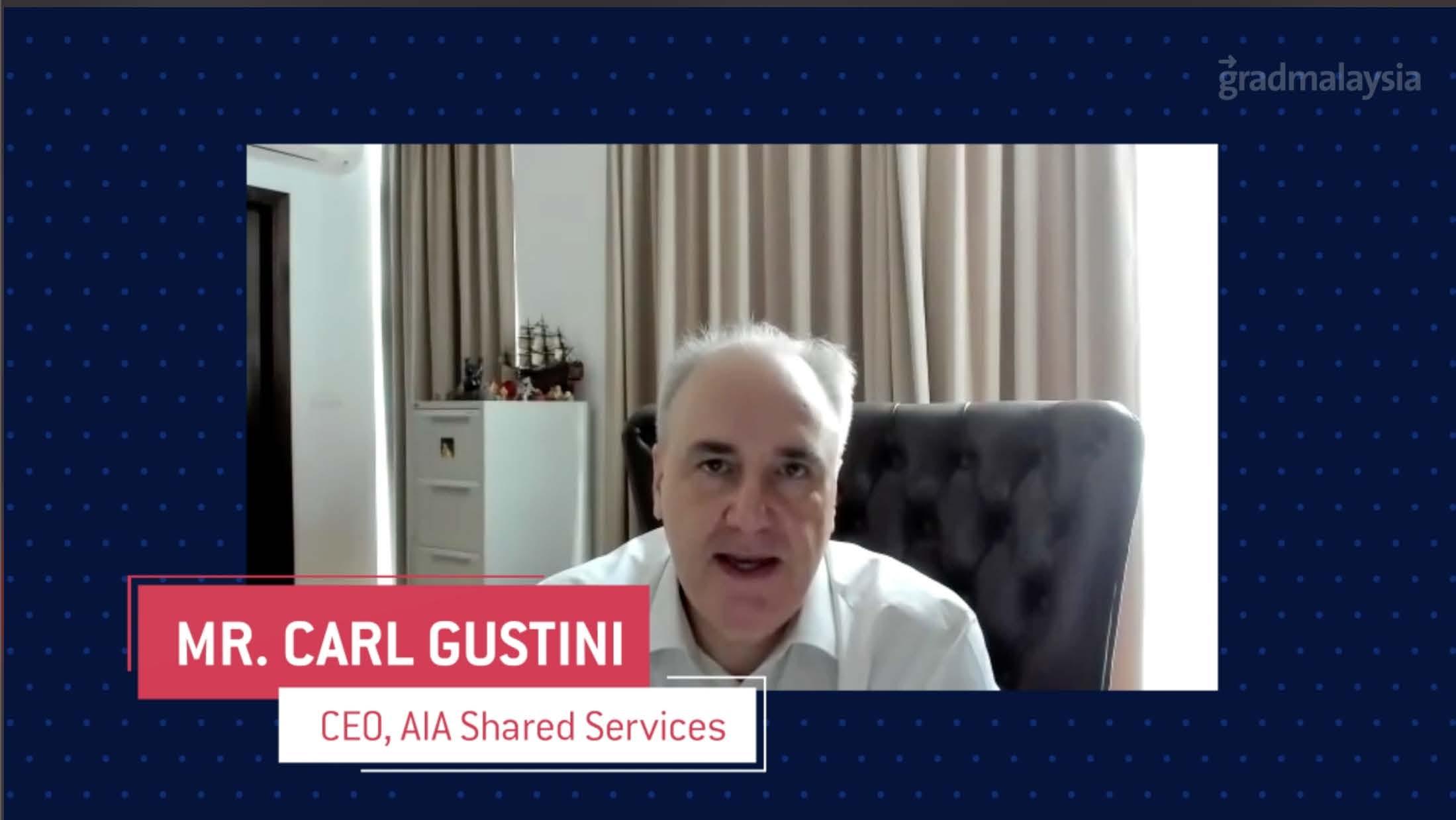

As public life came to a halt due to the MCOs and SOPs during the pandemic, AIA turned to AIA Shared Services for online solutions for almost all of its processes – from product catalogues, to registration, payment and customer services. Not only did this help their existing clients, it also ultimately helped potential clients to understand their products better without the hassle of meeting with agents or physically going down to their offices.
But the best part of these transformations? AIA Shared Services extended them to their hiring processes as well.
AIA Shared Service’s digital transformation of its services and employment processes does not discount the important details that makes it a company that prioritises the wellbeing of its people.
We want the best and brightest in Malaysia to want to come work with us and be their best self, as we are supporting millions of customers in securing financial aid for their futures.
Carl Gustini, CEO of AIA Shared Services Malaysia acknowledged that these digitalisation processes happened and are still happening as of now.
“We now have a very smooth integrated process in terms of how we communicate with future candidates, as we have a specific AI that assists us in matching the criteria we are looking for in an employee with the right person,” Gustini said. “Once they are hired, we give them virtual tours of the office, and the outline of the operations to them.”
Gustini also added that doing these processes online make the weekly catching up sessions with the staff – or “coffee chats,” as he calls them – easier, especially for new recruits who have yet to step into their office in Cyberjaya.
“Handling these processes virtually and making sure the staff are getting really strong flavours for our culture, as well as implementing our philosophy of ‘doing the right things in the right ways, with the right people’ is very important,” he said.
“We have great team players – the graduates – building their careers with our team. But it is also equally important for a team of people to have good leadership at its heart and soul, to be caring, and have the spirit of camaraderie in order to create good chemistry in a fantastic organisation.”
Like most people in the midst of the pandemic, the staff at AIA Shared Services were also facing the typical challenges of working from home. While some were thriving while working from their home office, others felt isolated and disconnected from colleagues and the working environment they were used to pre-pandemic.
Addressing this issue, Gustini explained that communication between management and staff has always been a constant in the organisation and often encouraged. So maintaining that was key in helping their staff overcome the downsides of working remotely for long periods of time.
“At AIA, we have always had very healthy communication and robust outreach programmes, so the only important thing that we have to ensure is that we continue these in a virtual environment as well,” he said.
“Obviously, we have many fellowship and engagement activities to remind staff that they are a part of one big family. We have our own centrepiece activities that are done online across the whole company, not to mention those arranged by each department individually as well.”
An official validation for a job well-done Gustini said he appreciated how much the organisation has invested to ensure that fresh graduates and newcomers in general will have a terrific environment to work in once they join the company.
“We want the best and brightest in Malaysia to want to come work with us and be their best self, as we are supporting millions of customers in securing financial aid for their futures. So receiving these awards is a good validation that we are indeed on the right track, and we are now more energised and ready to work even harder.”
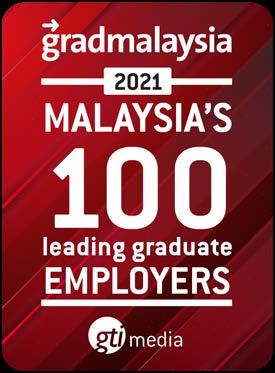
Maybank’s focus on building authentic relationships and contributing back to society is key to maintaining their position as one of Malaysia’s most popular graduate employers.
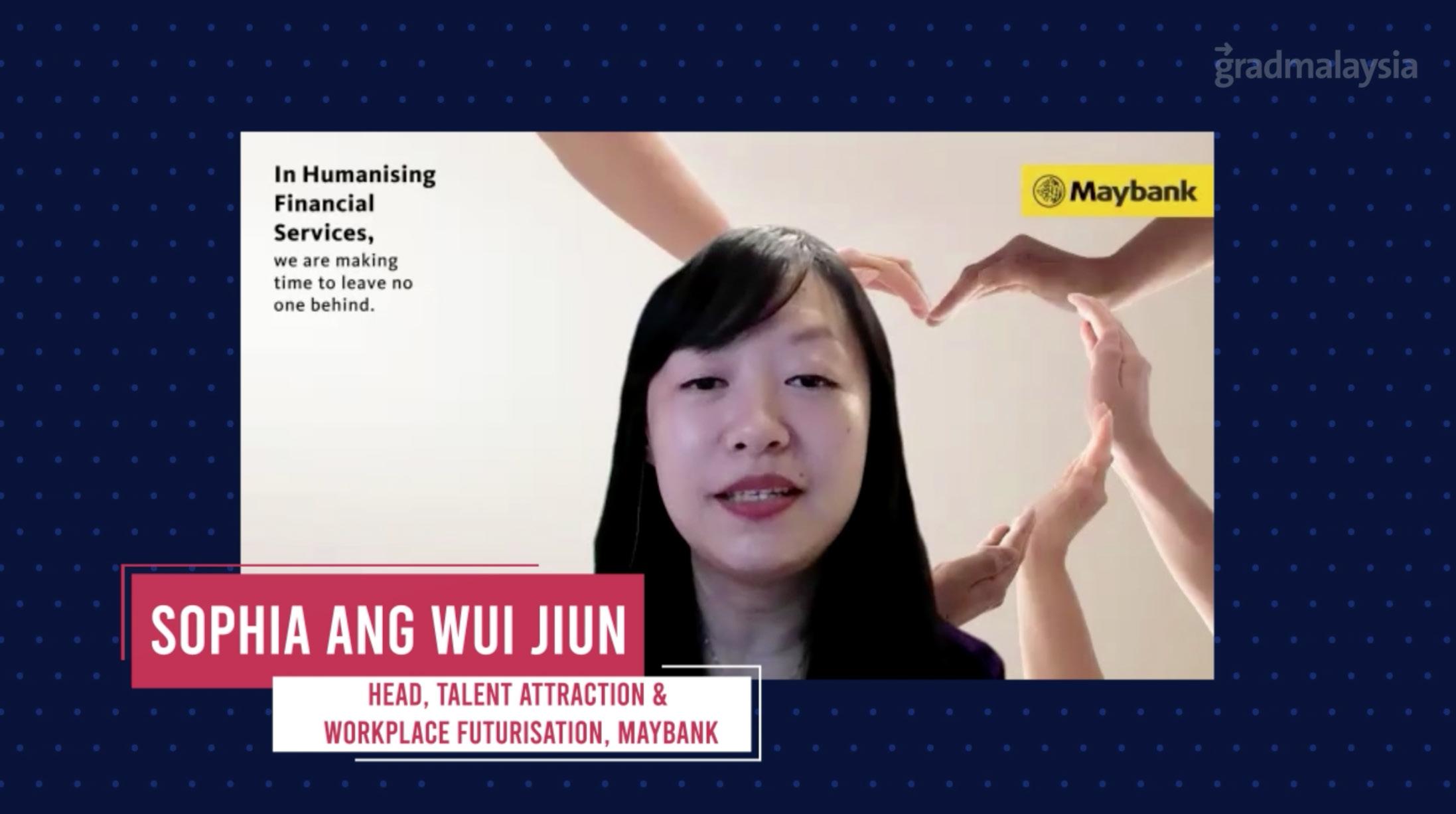
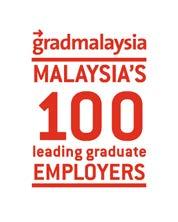
many companies
individuals
Building meaningful connections
in their tagline of
Recruitment is not just checking off lists. It is the employer’s responsibility to provide platforms for candidates to display their talents and abilities.
always looks towards partnerships with the partners and players within this ecosystem like M100: the universities, the ministries, various student bodies and even parents, too.”
Maybank’s efforts in building these connections with graduates is also more than just joining or organising one-off events, but more about consistently staying in contact with different groups of students and graduates, regardless of backgrounds or disciplines.
“The virtual world right now really helps in opening more doors for us to connect with so many different talents out there,” Ang said. “We are careful not to create the same type of engagement twice, as we want it to be a unique experience for everyone.
“I think it’s important to remember that recruitment is not just checking off lists. It is the employer’s responsibility to provide platforms for students, graduates and candidates to display their talents and abilities instead of just searching to see whether they fit into our requirements.”
Maybank currently has several programmes for fresh graduates to start their career, from their Digital Management Development Programme (DMDP), Information Technology Development Programme (ITDP), Relationship Management Development Programme (RMDP), Management Development Programme (MDP) and the infamously selective Global Maybank Apprentice Programme (GMAP), to name a few.
Even though Maybank has gone almost fully virtual at this point, the bank is still pushing for the same human connection, especially in group discussions and conversations between talents.
“Since they are alone in their working space at home, establishing this connection over virtual communication has been
quite a challenge for us to work on,” said Marlin binti Ahmad Nordin, Head of the Group Recruitment Centre at Group Human Capital within Maybank. “But it is not a stumbling block, as we continuously look for ideas to innovate the ways to ensure that the connection is still as good as we want it to be.”
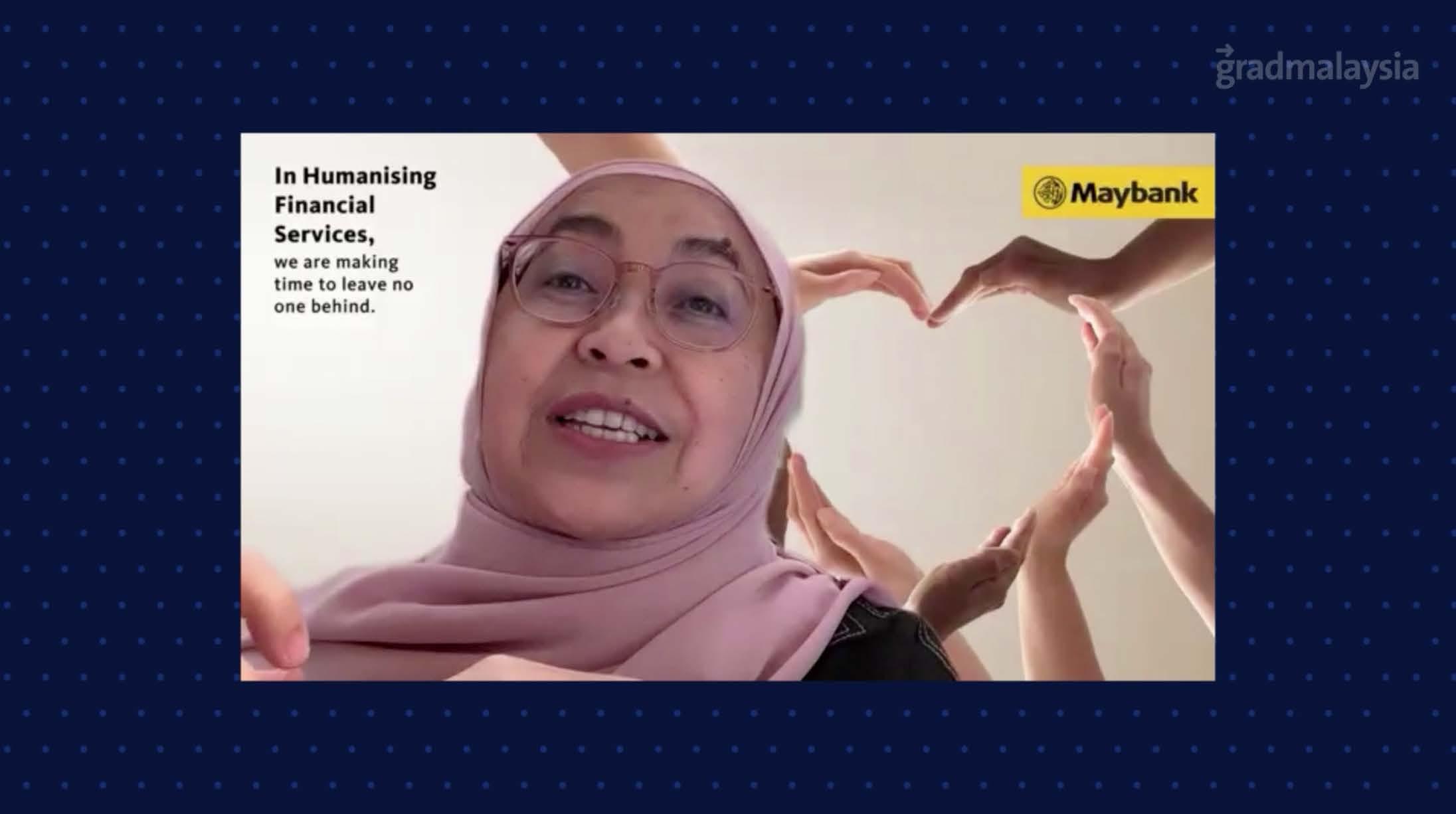
For fresh graduates who are starting their career journey, and are struggling to secure an internship or a job during the pandemic and endemic phases, Nordin suggested that this is the time for candidates to be more agile and flexible in response to a pathway that is constantly evolving.
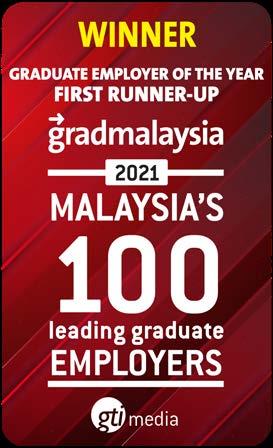
“Before you’re hired, prepare yourself to face the hybrid vs remote work situation. This means your ability to manage this situation is key to successfully doing your job,” Nordin said.
“You will probably be working in an ambiguous type of environment as well, which means even though you are working alone, you still have to engage with your team and keep communicating with them whenever necessary.”
Nordin also reminded incoming candidates to always ask questions to their seniors and managers, and while looking for a job, it’s okay to be a little less picky about opportunities that arrive.
“Even if you are offered something that is not within the scope of the job you want, if you keep your aspiration towards your goal, you will get there in the future,” she said.

With trust in fresh graduates and quality professional training, Shopee embraces talent development in their young employees as an integral part of the company’s recipe for success.

Currently one of the leading e-commerce platforms in Southeast Asia and Taiwan, Shopee’s growth has been very prominent in the last couple of years amidst the pandemic. The platform was a familiar face on social media through its advertisements and catchy jingle. Put together with its never-ending effort in catering to the needs of the local businesses and consumers as the Movement Control Order (MCO) was taking place, it was only natural for the amount of micro, small and medium-sized enterprises (MSMEs) that joined the platform in 2021 more than doubled. In addition, the company also witnessed its rank soaring to the 5th overall rank in the 2021 Malaysia’s 100 Leading Graduate Employers ranking, as well as becoming a champion for the e-commerce sector category for the year.
The most important thing is for candidates to have the right potential and the right attitude in wanting to grow that potential.
However, performance alone isn’t enough to attract young fresh graduates to be interested in working with the company. Kenneth Tan, Head of Centre of Excellence at Shopee Malaysia believes that the trust that the company has in the younger workforce nowadays is one of the reasons why these young people voted for Shopee.
“Age has never been a problem for us; we are more than happy to be able to train people for the right jobs,” he said. “The most important thing is for them to have the right potential and the right attitude in wanting to grow that potential.”
According to Tan, Shopee has always been very clear that they don’t have any particular experience or skill sets needed – if the candidate seems to be capable of doing the job, and has the potential to be trained for the job, then they are most likely to be hired.
By loosening the condition of having the necessary work experience from the candidate’s qualification, Shopee is able to fully focus on choosing the best graduates from the thousands of applications they receive each year.

“Granted, we are very selective in choosing our candidates,” Tan said. “But in return, we also give them meaningful, value-added projects to work on that provide exposure which helps in developing their career.”
Shopee offers two flagship programmes for fresh graduates. The first is their Global Leader Program (GLP), a 2-year graduate program consisting of four 6-month local and overseas rotations, designed for highly enthusiastic and ambitious young talents.
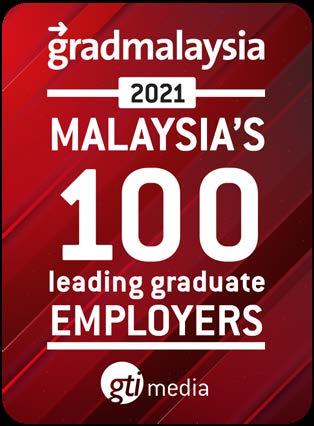
The second is their Shopee Apprentice Program (SAP), which is an internship programme launched in eight of their offices -
Singapore, Malaysia, Indonesia, The Philippines, Taiwan, Thailand, Vietnam, Shenzhen, Shanghai and Beijing.
Both these programmes are specially designed to equip passionate and driven students with strong professional skills and develop them into young leaders, according to Tan.
“These programmes are not only beneficial for these young talents but also act as the ‘feeder’ into our full-time employment,” he said.
“This is especially for the GLP which is actually a fast-track programme that helps us in identifying future leaders who will then be integrated back into the organisation to work on high-impact projects and roles.”
For the fresh graduates who are still unable to secure a job, especially in this challenging time, Tan has a few pieces of advice for them to consider.
“Try to figure out what you want in terms of your career or job, even vaguely. What are the values that are important to you, and find out which companies have the same values as yours,” he said,
“That being said, the next step is to do your homework. Research the career field that interests you, and don’t forget to update your LinkedIn profile to make sure you’re seen by your potential employers. Having an open mind and always looking forward to trying new things - doing a lot of things during your internship, joining volunteer work or club activities - will also help in making you a more interesting person to the employer.”


At CIMB, customers are at the heart of everything we do and we work towards delivering a great customer experience. In line with our Forward23+ strategy, CIMB aspiration is, “to be the leading focused ASEAN bank,” and our purpose is, “to do right by our customers and society, customers and society at the heart of everything we do. Regardless of who we are, what business we are in or who we serve, we are bound by this common purpose and each one of us has a role to play to deliver this purpose.
As CIMBians, we aim to live the EPICC (yes, with two C’s) life. It is our guiding principle to create the best place for the best talents around. It is embedded in how we deliver the best customer experience to our stakeholders.
• them the opportunity to impact the Bank and beyond.
• is part of our identity and brings us success.
• Integrity & Accountability: Trust between our stakeholders and ourselves is paramount.
It is crucial for us to sustain the trust of our stakeholders.
• strengths and assets to win in the market.
• experience which differentiates us in the industry.
At the end of the day, we aim to advance our customers and society.
At CIMB, we aspire to provide a work environment that promotes positive well-being.
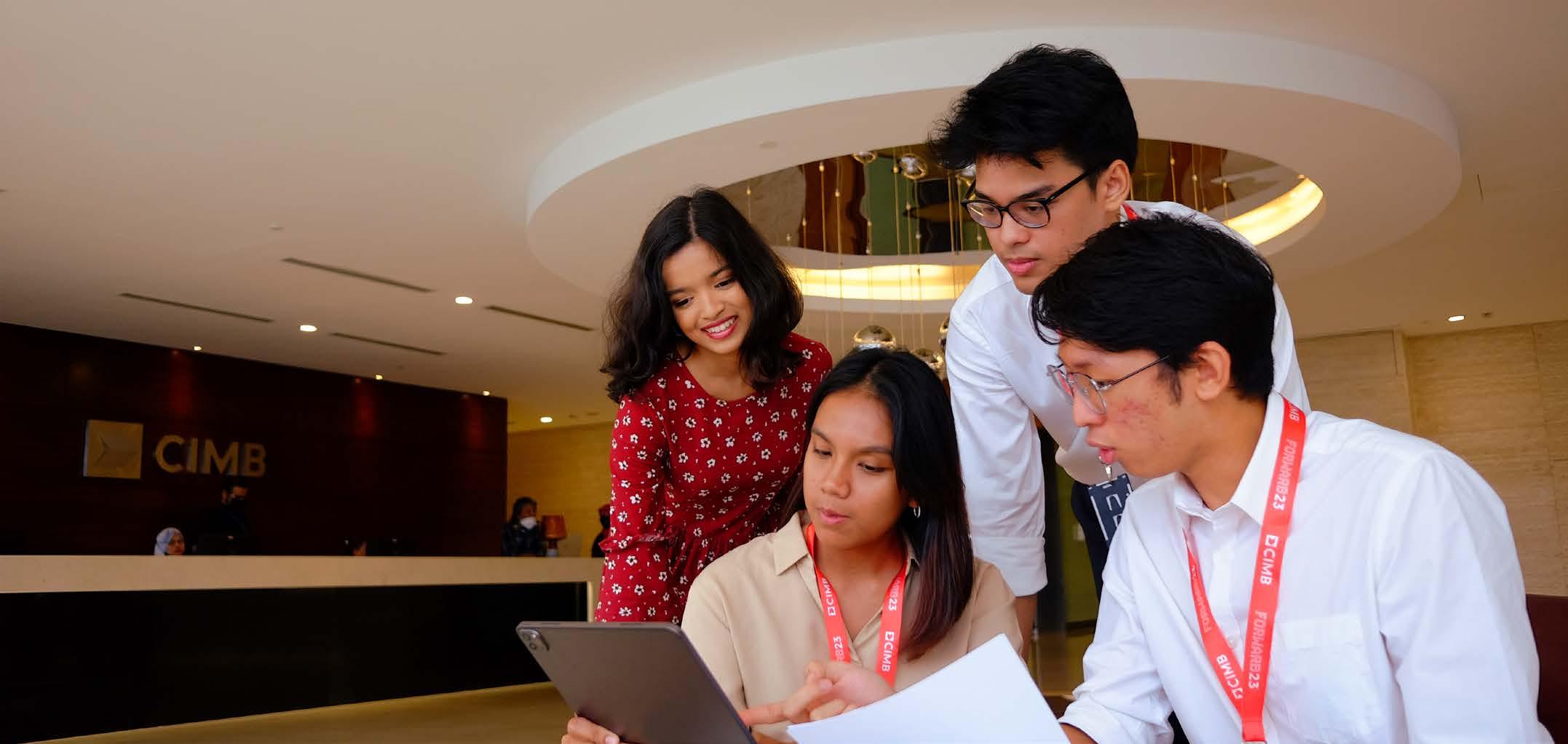
As winners of several workplace wellness
coaching programmes for our high potential talent,
parents with disabled children, and adoption leave.
platform to support our employees’ mental wellbeing, and we also provide staff rejuvenation programme should our employees desire an extended break to work on passion projects and more.
To further enable our talent to progress, a myriad of digital & data related courses, along with corporate scholarships are offered to our employees.
On top of that, we provide generous maternity leave for up to 6 months, and 1 month of paternity
CIMB Group believes in creating a sustainable career trajectory for our people. This is to ensure the capabilities of our people remain relevant in the fast-changing landscape of the industry.

Hence, we provide regional mobility opportunities for CIMBians to enrich themselves with cross-border exposure and drive various transformative agendas. To ensure that, we provide countless coaching and mentoring for highperforming talents. In addition, we’ve rolled out several exciting initiatives to boost our people’s
and learning modules through cloud-based apps to encourage learning anytime and anywhere.
many challenges, we also seized the opportunity there may be some challenges with this hybrid
in employee wellness with increase in productivity and balanced personal time. Not only that, our employees get to spend more time on passion projects and collectively, we get to reduce our carbon footprint.
Diversity, Equity and Inclusion (DEI) is a mission-critical piece of the Maybank culture. Our collective efforts in continuing to raise the value of DEI at the workplace have been wideranging and started in earnest more than a decade ago, starting with our Human Capital Dashboard in 2009, a regular fact-based pulse check that enabled crafting of data-based actions when finding solutions such as developing any initiatives to address any imbalances. It has been one of the tools enabling Maybank’s many milestone successes thus far and was the genesis of the next step of our gender equality drive, which came in the form of our Group Inclusiveness and Diversity (GIDA) Framework in 2014. That framework outlines our commitment to ensure a sustainable commitment to having different nationalities, varying age groups, and socio-economic levels in our dynamic workforce. Through GIDA, our efforts were accelerated and outcomes are monitored through measures reflected on our Group EXCOs’ scorecards. Today, we have evolved into many focus areas to ensure we present an inclusive workplace for Maybankers. This includes programmes such as our mental health programmes and allyship programme.

Maybank’s mission of Humanising Financial Services is something that resonates with all Maybankers as we believe that no matter what, we should always do the right thing. Our Group’s Core Values, TIGER (Teamwork, Integrity, Growth, Excellence & Efficiency, Relationship Building) serve as a guiding principle to encourage practices
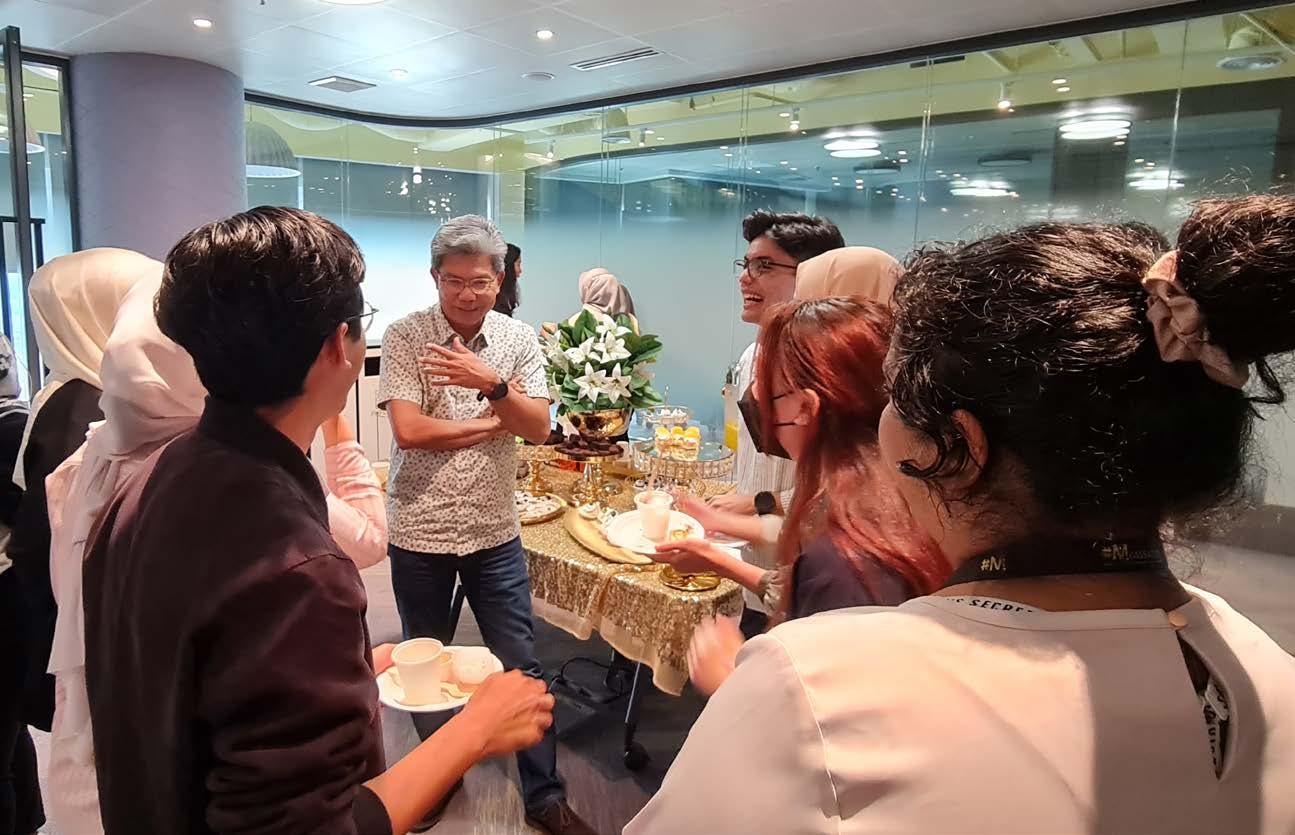
that collectively form our unique culture. Premised on the mission of Humanising Financial Services, we are also committed and serious about embedding sustainability in everything that we do. We continuously review and enhance our ESG practices by working with our stakeholders to drive sustainable business activities and deliver value in line with our mission and our M25 strategy.
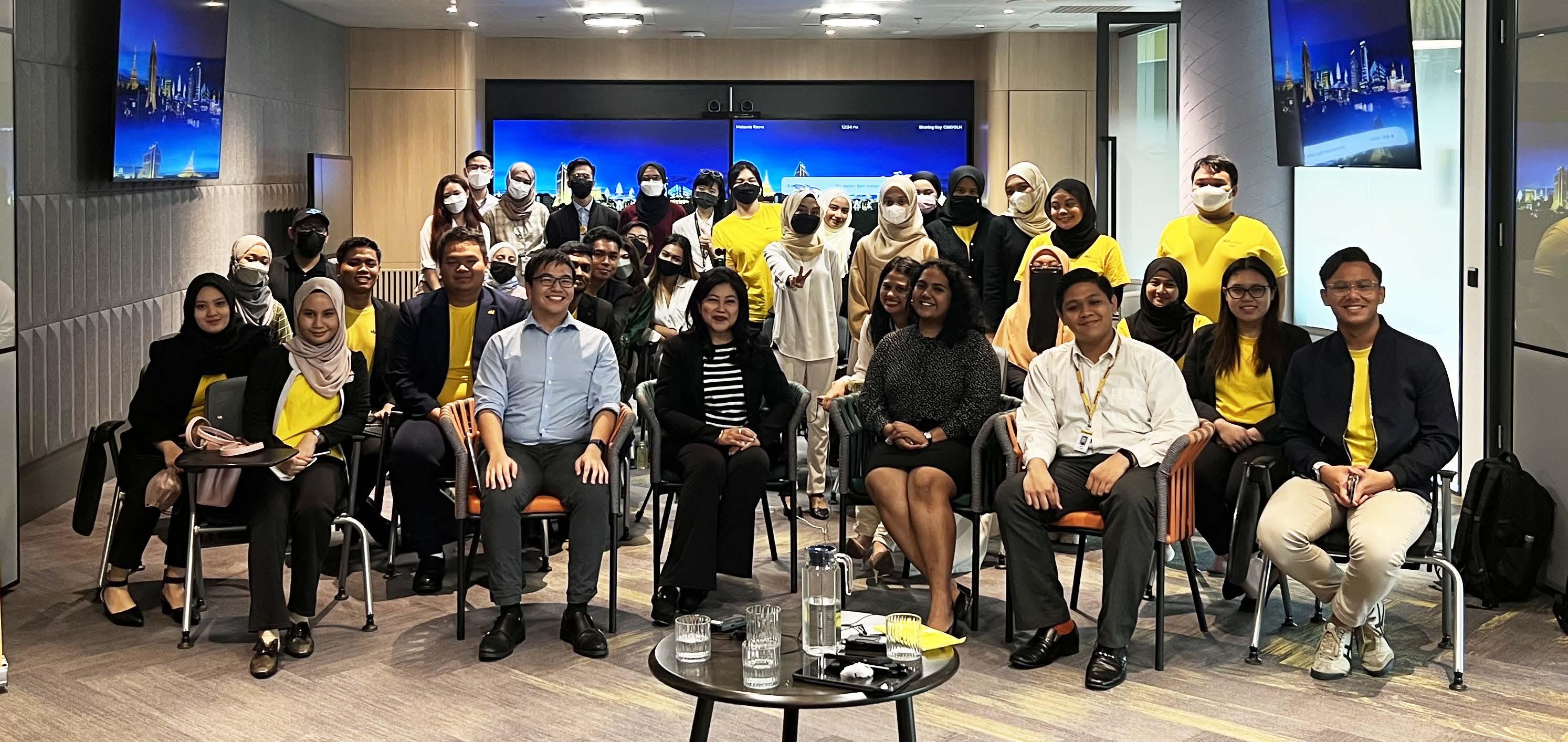
We believe that building a strong sustainabilityfocused culture that is strong in governance, ethics, trust and transparency and reflects the highest commitment to diversity, inclusion, equity and privacy.
Maybank has established an employee wellbeing approach that covers both the physical and psychological aspects of our employees’ wellness and health. Flexible work policies and practices, including the existing Flexible Working Arrangement (FWA) Policy, as well as the Mobile Work Arrangement (MWA), allowed us to embrace a remote-first mentality that meets the diverse needs of our employees as well as prioritises the safety and wellbeing of employees without compromising on productivity and performance. We actively promoted the hybrid work model to enable our people to have better work-life integration and improve their productivity. We also provide holistic support for employees who

need any assistance whilst working from home –including mental health talks and the opportunity to engage with trained in-house Mental Health First Aiders to assist employees who are struggling emotionally and mentally. We always encourage Maybankers to rest well and have an active, healthy lifestyle through programmes like our quarterly Step & Sleep Challenge and daily Virtual Fitness Programmes.
The Bank has always ensured that the thoughts, feelings and needs of Maybankers are considered, alongside the operational and financial requirements of the organisation, aligned with our focus on the five main areas of fitness – the emotional, mental, financial, performance and physical. The support that we provide for our employees encompasses a wide spectrum of benefits, including maternity leave that extends beyond national regulations, paternity leave, childcare leave, adoption leave and child care subsidies. Additionally, we offer flexible work arrangements and leave policies to ensure that employees are able to pursue their interests or make time for what matters to them.
For instance, under the GO Ahead. Take Charge! (GATC) programme’s 4 pillars, employees can opt for job rotations and inter-sector transfers (Reskill & Redeploy); sign up for FWA (Flex In); explore external work opportunities (Flex Out) or choose to take a break to become an entrepreneur (Entrepreneur) whilst retaining the option to return to work.

The pandemic has no doubt redefined our way of working and remote working is here to stay, whether we like it or not. However, we do recognise that there are people who like to be in the office or some are more effective at home. Therefore, the ‘Maybank Office’ will see a blended arrangement with employees working in the office, at split locations, and working from home, today and henceforth. Regardless of the circumstances, we have always been about people; placing utmost priority on the well-being of our employees, customers and communities. In addition to our efforts to keep employees updated on COVID-19related developments, we established policies and practices to support the health and well-being of our employees. In line with our mission of Humanising Financial Services and ensuring the safety of our people, customers and communities, we continued to utilise measures such as reducing branch operation hours, limiting the size of our onsite workforce, and maintaining high standards of hygiene and safety across all workplaces.
Promoting Diversity & Inclusion (D&I) is an important part of our firm’s values. We have a Partner who oversees our D&I strategy as well as a team that drives D&I efforts throughout the year in line with our focus area of ‘Valuing Differences’ - our theme since 2015. This includes striving to ensure women representation in our leaders such as recruiting women who have gone on career breaks, hiring people of different ages, experiences, and backgrounds, and are inclusive of hiring ‘differently-abled’ colleagues. This has helped us win the British Malaysia Chamber of Commerce (BMCC) Excellence Award 2019 for Diversity and Inclusion.

Our workplace culture is driven by our values of Care, Work Together, Reimagine the Possible, Make a Difference, and Act with Integrity, and its associated behaviours. Trust is the bedrock of these values especially when it comes to our flexible work arrangements known as flex+, that provides various forms of work flexibility and benefits. Our guiding principles help support these flexible work arrangements as we trust our people to operate at their personal best and provide high-quality work. An example of this would be our flexMed initiative, which allows our people to take medical
leave without the need for a medical chit. We are also guided by our People Value Proposition (PVP) with the acronym GROW that stands for Growth, Recognition, Opportunities to make a difference, and Ways of Working. This PVP is a reference point (think of it like a career deal) so we can co-create a valuable career journey with each individual that joins us

As we progressively change our ways of working, our flex+ programme helps to continuously address the challenges of work-life balance to ensure our people get the most value out of their professional world and with consideration of their personal lives. Whether within flex+ or team-organised

engagements, there are initiatives that recognise the uniqueness of each individual’s personal lives
• Parents@work: flexMum and flexDad, it allows new parents to use their parental leave flexibly throughout the year.
• flexFriday: a half-day off every second Friday of the month to provide people the opportunity to attend to personal matters that can’t be done so on a weekend.
• Ongoing firm, business unit initiatives: Whether it is physical or virtual, activities such as Virtual Away Day, Taxperience, and connect sessions, ensure that it is not just all work and no play.

With Recognition as one of the pillars in our PVP, we believe that rewards go beyond just monetary. This informs the six pillars of our total rewards
philosophy also known as MY PwC Rewards - Fixed Pay, Variable Pay, Recognition, Professional Growth, Core Benefits, Lifestyle and Wellness
The first two pillars are more centred around monetary benefits which we consistently review to ensure that our people are compensated on par with market benchmarks.
Examples of the latter four pillars are nonmonetary benefits such as:
• flexpoints: A real-time recognition programme that’s both a mobile and web application. It allows our people to express appreciation and/or recognise the contributions of their colleagues by awarding points and badges.
• flexBenefits: Flexibility to use benefits allowance in areas most needed. Employees can choose to utilise medical benefits over lifestyle-related benefits if this is an area of priority for them.
• Birthday leave: Employees are able to take the day off on their birthdays.
Since the pandemic began and Malaysia’s various Movement Control Orders (MCO), the firm has provided support through:

• Vaccination leave: Paid leave is provided to all employees and interns to allow them to receive their COVID-19 vaccinations and booster shots.
• flexCare: This allows our people to assist their family members in receiving their vaccination. Parents are allowed to take paid leave to care for their children who have contracted COVID-19.
• Wellbeing pact: As working from home was the firm’s primary mode for the past two years, the line between personal and professional life was rather blurred. It was often hard to separate the two when both home and office were one. To address this, we got teams to refer to a framework that helps them discuss and agree on wellbeing actions they can adopt.
• Expansion of our flexBenefits claims: Ability to claim for work from home essentials (work furniture, computer accessories, etc), ergonomic tools, COVID-19 health support such as oxymetres, COVID-19 PCR and RTK self-test kits. Weekly RTK self-test kits are also provided for free to all employees.
• flexSpace reimagined: As the nation returns to some semblance of normalcy, our firm has taken a hybrid working model called flexSpace reimagined which is based on trust and allows our people to customise their work arrangement (be it from the office or from home). Each team’s and/or business unit’s work arrangements may look different based on a balance between personal.
“CARE, WORK TOGETHER, REIMAGINE THE POSSIBLE, MAKE A DIFFERENCE, AND ACT WITH INTEGRITY, AND ITS ASSOCIATED BEHAVIOURS.”
Our culture at Nestlé places considerable emphasis on our dedication to supporting a multicultural and inclusive workplace. We want to enable each of our employees to approach every task with their entire selves, distinctive viewpoints, and talents. As we collaborate to satisfy customer demands, diversity, equity, and inclusion are essential to our business.
Our Diversity, Equity, and Inclusion Vision Statement:
Provide an inclusive workplace built on respect and dignity that leverages individual differences and generates equal opportunities for everyone and enables us to win with consumers. We achieve this by:
• Creating a culture of support and empowerment through our employee-led engagement groups, inclusive hiring practices, and company-wide learning and development programs.
• Facilitating unconscious bias training, implementing workplace flexibility policies, and actively removing constraints that limit employees of diverse backgrounds to inspire innovation.
When you work with Nestlé, you’ll be a part of a collaborative, flexible workplace that challenges your ideas and promotes creativity and an entrepreneurial spirit. Additionally, you join a Nestlé culture that is based on respect and encourages
experimentation and failure-based learning. Experience has taught us that working together yields much greater results than working alone, so your voice is heard, valued, and truly makes a difference.
Being a company focused on Nutrition, Health, and Wellness, Nestlé understands the value of striking the appropriate balance between work and home life.
The Nestlé Recreational Club, the Reaching Out to Community & Kids (ROCKs) Program, and the Management Team frequently promote work-life balance by giving workers the chance to take part in community activities, company get-togethers, sporting activities, Family Day, and other events.
• Several attractive employee benefits are available to you when you work for Nestlé:
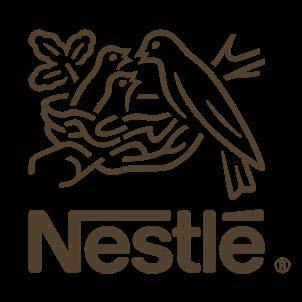

• International Mobility: We provide opportunities for you to advance your profession in different nations around the world.
• Health and Wellbeing at work: With health screenings, medical treatment, on-site cafeterias, exercise centres, sports, and other activities, our employee health programmes will assist you in establishing and maintaining a healthy lifestyle.
• Employee Support: For you to be resilient and feel good as you go about your daily activities, it is more crucial than ever that you receive emotional support both at work and at home.
• Parental Leave: Your new family life can start off well with a minimum of 18 weeks of paid parental leave for the primary caregiver, as well as the option to take additional leave.
• Location-specific Opportunities: Our workplaces differ widely, so based on your job and location, you may be eligible for flexible work schedules, volunteer opportunities, the ability to bring a pet to work, and many other benefits.
People are at the heart of our business. We are working to keep our employees, business partners and the communities where we operate healthy and safe during the pandemic. Our actions include: Asking our employees worldwide not to travel internationally for business purposes until further notice.
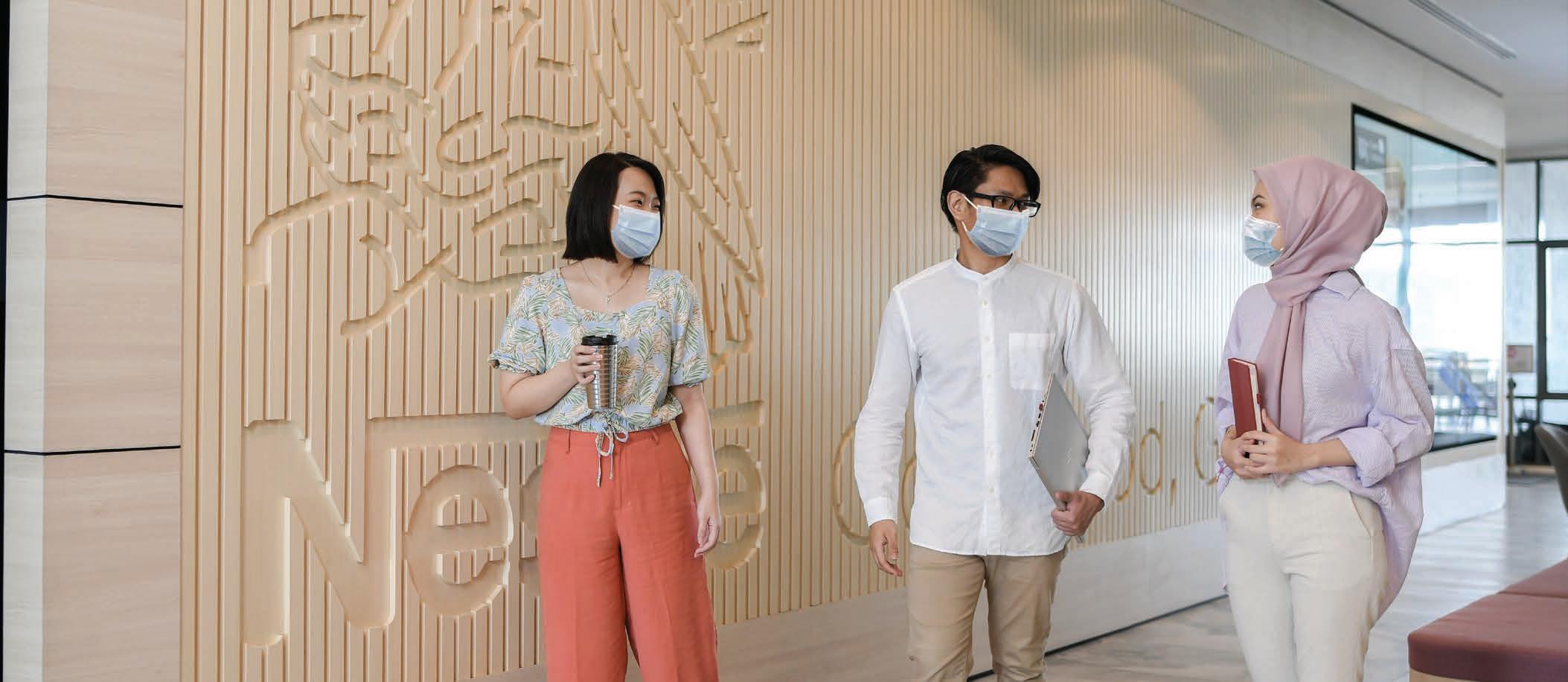
Encouraging office-based employees to work from home whenever possible.
Advising employees on minimizing the risk of infection both at work and at home.
Requesting that any employees who may be experiencing symptoms inform their line manager and self-quarantine for a 14-day period.
Maintaining additional safety measures in our factories, offices and distribution centres.
Working with our supply chain, distribution and retail partners to implement appropriate infection control measures.

How did you get into your current line of work?
I got into banking because I was curious in how the financial system – a critical player in realising sustainable development – can be transformed to align and support recognised sustainability agendas such as the United Nation’s Sustainable Development Goals (UN SDG) and Paris Agreement.
My first stepping stone was The Complete BankerTM (TCB) programme by CIMB. It was during one of the rotations in Group Sustainability that triggered my interest and ignited my passion in sustainability. The Complete BankerTM programme was designed to empower our young talents to discover & nurture their interest.
What do you do day-to-day on the job?
My team focuses on integrating sustainability into the bank’s core business through 5 focus areas i.e. Sustainable Action (CIMB’s own business operations), Sustainable Business (generating profit in a responsible manner), Corporate Social Responsibility (CIMB’s philanthropic arm), underpinned by good Governance and Risk management and effective Stakeholder Engagement and Advocacy.
I am primarily involved in The Strategy & Programme Management Office which oversees and drives key projects happening in all 5 areas, and Sustainable Business Development. The latter involves a close partnership with our Business Units (e.g. Wholesale and Commercial Banking teams) to assist and encourage our clients on their own sustainability journey through sustainable finance solutions such as Sustainability Linked Loans, Sustainable Bonds/Sukuk, etc.
What would you say is the coolest thing about your current role?
Governments and corporations are actively transforming the regulatory landscape and market to make it more sustainable in support of the whole-of-society sustainability approach. My role allows me to be at the forefront of the market and standards development in this rapidly evolving space, exposing me to a wide range of opportunities emerging from critical global issues. I find this the most rewarding with my job currently,

especially being an engineer by training who finds satisfaction in solving problems.
What were the toughest parts of your role and how did you overcome them?
Aside from the technical knowledge that I had to pick up, adapting to a corporate culture that was foreign to me (having come out straight from university) was a challenge too.
The Complete BankerTM (TCB), a structured development programme that I was a part of in my first two years with CIMB did help in overcoming these challenges. The programme’s rotation system enabled me to experience various functions across the bank which allowed me to expand my network, get a decent introduction to interdepartmental dynamics and develop crossfunctional skills, within a short period of time. I was also privileged to be surrounded by extremely supportive peers who were in the same programme, which boosted my morale throughout.
In addition to the external support I received through the programme, my internal motivation is arguably just as important (if not more) in addressing these challenges. Being clear with my priorities, knowing my limits and not being scared to voice them out had a huge impact on my propensity to learn and grow personally and professionally.
What essential skills do you think are needed for your role?
A cliché, but being agile definitely helps. Especially in a space that is evolving at an incredibly fast pace.
Of course, depending on the area you plan to focus on, the hard skills required will vary (e.g. data management and programming are some useful skills to have to navigate tools managing climate change risks for instance) however, for the most part, these skills can be picked up along the way, as long as you remain open and willing to put in the time and effort.
Do you have any advice for your fellow graduates/juniors?
Embrace uncertainty and acknowledge that failure is an important part of any learning process. Learn from your mistakes and move forward, everyone makes them! Don’t spend energy on those that undermine you for it. From a more personal perspective, know your priorities and do not compare them to others. Your definition of success and the ideal job will only continue to evolve with time and your surroundings.

Curiosity and the adaptability to changes can open up endless career opportunities for those who are ready for more.
Assistant Manager, Group Sustainability CIMB
MEng Chemical Engineering, University College London (UCL), 2019
“YOUR DEFINITION OF SUCCESS AND THE IDEAL JOB WILL ONLY CONTINUE TO EVOLVE WITH TIME AND YOUR SURROUNDINGS.”
How did you get into your current line of work?
I always knew I wanted to work abroad, and I particularly liked jobs that are analytical and
as it allows me to scrutinise problems and look with clients. Hence, the decision to take up
to do what am doing now in different parts of the world.
What do you do day-to-day on the job?
As a senior associate, I am responsible to coordinate audit engagements with our clients and am the key contact between managers, partners and management in my organisation. Typically, there will be junior associates to assist in the team so it is part of my role
required to work with the managers on key resources to ensure that the audits are always timely and within the stipulated budget and duration.
What would you say is the coolest thing about your current role?
The opportunity to understand different types
auditing different organisations helped me understand the business better. Also, the ability to work with clients in different countries is exciting, and that’s why I am currently based in PwC Middle East in Dubai, UAE. It also helps
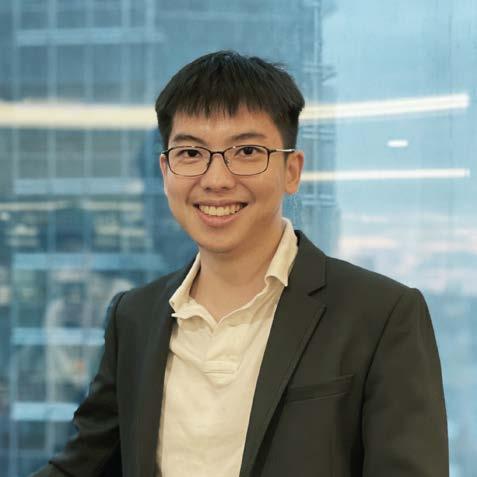
is one of the most recognised and portable in many countries around the world without
What were the toughest parts of your role and how did you overcome them?
The toughest parts were taking the ICAEW
myriad of technical knowledge, abilities and acumen for the role (ICAEW updates annually to the latest curriculum needed in the market!) – as well as the long hours needed sometimes in different audit projects. But the
into the inner workings of businesses and
ICAEW ACA
What essential skills do you think are needed for your role?
Good and current technical knowledge in
IT, especially in areas of data analysis. And in areas of soft skills including people skills, teamwork, decision-making and problem-
Do you have any advice for your fellow graduates/juniors?

you with all the necessary technical skills and knowledge. Not to mention, the compulsory training includes the essential soft skills you will need in your future roles.
on your résumé as it is globally recognised in many countries without the need for additional exams, and you will be able to secure opportunities globally. As great as it is, one must put in hard work in the pursuit
opportunities that follow will pay you back handsomely.
Having a good balance between your technical skills and soft skills will carry you further in your career.
“ONE MUST PUT HARD WORK IN THEIR PURSUITS, AND THE OPPORTUNITIES THAT FOLLOW WILL PAY YOU BACK HANDSOMELY”
How did you get into your current line of work?
Despite my young age, I have actually been a proud Maybanker since 2015, when I was accepted into the Maybank Scholarship Programme! Since then, I have been constantly exposed to thevarious initiatives done by the Bank, giving me further insights on the working environment and culture of Malaysia’s largest bank. After graduating and going through a series of assessments and career conversations, I was accepted as an Executive Trainee in my current department –a chance that until today, I am forever grateful for being able to kick-start my career in the line of Human Resources; something that I have always wanted since completing my summer internship with Maybank London’s Human Capital team.
What do you do day-to-day on the job?
My job revolves around driving workplace futurisation initiatives to prepare our workforce and workplace to be future-ready. This often encapsulates institutionalising new ways of working as well as accelerating development and productivity of our talents. Since 2020, I was given the opportunity to proactively plan and implement Maybank’s permanent work-from-home policy, the Mobile Work Arrangement. It was indeed an eyeopening experience to discover the various aspects that relate to employees’ need to shift from working in the office towards working from home and now, moving towards a blended or hybrid workplace – such as curating policies and providing the necessary transitional support.
What would you say is the coolest thing about your current role?
Undoubtedly, it would be activating our new alternate site called Mercu Maybank at i-City. The new office will act as one of Maybank’s alternate sites as part of its business continuity plan and will house over 1,500 Maybankers who are involved in critical business functions. It was a remarkable experience as I was granted the opportunity to host hybrid onboarding sessions, design

DESIGNATION
Analyst, Talent Attraction, Workplace Futurisation & GHC Sustainability, Group Human Capital Maybank

BSc Psychology, University of Southampton, 2020
guidebooks and content that act as handrails for these employees, as well as plan their entire relocation journey. I was also one of the first few people to have a view of the new office before the relocation took place!
What were the toughest parts of your role and how did you overcome them?
I noticed that due to my go-getter personality, I am always very eager to contribute to the various projects and tasks I am assigned to; to a point that I sometimes overburden myself in the process. I realised that this is not only counterproductive but it also takes away the learning outcomes of the tasks and dilutes its impact. Slowly but surely, I began to learn to pace myself and take breaks when I need to, striving towards quality and to be impactdriven rather than spreading myself too thin and risking a burnout.
What essential skills do you think are needed for your role?
One soft skill that I think is really important is the ability to articulate your message in a clear and concise manner including your personal thoughts as it shows confidence in your knowledge. Being able to justify it is also a good complementing skill. Another skill would be that whenever you have a problem at work, it is always important to be able to frame that problem in a positive manner and be more proactive by recommending possible solutions.
Do you have any advice for your fellow graduates/juniors?
My advice is to never give up as being persistent, especially when you are just about to kick-start your career. Also, do try to keep an open mind and not restrict yourself to the course you took in university. The skills and knowledge you picked up during your university days will help you in your career journey regardless of your role. Never be afraid to venture outside of your comfort zone and try new things. Be proactive in your life, in every aspect. Do not be too comfortable or become a creature of habit. Recognise that the biggest hustle in life is the hustle towards self- development to become the best version of yourself.
Persistence and determination are keys to have a great career kick-off.
“NEVER BE AFRAID TO VENTURE OUTSIDE OF YOUR COMFORT ZONE AND TRY NEW THINGS.”

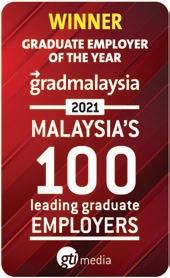
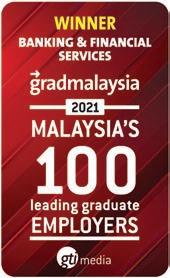






How did you get into your current line of work?
I joined Nestlé in 2019, under the Management Trainee Programme, where I was placed within the Marketing division. I always envisioned working in a high-growth company like Nestlé, where I can gain abundant exposure to challenging assignments.

What do you do day-to-day on the job?
Marketing in Nestlé covers both above-the-line and below-the-line activations. My day-to-day responsibilities consist of closely monitoring market trends and curating campaigns catered toward the brands’ targeted audience. Within
colleagues from the Consumers and Shopper Insights team to understand upcoming trends and behaviour to better serve our consumers and shoppers.
What would you say is the coolest thing about your current role?
Nestlé Malaysia is a perfect example of an organisation that provides a holistic learning platform for its employees that highly encourages cross-functional collaboration.

I am constantly surrounded by dynamic groups of talents from diverse backgrounds. Collaboration happens frequently within Nestlé, and I am profoundly grateful for the opportunity to join forces with personnel across different divisions such as Sales, Digital, Supply Chain, Finance, and Shopper Insights.
When the Marketing team has an idea, we have the chance to brainstorm further with our Innovation & Renovation department and discuss production feasibility with our factory colleagues. After that, it’s time to create product awareness and knowledge with our in the market.
What were the toughest parts of your role and how did you overcome them?
One of the challenges I faced was trying to get the brand to constantly stand out in the crowded marketplace, especially when the industry is extremely fast-paced and challenging. Trends are continuously changing quickly, and consumers’ interests evolve rapidly. Hence, it is challenging for a marketer to ensure that their brand constantly stands out and remains relevant. Our team makes an effort to understand the consumer’s portfolio deeply in order to discover what makes our brand more appealing than the competition. In addition, it helps to localise marketing strategies and always prioritise the customer in everything that we do.
Assistant Brand Manager
Nestlé
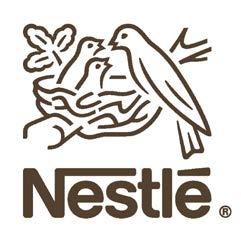
Bachelor of Business
in Marketing and Accounting)
Monash University, 2019
Everyone faces obstacles both professionally and personally, I am not an exception. Each task requires meticulous attention to detail for smooth execution. With the supportive people at Nestlé Malaysia, I am able to push through and deliver satisfying results.
What essential skills do you think are needed for your role?
I believe one of the most essential skills required in any role is cultivating the concept of curiosity. Curiosity is imperative to our personal growth as well as our professional performance. Curiosity sparks inspiration and creativity, which results in an individual
solutions. Do not be intimidated to pose your questions and be inquisitive because learning is a lifelong process and there may be others
as well.
Do you have any advice for your fellow graduates/juniors?
My advice is to prepare for the future. You must develop competent, appropriate work habits and ethics early on. For instance, establish good time management skills at the beginning of your career, if not from your school time, and constantly work to improve yourself. It helps to have a good example to follow, whether it be a colleague, a leader you admire or even your own parents. Though everyone should progress through life at their own pace, an individual’s responsibilities and workload will only increase with time. By having early preparation, you will be more ready to face life’s challenges head-on and persevere when the going gets rough.
“DO NOT BE INTIMIDATED TO POSE YOUR QUESTIONS AND BE INQUISITIVE BECAUSE LEARNING IS A LIFELONG PROCESS AND THERE MAY BE OTHERS WHO WILL BENEFIT FROM THE KNOWLEDGE SHARED AS WELL.”
How did you get into your current line of work?
I applied for a position after my internship with the firm in 2019. From my internship experience, I knew I wanted to join PwC Malaysia as the people and culture suited me best. I was informed about PwC’s Tax Management Trainee (TMT) programme – a two-year programme that offered me the chance to do four rotations in Tax and Assurance, six months each.

I joined the fourth batch of TMTs in October 2020. My first rotation was in Tax Reporting and Strategy (TRS) and while it was a challenge, it was also a blast. The challenges were mainly due to my transition from student life to working life while familiarising myself with the work and world of TRS. Adding to it all was the Movement Control Order due to COVID-19, so working virtually was definitely unexpected.
What do you do day-to-day on the job?
My exact daily routine would differ from time to time and, depending on the rotation, I would generally classify the activities as discover, discuss, and deliver.
1) Discover: I do background research on the entities and their business, any available opportunities, and tax technical readings to understand how the industry operates in general.
2) Discuss: I compile all the information and present it to my team/supervisors to gain better insights and suggestions for the team, given the varying experience and exposure.
3) Deliver: Transforming the information agreed upon from the previous two stages into various forms of deliverables that clients require, be it in the form of a presentation, report, or even important discussion points for a meeting.
What would you say is the coolest thing about your current role?
The rotational aspect of the TMT programme is definitely the best part of my career so far.
As a new graduate, getting the chance to rotate across different business units provided me with exposure to different parts of the business as well as the opportunity to expand

my business acumen. Personally, I get to learn new things about myself through challenging my limits and discovering what line of work is most suited for me.
As a bonus, the rotations allow me to meet new people and build relationships that blossomed into lasting friendships.
What were the toughest parts of your role and how did you overcome them?
Every new task is a new learning opportunity, even when it might not be very enjoyable, and I know I have to deliver to the best of my ability.
I try to break down the tasks and challenges into different stages and measuring my performance at each stage makes it achievable and easier for me to do my best. I also get to test my limits and perhaps even change my perception of the job or role.
What essential skills do you think are needed for your role?
Managing upwards. In this case, it is the ability to communicate well and align with your managers on what are the deliverables and expectations. This could also mean communicating your capacity, capability, and any opportunities you seek to your supervisors which would allow them to assign you suitable tasks and challenges at your level.
By practising this skill, it builds trust in the working relationship by demonstrating your capability to perform your assigned tasks and helps develop your own managerial skill
Do you have any advice for your fellow graduates/juniors?
BA (Economic and Social Studies) (Honours) in Accounting and Finance, University of Manchester, 2020
Be flexible to learn and have a growth mindset. Whatever you learnt during your university years may not be directly applicable but always be enthusiastic about every opportunity and challenge that could help you learn something new.
Trying out new things and taking brave first steps can never be a bad thing for your future.
Senior Associate, PwC Malaysia
“BE FLEXIBLE TO LEARN AND HAVE A GROWTH MINDSET.”

Bank Islam Malaysia Berhad (Bank Islam) is heading toward a more exciting future. Putting in place our the Main Market of Bursa Malaysia, is on a journey solution with leadership in digital banking and social
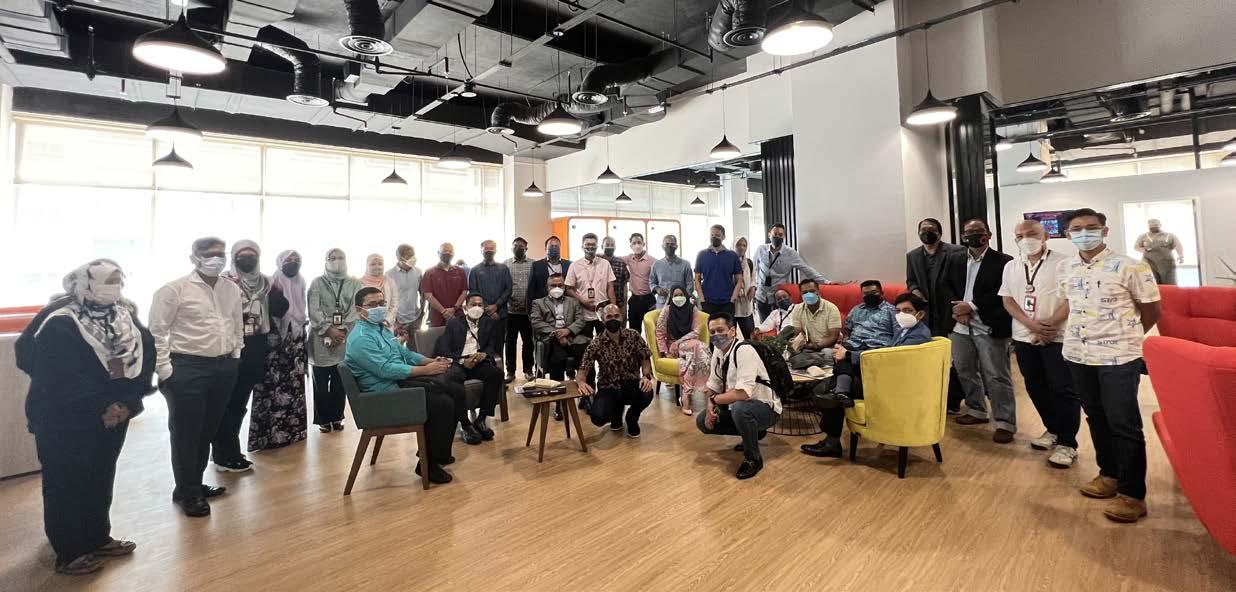
We emphasise ensuring the sustainability of our business, safeguarding people’s livelihood and preserving the environment. Sharing of prosperity has been part of our DNA for the last 39 years, and we are committed to ensuring it continues.
When you work at Bank Islam, you will be part of an organisation that integrates a work-life balance approach. We allow you to grow professionally and spiritually. You will work with thought leaders and learn from some of the best minds in the industry. Our value-based culture will shape you to become a better person.
You will be allowed to contribute to innovations that will grow our business and contribute to society and the planet.
Staunch on universally accepted values, balanced on professionalism, uphold to integrity and mutual respect—all these elements make BIMB a great place to be.
Application through Bank Islam career portal (https://careers.bankislam.com.my/)
• Graduate jobs: Throughout the year
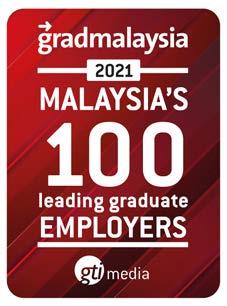
• Internships: Throughout the year

Selection process
Step 1: Submit the application through career portal https://careers.bankislam.com.my/
Step 2: Interview with hiring managers on our virtual
Step 3: Relevant assessments if applicable
• Accounting
• Business Administration
• Economics
• Engineering
• Finance
• Humanities, Art and Social Sciences
• IT and Computer Sciences

• Law
• Maths
• Property and Built Environment
• Sciences
• Social Work
• Teaching and Education
• Graduate
• Internships
Main area(s) of business
• Banking and Financial Services
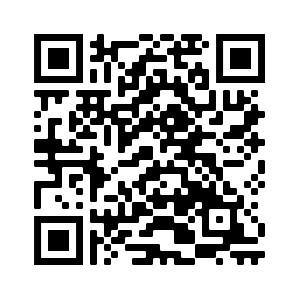
• Investment Banking and Investment Management
Menara Bank Islam, 22, Jalan Perak, 50450 Kuala Lumpur
Tel: +603-2690 0900
Web: https://careers.bankislam.com.my/ E-mail: careers@bankislam.com.my
Social media GoBeyondAtBankIslam
Bank Islam Malaysia Berhad Bank Islam Malaysia Berhad BankIslamChannel
Type of business Banking
Number of employees
1,000 – 10,000
Nationwide HQ
Menara Bank Islam, Kuala Lumpur

We build lives, not just careers

Be part of our family and discover
potential for continuous
in your career journey as:


BDO is founded on the culture that people and hence, relationships matter. Here at BDO, we focus on building meaningful lasting relationships with everyone we work with – our clients, our colleagues and the community. Our Employment Value Proposition themed BDO #BecauseRelationshipsMatter truly resonates with us and is what makes BDO distinct. People, Development, Purpose and Recognition, are the four strong pillars in delivering our promise, ensuring relationships matter and continue to matter in BDO.
BDO is one of the five largest global professional firms providing #Audit & #Assurance, #Advisory, #Tax and #BusinessServices & #Outsourcing; and plays a key role in the operations of BDO offices in Brunei, Cambodia, Lao PDR, Myanmar and Vietnam. We offered competitive compensation and benefits, career progression, professional and personal development, open-door policy, flexible work arrangements and work aside, we host company social events to further build the camaraderie and relationships within. Discover more about BDO at www.bdo.my and follow @BDO Malaysia to stay connected.
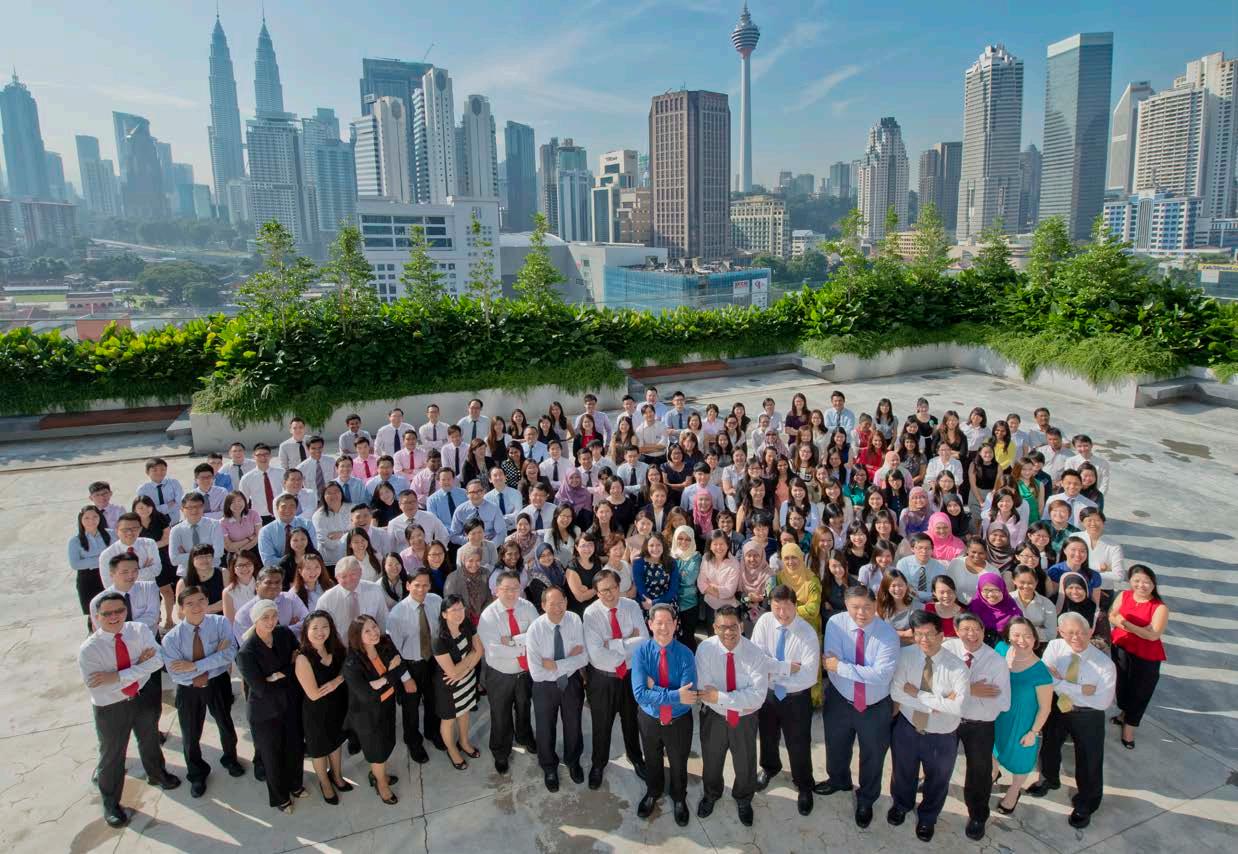
Submit job application via email to jobs@bdo.my or apply online via: www.bdo.my/careers

• Graduate jobs: Applications open all year round


• Internships: Applications open all year round
Our application process has 3 stages:
Step 1: Submission of job application via email to jobs@bdo.my or apply online via: www.bdo.my/careers
Step 2: Written assessment
Step 3: Virtual interview conducted via Teams until further notice
• Accounting
• Finance
• IT and Computer Sciences
• Human Resources
• Business Administration Opportunities offered
• Graduate Jobs
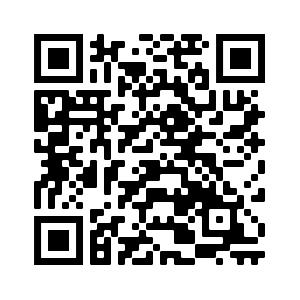
• Internship Jobs
Main area(s) of business
• Accountancy and Financial Management
• IT and Technology
Level 8,
BDO @ Menara CenTARa,
360 Jalan Tuanku Abdul Rahman
50100 Kuala Lumpur
Malaysia
Tel: +603 2616 2888
Web: www.bdo.my/careers E-mail: jobs@bdo.my
bdo_malaysia
BDO Malaysia
BDO Malaysia bdomalaysia1
Accounting & Professional Services
Number of employees
500 – 1,000 Branch Offices
Kuala Lumpur, Penang, Johor Bahru
HQ Kuala Lumpur
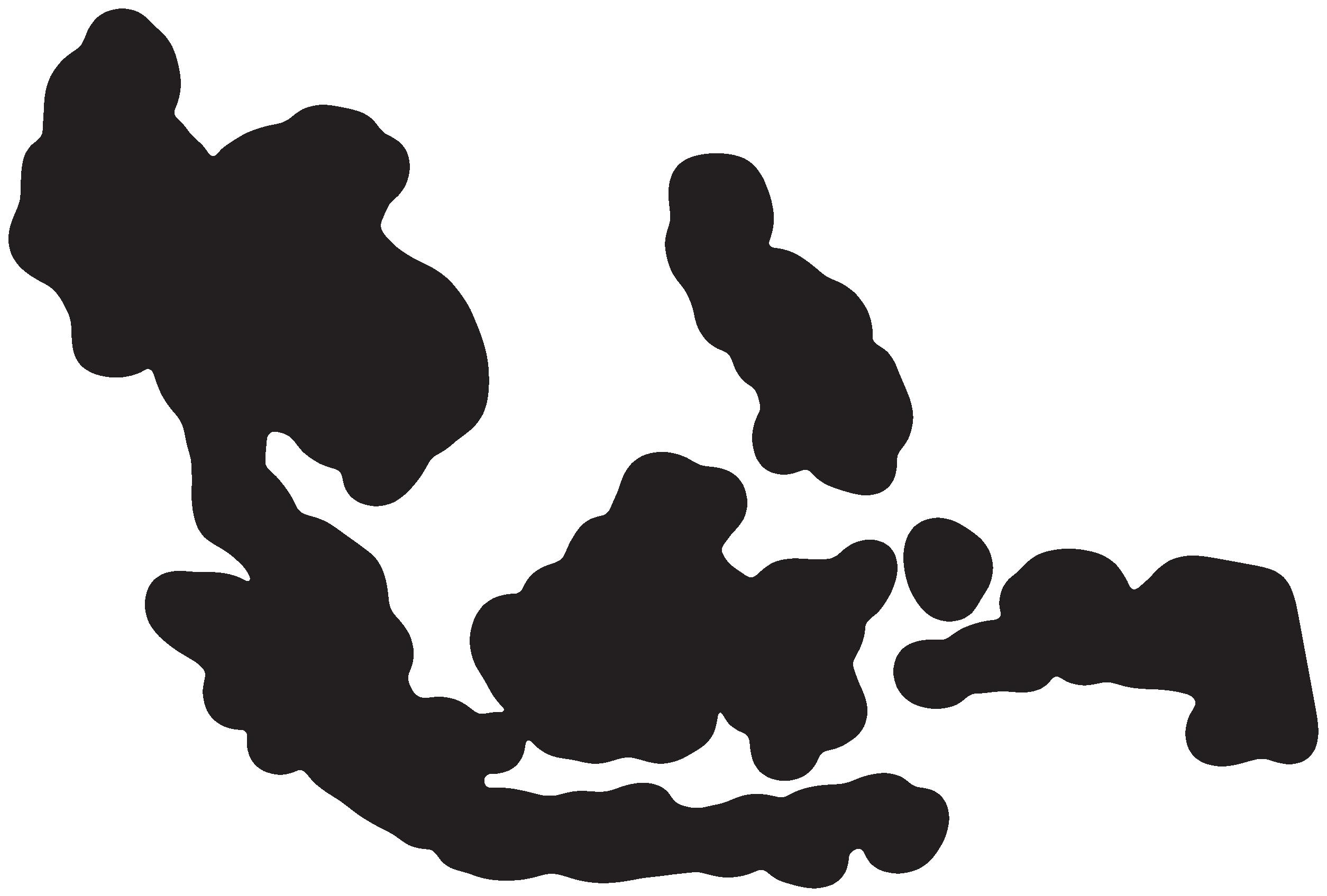

CIMB
Stage 3: Stage 4: Stage 5:
Junior Relationship Manager (JRM)

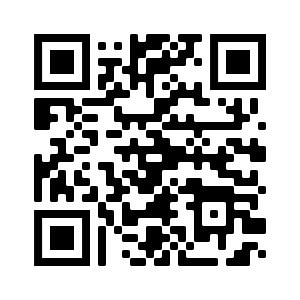

1:
Stage 2:
Stage 3:
discuss placement
necessary documents
Hiring criteria
Application procedure
Annual application periods
• Graduate jobs:

Complete BankerTM
Junior Relationship ManagerTM (JRM)
Internships:
Selection process
The Complete BankerTM (TCB)
BankerTM
Stage 1:
Stage 2:
(TCBD)
area(s)
Management
offered

media
Type of business
Number of employees
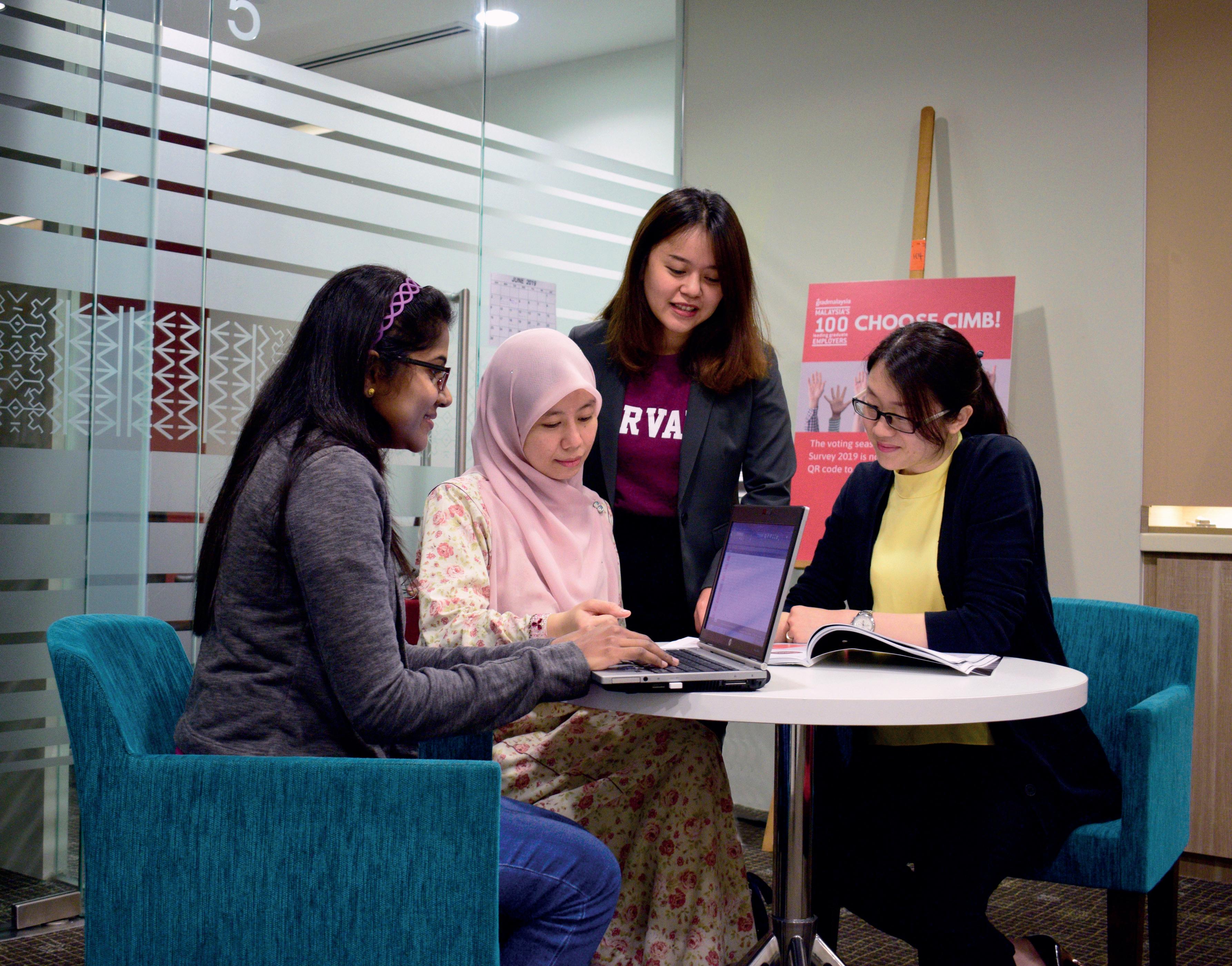
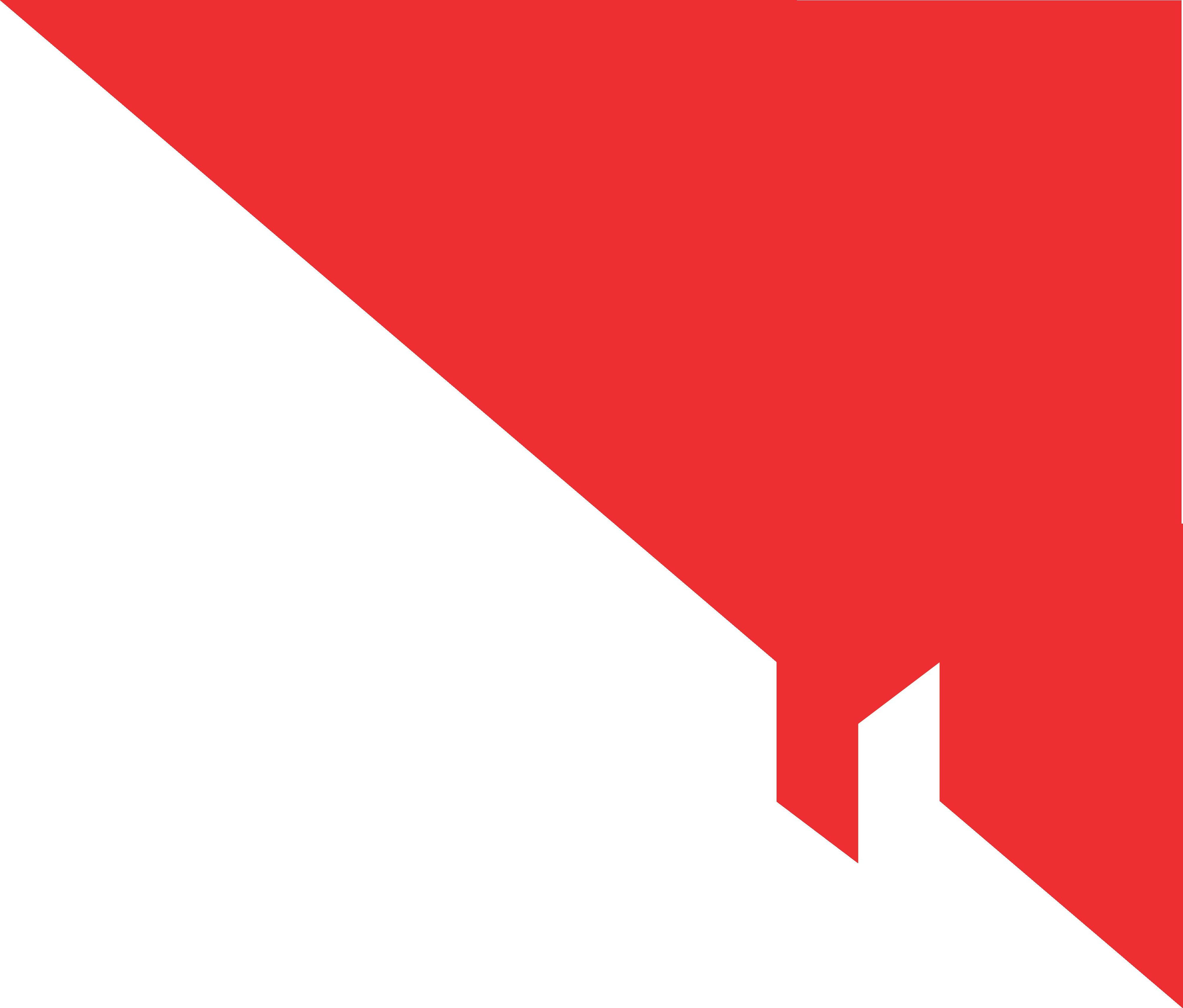

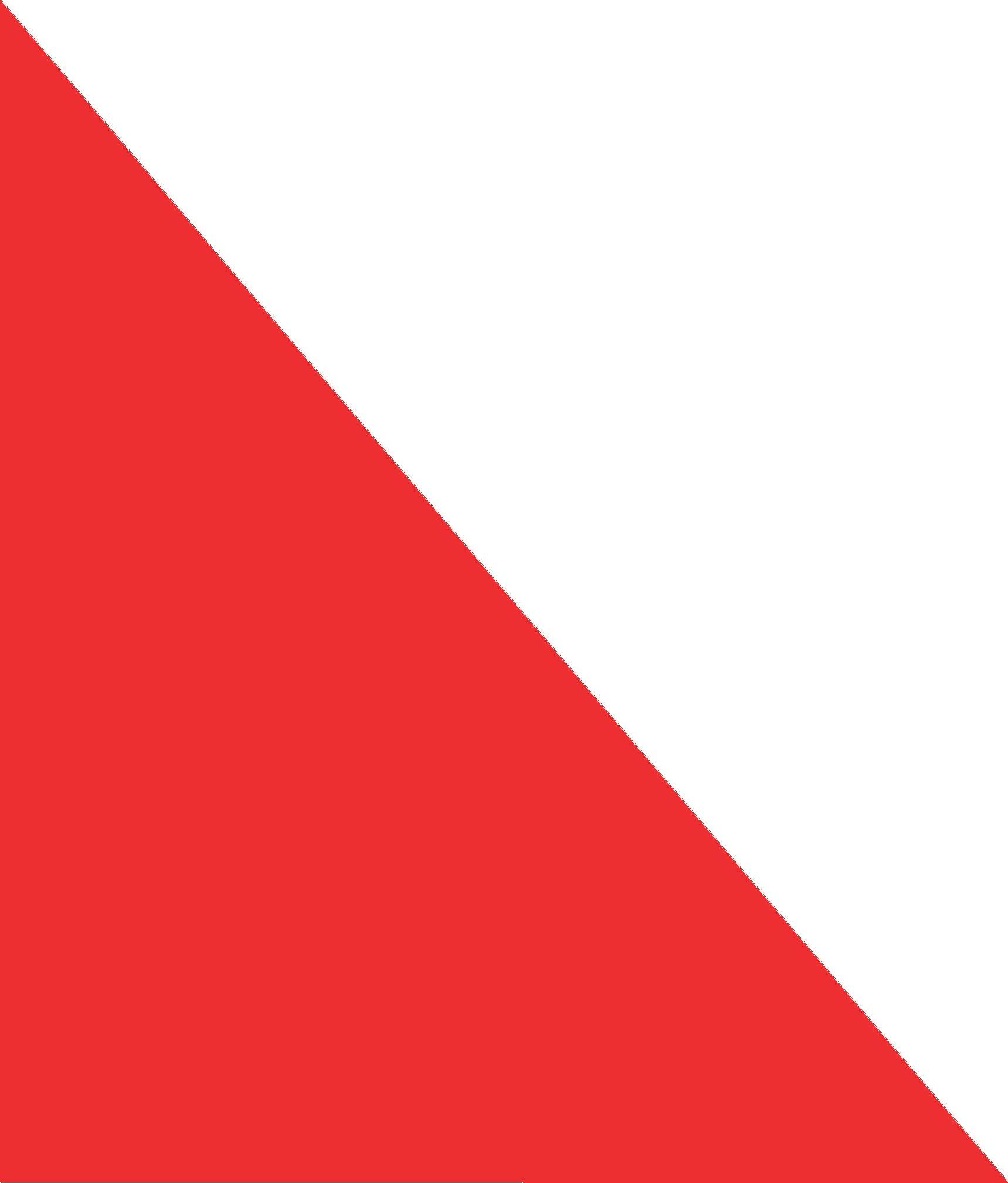


d c a
a t h s , t a i l o
s t
About us:
Deriv Services Sdn Bhd is the operational headquarters for Deriv, a pioneer in online trading. Since our inception in 1999, we’ve grown and evolved over the course of more than 22 years.
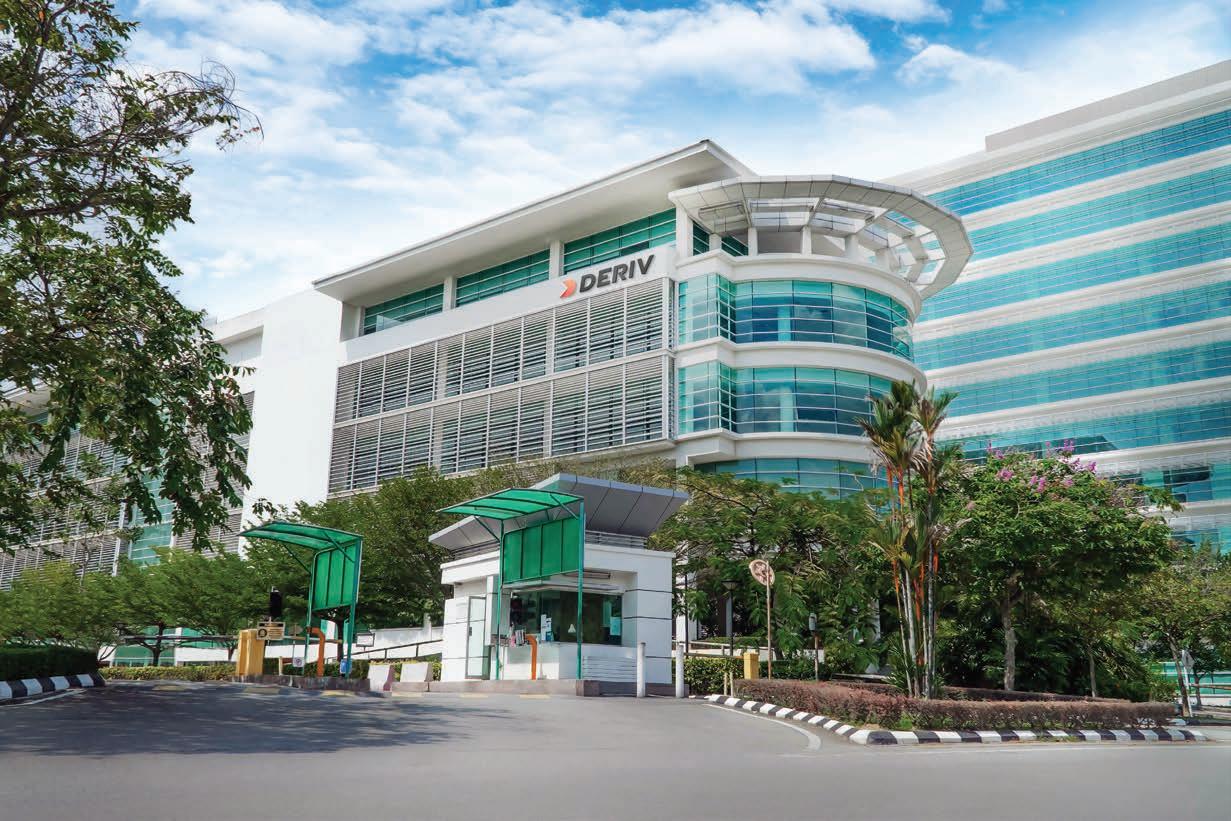

Our culture:
We are a vibrant and progressive team that thrives on integrity, teamwork, competence, and customer focus.
Why join us:
Our workplace is a fast-paced, dynamic environment that encourages open communication, transparency, and the free flow of ideas among our employees. It gives them the freedom to come up with creative solutions to problems while collaborating with others to accomplish tasks without regard to hierarchy. We also invest in their growth through training and development programmes, as we want them to have a rewarding career with us.
In 2021, we launched our very first graduate programme — Be Square. This 6-month tech programme provides fresh graduates with a holistic learning experience with real-world scenarios supported by a well-structured curriculum.
With more than 800 people of over 55 nationalities spread across our 12 offices in 9 countries, you will be able to share your expertise and knowledge with colleagues from all over the world, as well as build your own career path.
Discover job opportunities with us at https://deriv. com/careers/ and apply for the role that best suits your qualifications and experience.
Graduate jobs: Throughout the year
BeSquare Programme: Dec-May Selection process
Step 1: Submit your CV Step 2: Complete and submit a self-assessment questionnaire
Step 3: Initial interview by the recruitment team and department Team Lead/Manager Step 4: Final interview with HOD and senior management
Step 5: Reference and background check Step 6: Job offer
Accounting Business Administration Economics Engineering Finance
Humanities, Art and Social Sciences
IT and Computer Sciences Law
Maths
Graduate Jobs

Internship Jobs
Main area(s) of business
IT and Technology
Deriv HQ, 3500,
Jalan Teknokrat 3, Cyberjaya 63000, Selangor
Tel: +603-8322 8178
Web: https://deriv.com/careers/
Social media
linkedin.com/company/derivdotcom Deriv.com
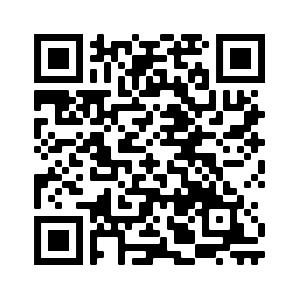
Derivdotcom
Type of business
Financial Technology
Number of employees
500 – 1,000
Branch Offices
Melaka Ipoh HQ
Cyberjaya, Selangor
"WE ALSO INVEST IN THEIR GROWTH THROUGH TRAINING AND DEVELOPMENT



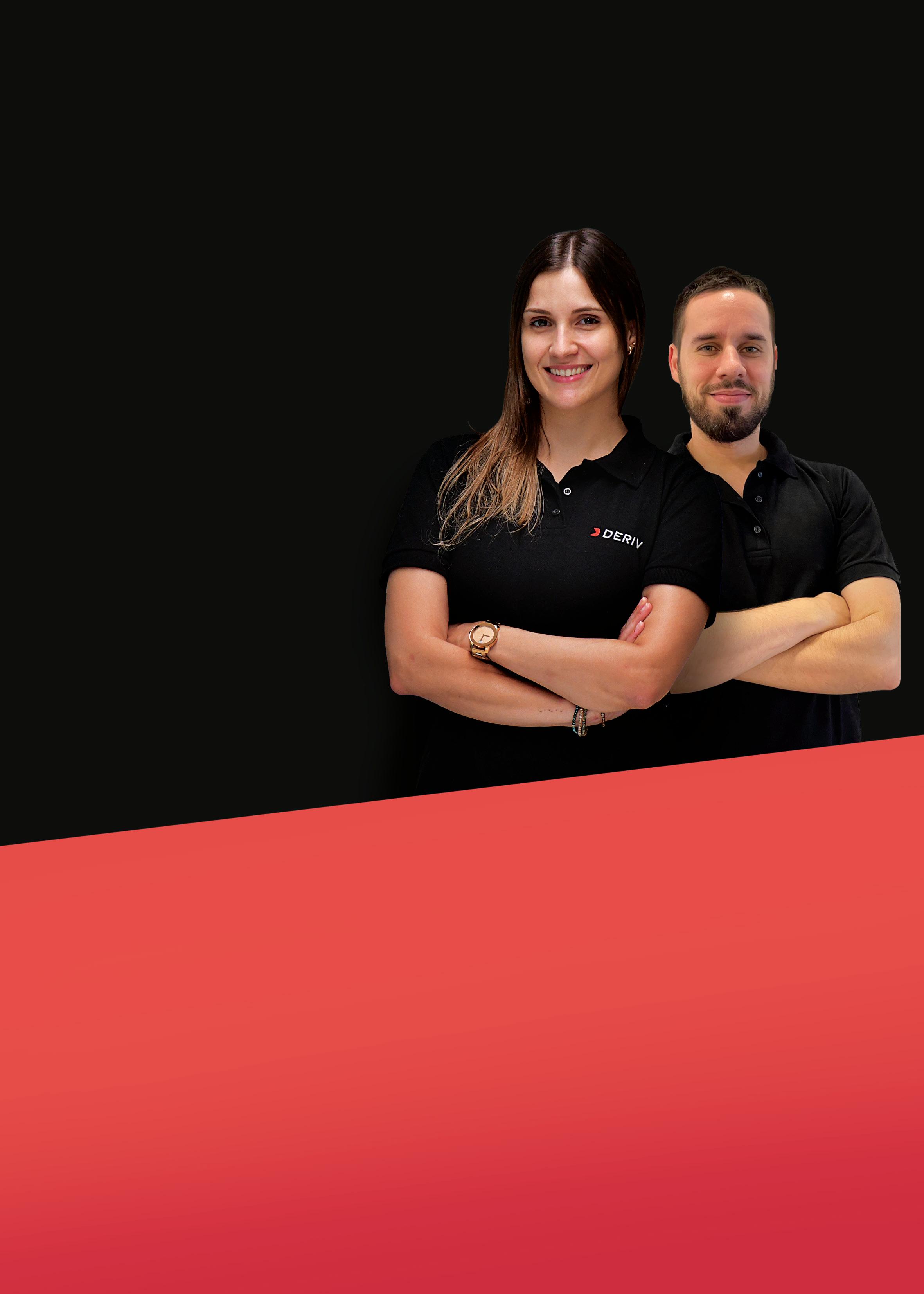
For over 70 years, the Employees Provident Fund (EPF) has been committed to helping our members achieve a better future by safeguarding their savings and delivering excellent services. As one of the world’s oldest and largest provident funds, we continue striving toward our goals by evolving and enhancing our services in this ever-changing and dynamic time, allowing us to stay relevant to our members. The fund’s vision of helping members achieve a better future is embedded in our working culture. This has enabled us to soar to great heights, among which are our successes in securing impactful investments and subsequently recording healthy returns annually. These long-term investments and returns will pave the way for a better retirement future for our members, and attest to the hardworking and passionate team that we have in the EPF.
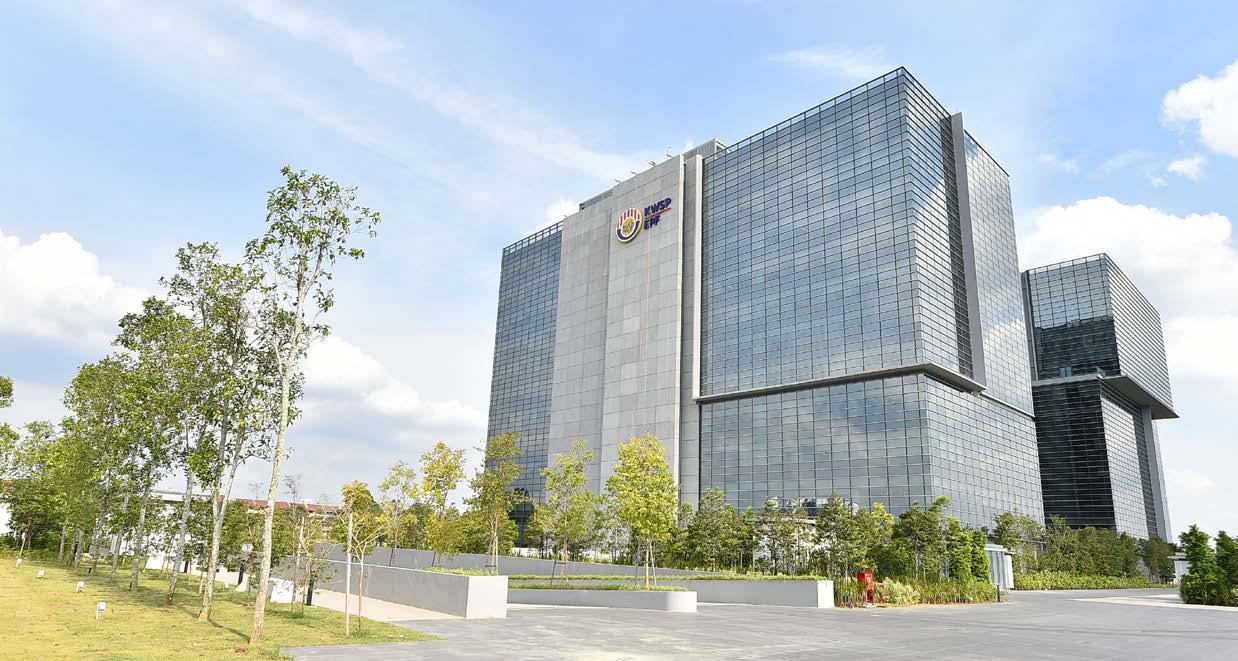
Through recruitment email or our official job portal:
• LinkedIn: EPF Malaysia
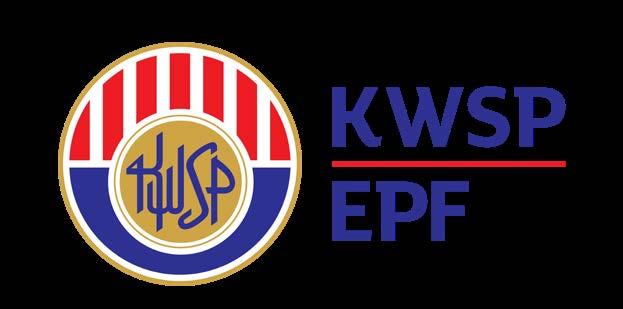
• Jobstreet: Kumpulan Wang Simpanan

Annual application periods
• Graduate jobs: Throughout the year
• Internships: Throughout the year
Selection process
Our application process has 3 stages:
Step 1: Completion and submission of application form online
Step 2: Online assessment
Step 3: Interview with the respective department and HR personnel.
• Accounting
• Business Administration
• Economics
• Finance
• Humanities, Art and Social Sciences
• IT and Computer Sciences
• Law
• Maths
• Sciences Opportunities offered
• Graduate Jobs
• Internship Jobs
Main area(s) of business
• Financial Services
Menara KWSP
No. 1, Persiaran Kwasa Utama
Kwasa Damansara
Seksyen U4
40150 Shah Alam
Selangor Darul Ehsan
Tel: +603-6122 6000
Web: www.kwsp.gov.my
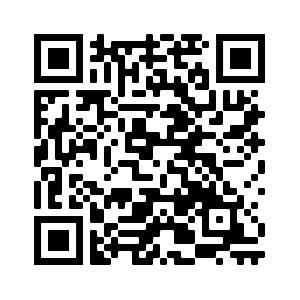
E-mail: recruitment@epf.gov.my
Social media
www.linkedin.com/company/epfmalaysia


Type of business Financial Services
Number of employees
1,000 – 10,000
Branch Offices
All States
HQ Selangor Darul Ehsan








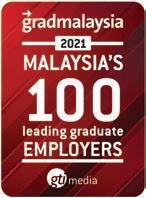
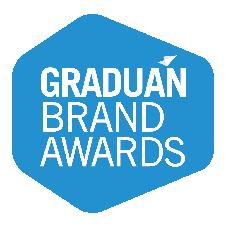
An industry leader in almost every aspect of the energy and chemical manufacturing businesses, we operate facilities or market products in most of the world’s countries, explore for oil and natural gas on six continents, and research and develop next-generation technologies to help meet the dual challenge of fueling global economies while addressing the risks of climate change.
In Malaysia, we are involved in significant oil and gas production operations and the marketing of chemical products. We also host a global business and technology centre that provides high-level engineering and information technology expertise to ExxonMobil’s upstream, downstream and chemical businesses worldwide.
We are the Winner of Malaysia’s 100 Leading Graduate Employers Award in the Energy/Oil and Gas/Utilities category.


We only accept online applications submitted at jobs.exxonmobil.com
Application period: Jan - Dec
Graduate jobs: 200 placements Internships: 50 placements
Please refer to our hiring process at https://corporate.exxonmobil.com/Company/ Careers/Our-hiring-process
Business Administration Engineering Finance IT and Computer Sciences Sciences
Opportunities offered Graduate Jobs Internship Jobs
Main area(s) of business Energy, Oil and Gas, and Utilities IT and Technology
Menara ExxonMobil, Kuala Lumpur City Centre, 50088 Kuala Lumpur, Malaysia
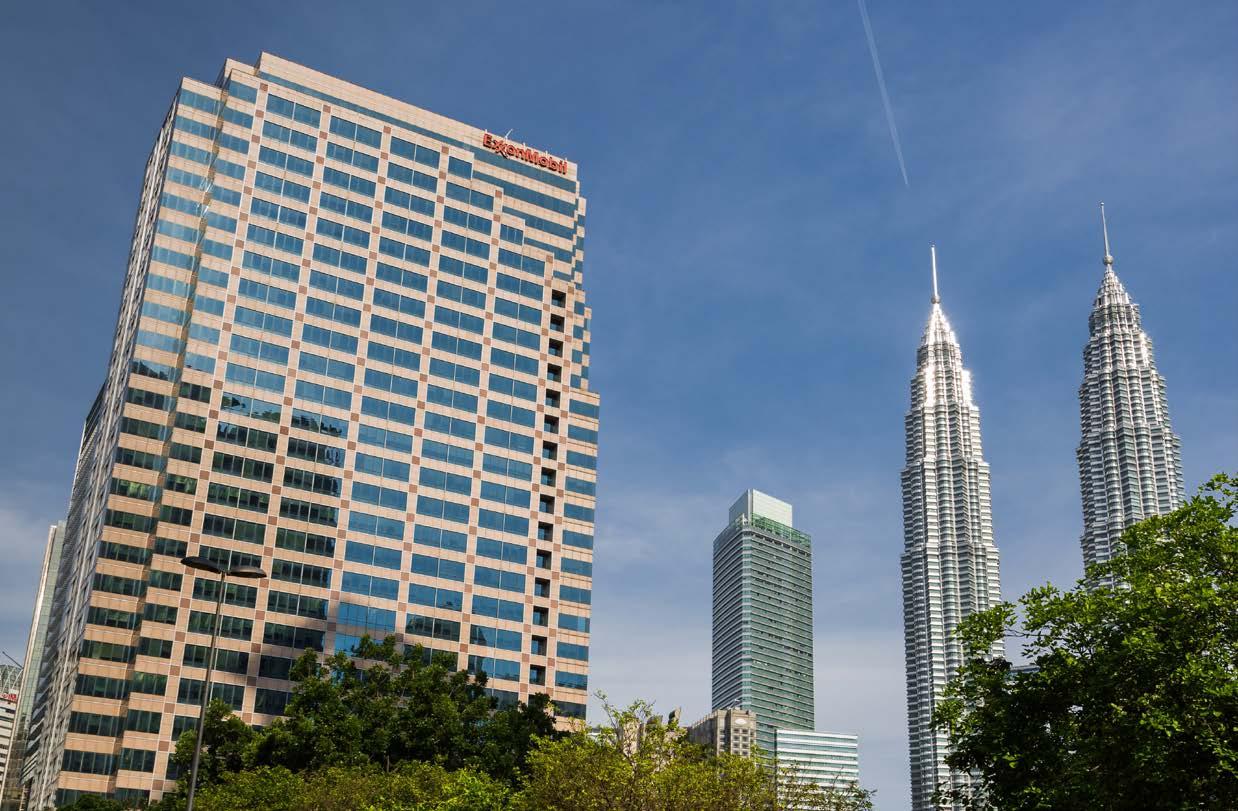
Tel: +603-4815 2000
Web: jobs.exxonmobil.com E-mail: -
Social media exxonmobil_careers.my ExxonMobil exxonmobilmalaysiajobs joinexxonmobil https://www.youtube.com/exxonmobil

Oil and Gas
Number of employees
1,000 – 10,000
Branch Offices
Terengganu
HQ Kuala Lumpur
“Fueling the world safely and responsibly”










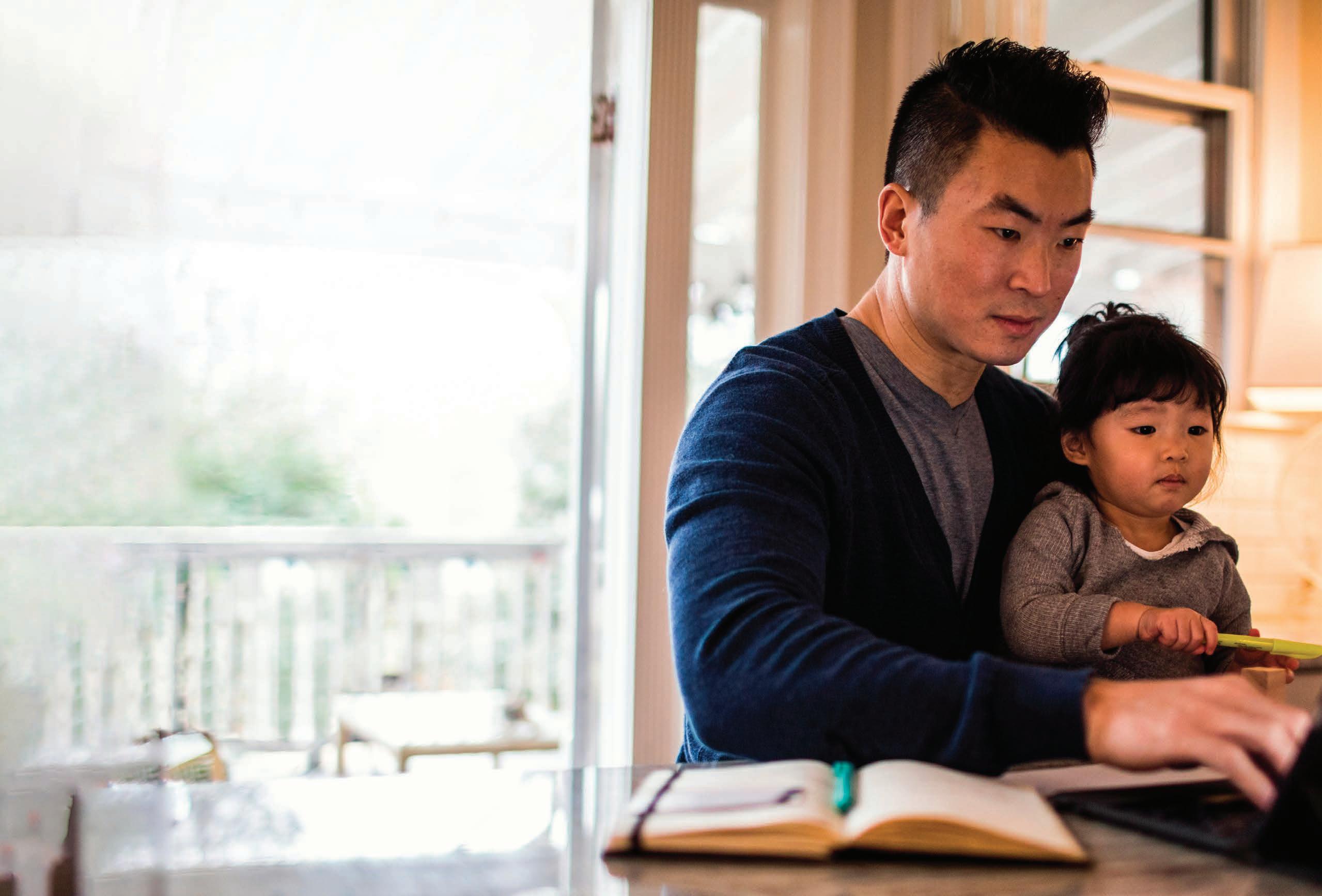
EY is a global leader in Assurance, Consulting, Strategy and Transactions and Tax. The insights and quality services we deliver help build trust and the world over. We develop outstanding leaders who team to deliver on our promises to all of our and communities.
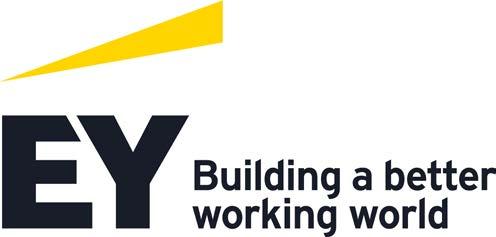
In Malaysia, we are one of the largest professional services organisations with more
range of clients grow, solve complex challenges we recommend is the drop that starts the ripple
Step 1: Online application through career portal (submit CV, cover letter and transcript)
Step 2: Online assessments and documents submission for shortlisted candidates
Step 3: Interview (applicable for Graduate roles only)
Step 4:
• Accounting, Business and Commerce
• Actuarial Science
• Cyber Security
• Data Analytics
• Data Science
• Economics
• Finance
• Humanities, Art and Social Sciences
• IT and Computer Sciences
• Law
• Maths
• Software Engineering
• Statistics
world in the midst of a Transformative Age, we need to respond to rapidly changing circumstances. And that’s what we’re all about at EY. Awards:
• Winner, Most Popular Graduate Employer in Accounting and Professional Services Sector 2021, Malaysia’s 100 Leading Graduate Employers

• Winner, Most Popular Graduate Employer in Consulting Sector 2021, Malaysia’s 100 Leading Graduate Employers
Please submit your application via EY Careers Portal at https://careers.ey.com/ey
Annual application periods
• Graduate jobs: All year round

• Internships: All year round
• And other related disciplines
Opportunities offered
• Graduate Jobs
• Internship Jobs
Main area(s) of business
• Assurance
• Consulting
• Strategy and Transactions
• Tax
Level 23A, Menara Milenium, Jalan Damanlela, 50490 Kuala Lumpur, Malaysia
Tel: +603-7495 8000
Web: https://www.ey.com/en_my/careers
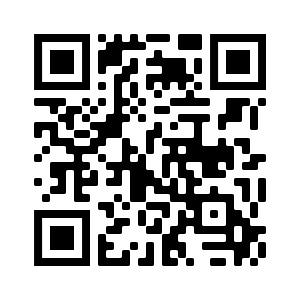
E-mail: All applications should be made via the website.
Social media
@eymycareers
EY Careers Malaysia
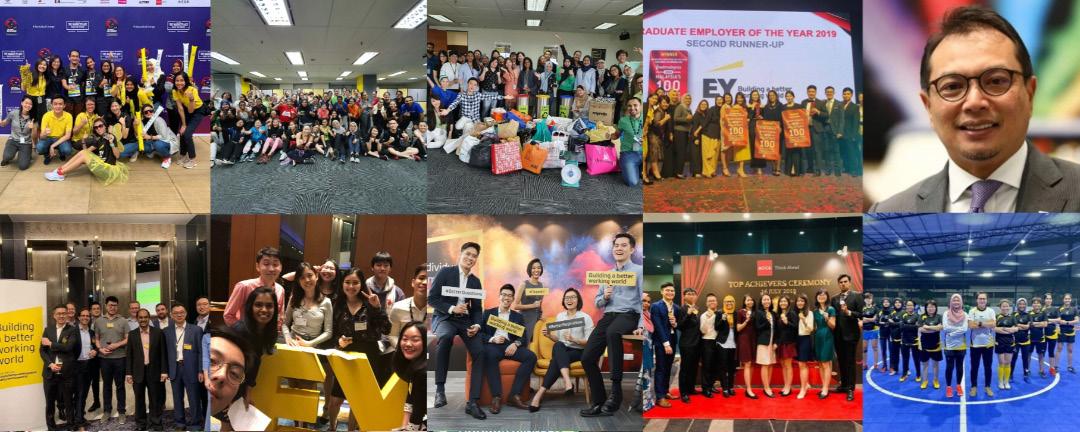
Type of business Professional Services
Number of employees
1,000 – 10,000
Puteri, Johor • Kota Kinabalu, Sabah • Kuching,
Sabah • Tawau, Sabah HQ
“The exceptional EY experience. It’s yours to build.”



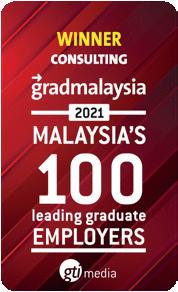

We offer family Takaful services, licensed under the Islamic Financial Services Act 2013 and regulated by Bank Negara Malaysia. We’re the takaful business unit of FWD Group. We’re committed to changing the way people feel about takaful, and we’re bringing a new approach to takaful with clear and simple products at a fair and affordable price so that everyone can celebrate living.
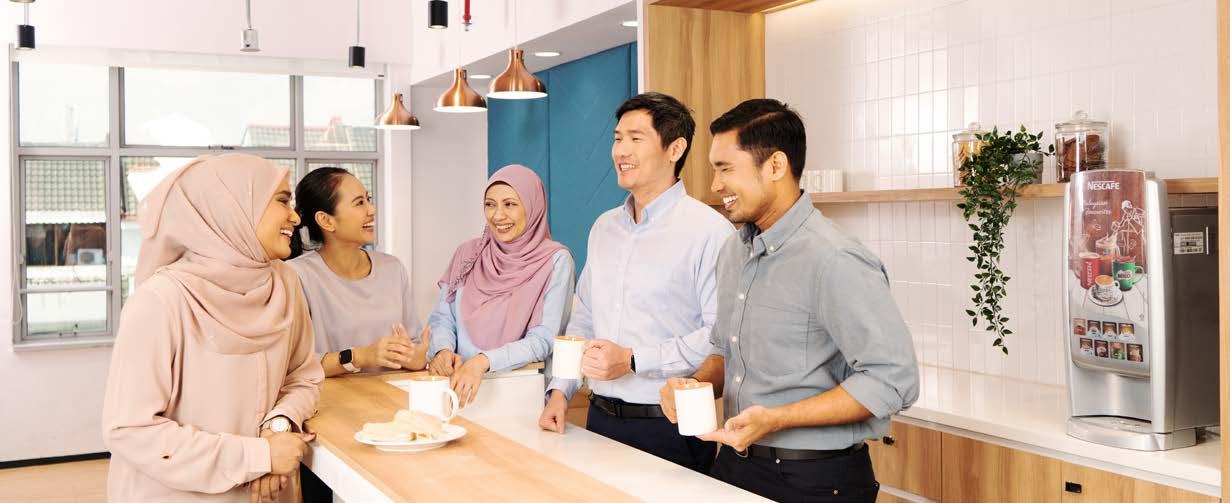
Join us
We’re proud to be a company that encourages and nurtures fearless innovation in achieving our vision of changing the way people feel about takaful. Our teams come from a wide variety of industries and backgrounds because we value developing a truly diverse pool of talent that brings different perspectives and experiences. Our values–committed, innovative, proactive, open, and caring together to bring our vision to life, every single day.
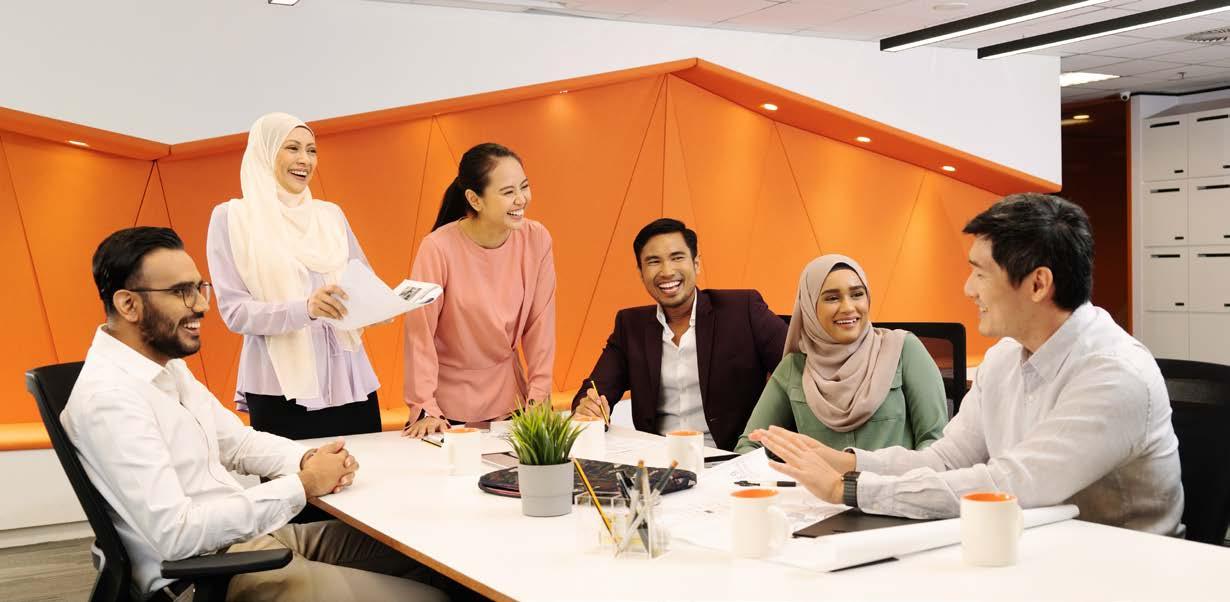
Join us in changing the way people feel about takaful by submitting your application to careers.my@fwd.com
• Graduate jobs: Jan to Dec
• Internships: Jan to Dec
Step 1: Application
Step 2: Interview
Step 3: Selection
Step 4: Offer
• Accounting
• Business Administration
• Economics
• Finance
• Humanities, Art and Social Sciences
• IT and Computer Sciences
• Law
• Maths
• Medical Sciences and Healthcare
• Sciences
• Graduate Jobs

• Internship Jobs
Main area(s) of business
• Banking and Financial Services

Level 29 Menara Shell, No. 211 Jalan Tun Sambanthan, 50470 Kuala Lumpur, Malaysia.
Tel: +603-2771 7888
Web: https://www.fwd.com.my/careers/ E-mail: careers.my@fwd.com
fwdtakaful
fwd.takaful
fwd takaful
Takaful Provider
Number of employees
100 – 500
HQ
Kuala Lumpur, Wilayah Persekutuan
“Changing the way people feel about Takaful”




As the largest and most established life insurer in the country, Great Eastern Life has served and protected millions of Malaysian families throughout their lives with its comprehensive policies since its establishment in 1908. A wholly-owned subsidiary of Great Eastern Holdings Limited, we have RM91.1 billion in assets, over 3 million policies in force, 21 operational branches, and a network of 19,000 agents nationwide.
As a member of the OCBC Group, Great Eastern Life works closely with its parent company in Bancassurance partnerships, and offers general and Takaful insurances through its General and Takaful arm. We offer a variety of options and versatility in our business operations, as well as our hiring practices, allowing inter-company career mobility opportunities across the Group regionally for our employees.
As a LIFE company, we are committed to providing an inclusive, progressive and flexible working environment that fosters a culture of collaboration, creativity and excellence. Our Flexible Working Arrangements (FWA) include flexi-hours, flexi-dress code, as well as work from home (WFH), enabling our people to integrate their work and personal life in a meaningful manner so that they can enjoy both a great life and a great career.
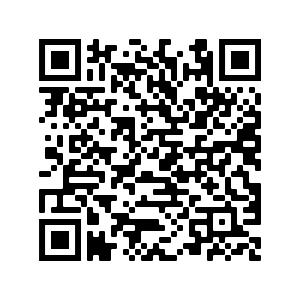
Send your application online on (website provided)
• Graduate jobs: All year round


• Internships: All year round
Selection process
Step 1: Completion
Step

Social media
Type of business
offered
Main area(s) of business





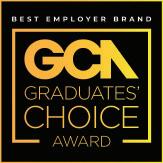

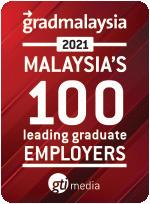
The Hartalega story began in 1988. Our insatiable appetite to constantly surpass our own achievements has transformed what started as a single-line production facility into what we are today, the largest producer of nitrile gloves in the world, with a growing capacity to manufacture billions of gloves every year.

Beyond being a participant in the glovemanufacturing industry, today, we pave the way forward through our commitment to innovation. As a result, we are home to advanced proprietary manufacturing technology that allows us to safeguard the quality of our products and the efficiency of our operations. Our unrivalled proprietary technology provides us with an important competitive edge as we own the fastest production lines in the industry, producing more than 45,000 gloves per hour.
As we grow by leaps and bounds, we are single-minded in ensuring that we make a meaningful difference by ensuring that all the lives we touch are protected and enhanced, be it healthcare practitioners and the people they care for, Hartanians, the communities we operate within, our shareholders or our various partners and stakeholders.
Candidates can apply through Hartalega website or other public job-search platforms for any available vacancies.
• Graduate jobs: Intake on April/May
• Internships: All the year
Step 1: Candidate submit online application Step 2: Recruiter will screen the CVs Step 3: Phone screening Step 4: Invite for interview (physical/virtual)
• Accounting
• Business Administration
• Economics
• Engineering
• Finance
• Humanities, Art and Social Sciences
• IT and Computer Sciences
• Law
• Medical Sciences and Healthcare
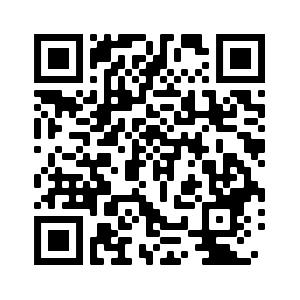
• Graduate Jobs


• Internship Jobs
Main area(s) of business
• Healthcare and Pharmaceutical
Hartalega NGC Sdn Bhd No.1 Persiaran Tanjung
Kawasan Perindustrian Tanjung 43900 Sepang
Selangor
Tel: +603-8707 3000
Web:E-mail: recruit@hartalega.com.my
Social media
Type of business Chemical and Heavy Industries
Number of employees
1,000 – 10,000
Branch Offices
Bestari Jaya • Petaling Jaya • Bandar Sri Damansara HQ Sepang, Selangor








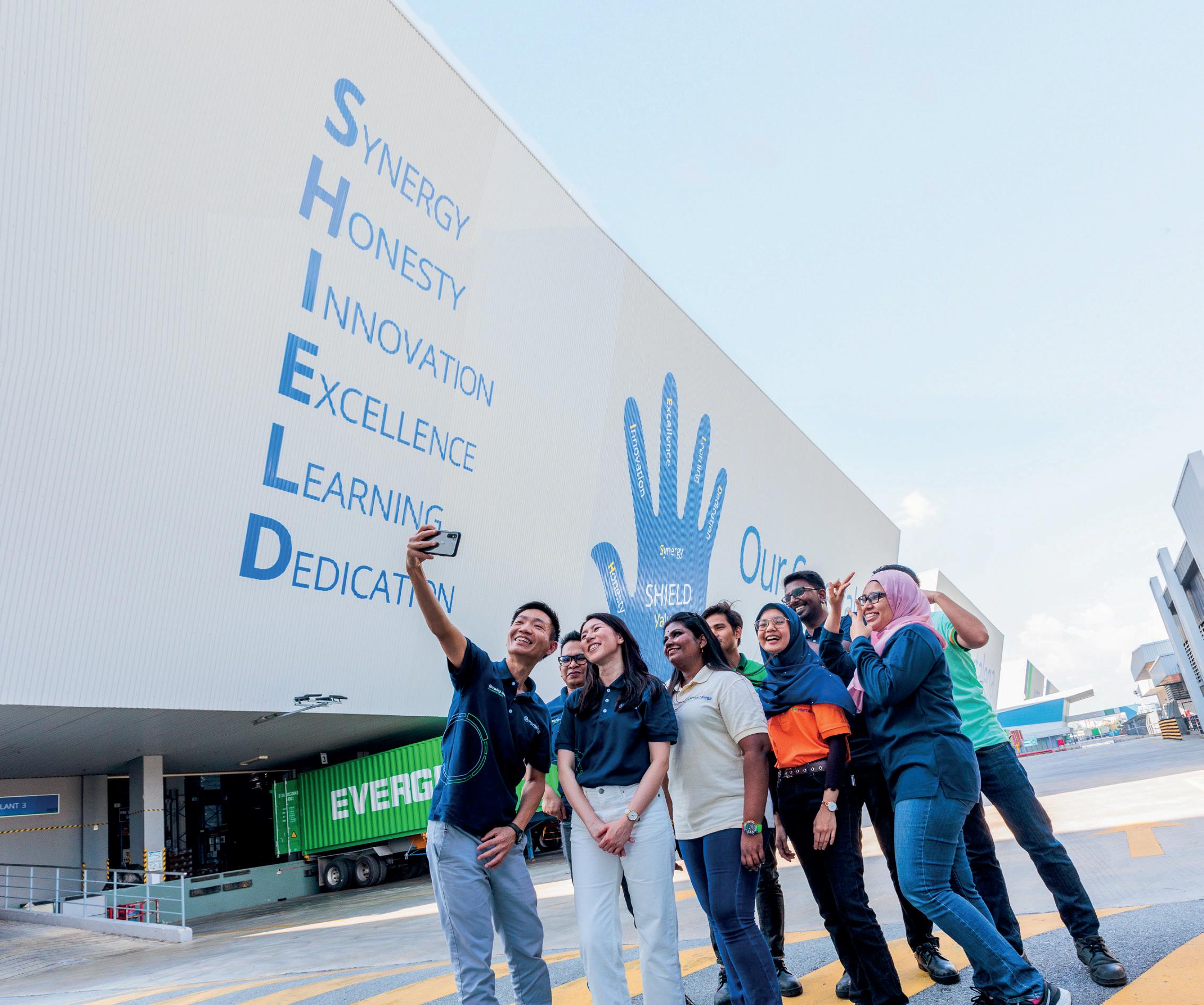

Founded in 1880, ICAEW has a long history of serving the public interest and we continue to work with governments, regulators and business leaders globally. And, as a world-leading improvement regulator, we supervise and monitor around 12,000

students, to the highest standards of professional competency and conduct.
We promote inclusivity, diversity and fairness and give talented professionals the skills and values they need to build resilient businesses, economies and societies while ensuring our planet’s resources are managed sustainably.
to be carbon neutral, demonstrating our commitment to tackling climate change and supporting UN Sustainable Development Goal 13.
ICAEW is a founding member of Chartered Accountants Worldwide (CAW), a global family that connects over 1.8m chartered accountants and students in more than 190 countries. Together, we support, develop and promote the role of chartered accountants as trusted business leaders, difference makers and advisers.
Interested students are encouraged to apply to study with our tuition providers – Sunway TES, INTEC and KAPLAN.
Step 1: Online application
Step 2: Aptitude testing
Step 3: Interview Hiring criteria
• Accounting
• Business Administration
• Economics
• Engineering
• Finance
• Humanities, Art and Social Sciences
• IT and Computer Sciences
• Law
• Maths
• Medical Sciences and Healthcare
• Property and Built Environment
• Sciences
• Social Work
• Teaching and Education
Opportunities offered
• Graduate Jobs
• Internship Jobs
Main area(s) of business
• Accountancy and Financial Management
• Banking and Financial Services

Level 2, Chulan Tower, Jalan Conlay, 50450 Kuala Lumpur, Malaysia
Tel: +603-2171 6022
Web: Icaew.com
E-mail: malaysia@icaew.com
Social media https://www.facebook.com/ICAEW.MY
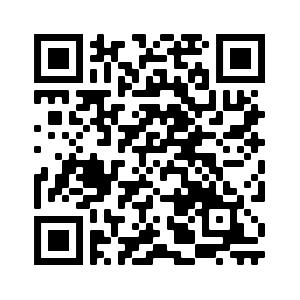
Type of business
Professional services
Number of employees
Less than 100 employees
Level 2, Chulan Tower, Jalan Conlay, 50450 Kuala Lumpur, Malaysia
Main HQ
1 Moorgate Pl, London EC2R 6EA, United Kingdom
“Creating a world of strong and sustainable economies”













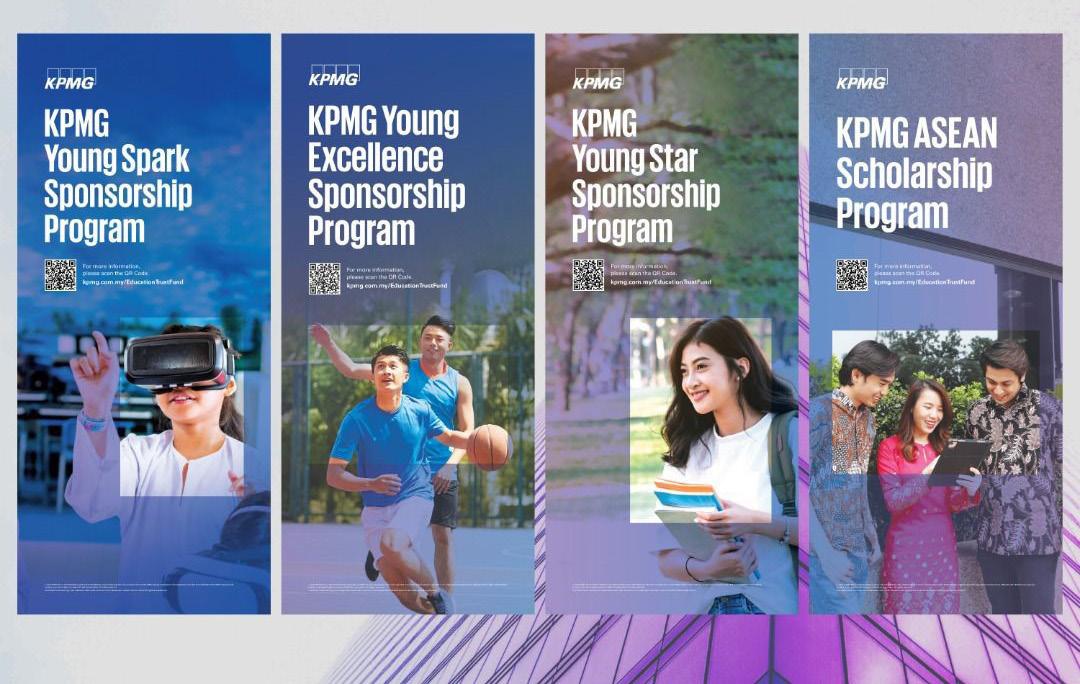
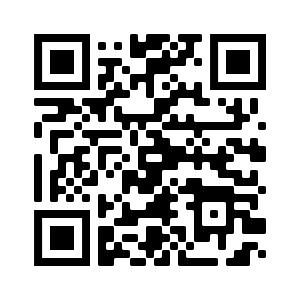
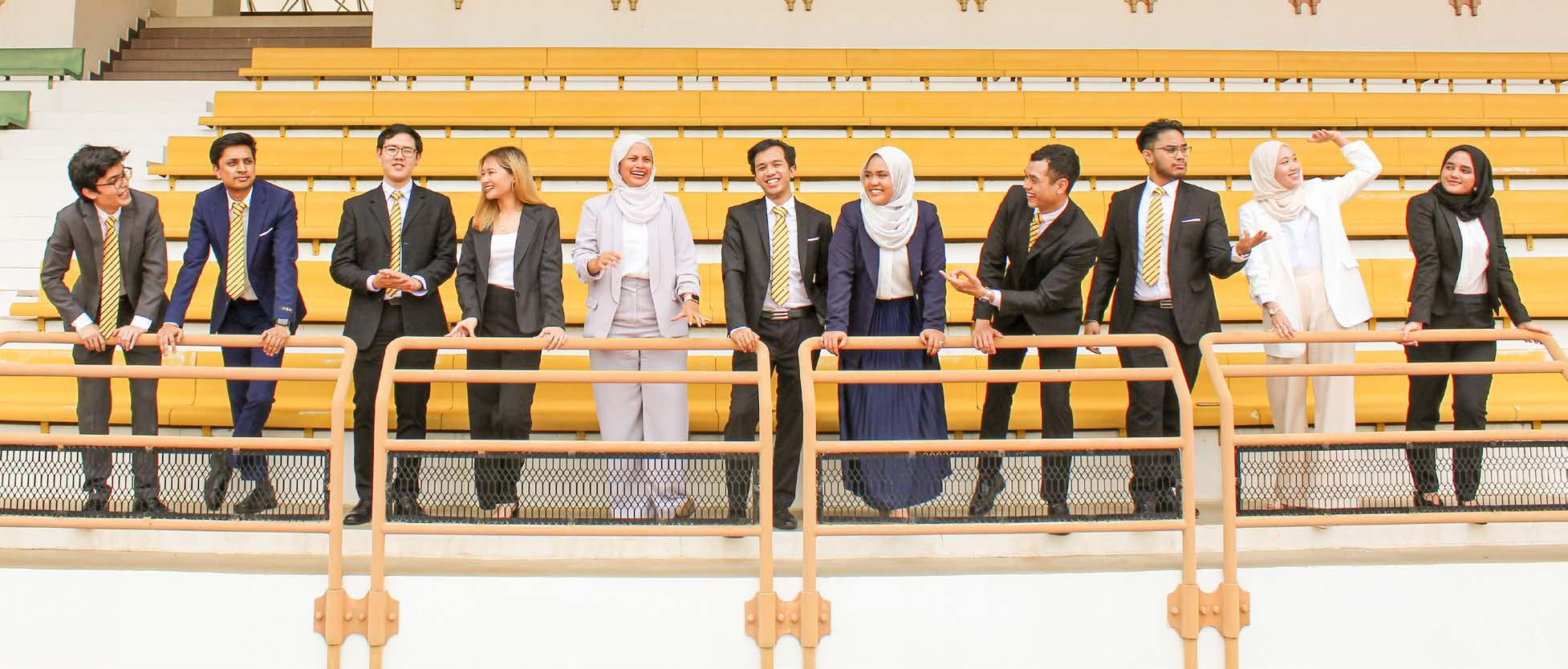

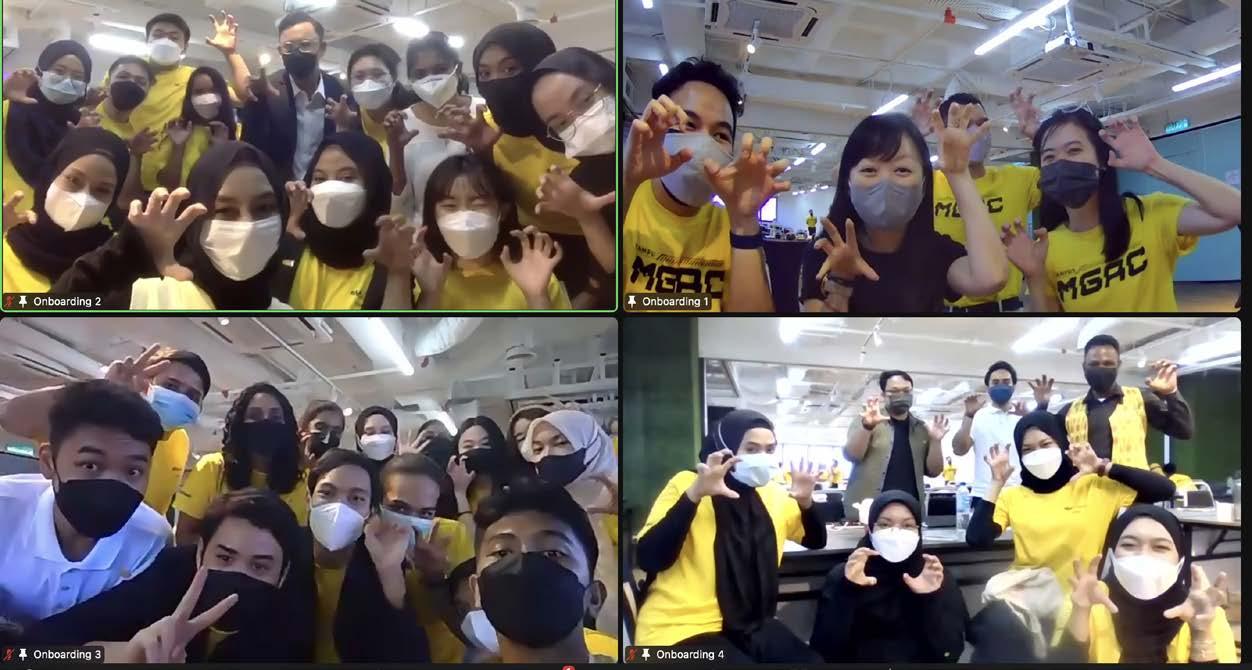
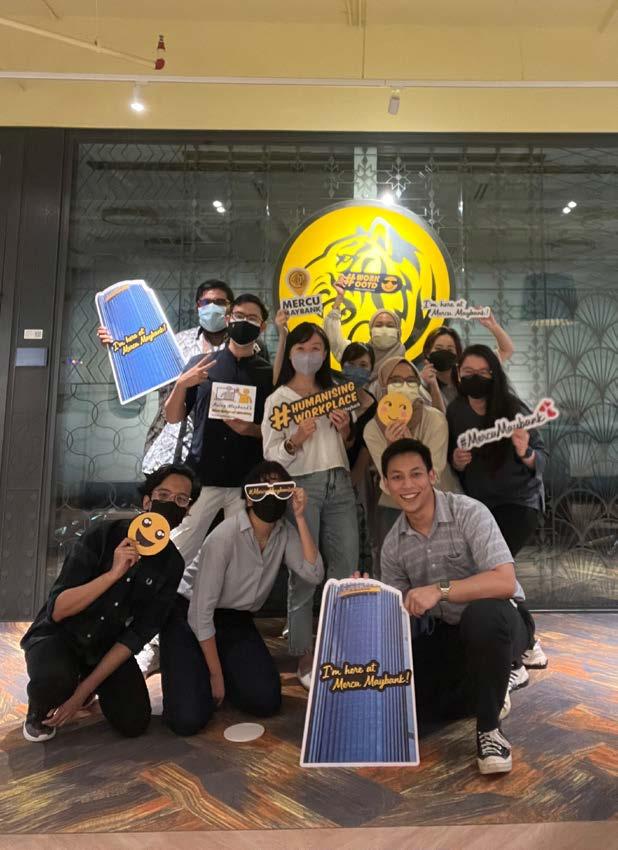
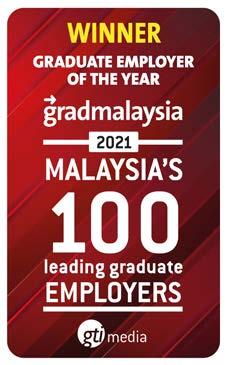

Throughout our journey, Nestlé (Malaysia) Berhad has been driven by our purpose of unlocking the power of food to enhance quality of life for everyone, today and for generations to come. This singleminded commitment has guided us forward since our establishment 110 years ago in 1912. Standing

manufacturer, we continue to work every day to bring our purpose to life.

Today, Nestlé Malaysia operates 6 factories and employs more than 5,000 employees nationwide,
of our key brands have now become a part of Malaysian households for generations, including Malaysian favorites such as Milo, Maggi, Nescafé and Kit Kat. Having been present in the nation and in the hearts of Malaysians for over a century, we are nutrition and taste.
To further enhance quality of life and ensure a healthier future, we drive efforts that not only contribute to our communities, but the future of our planet.

“Our purpose is to unlock the power of food to enhance quality of life for everyone, today and for generations to come.”

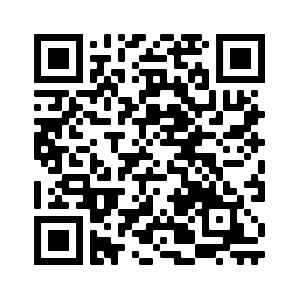


Start your career with PwC - where your unique skills and perspective are what makes our diverse community of solvers. So, how do we support each person in contributing to our purpose to build trust in society and solve important problems?
By creating an experience that stays with youthrough Growth, Recognition, Opportunities, and Ways of Working (GROW). Here at PwC, we provide you with Growth opportunities in different ways, such as:
• On-the-job coaching, with an emphasis on real-time development
• Vantage, a mobile learning app providing personalised on-the-go guidance for learning and development
• Digital Accelerators and Virtual Digital Academy are some programmes for our people to enhance their digital skills at varying intensities
• Financial and leave support to complete professional certifications
We also value Recognition and appreciation for a job well done, through flexPoints, a web and mobile app that allows our people to give and receive real-time recognition through points and badges. These points can then be used to redeem gifts from various brands on the platform.
The work that you do, regardless of level or business unit will be focused around solving
challenges and delivering meaningful outcomes. We also believe that the work we do goes beyond corporate and needs to benefit the wider public. This is where we have had continuous collaborations with relevant organisations such as Kampus Digital which is an initiative to upskill students through self-learn modules with virtual coaching provided by the firm.
Finally, while what we deliver matters, how we deliver it together matters too. That is why we value your wellbeing by offering flexibility and different ways of working through initiatives such as:
• flex+ programme
flexFridays: Every second Friday of the month, we’re allowed to leave work at 12:30pm. This applies during the WFH period too.
flexMed: Allows our people to take medical leave without needing to produce a medical chit
flexBenefits: Flexibility to use benefits allowance in areas most needed (e.g., medical benefits, lifestyle-related benefits)
Career break: an option for our employees to take time off for their personal needs such as pursuing a passion or care for family members Birthday leave
• #PwCWellbeing: A wellness campaign that encourages healthy wellbeing habits, catering to the body, mind, and heart (e.g. mindfulness classes, fitness, activities and much more) #LepakwithaStranger which is a platform to meet new people within the firm and be more inclusive of one another. Join PwC today and be a part of The New Equation.
Candidates can apply directly on pwc.com/my/ careers

• Graduate jobs: All year round

• Internships: All year round
Step 1: Online application with supporting documents
Step 2: Assessments
Step 3: Interview

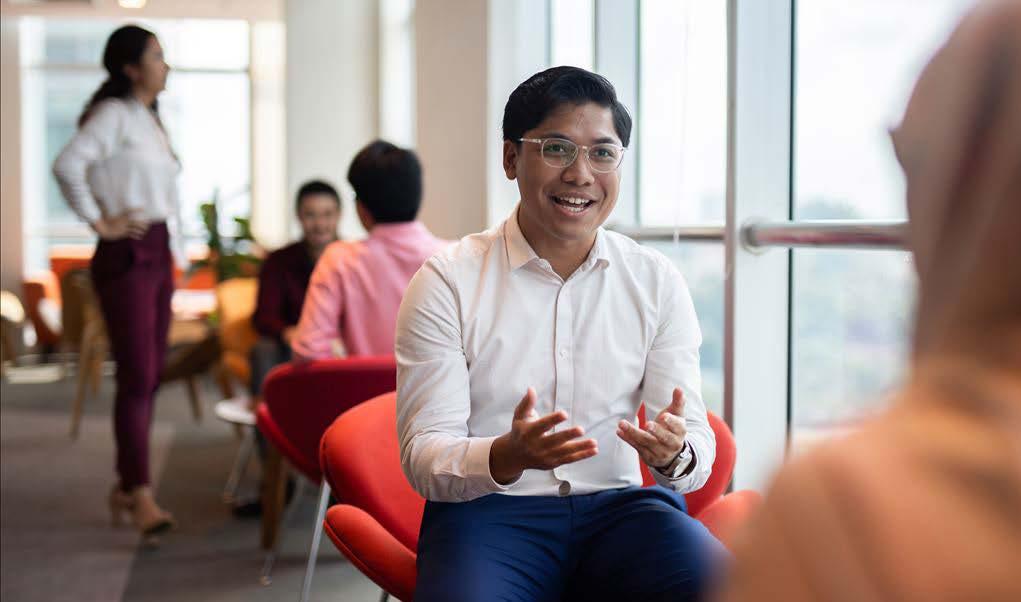


RHB Banking Group is a multinational regional financial services provider that is committed to delivering complete solutions to customers through differentiated segment offerings and an ecosystem that supports simple, fast and seamless customer experiences, underpinned by a cohesive and inspired workforce, and relationships built with stakeholders.
Ranked among the top banks in Malaysia and with a significant presence in ASEAN, RHB has strong market leadership in Malaysia across targeted products and segments. With more than 14,000 employees Group-wide, RHB’s presence spans 9 countries in the ASEAN region.
RHB Banking Group is a fully integrated financial services group in Malaysia. The Group’s core businesses are structured into five business pillars, namely Group Community Banking, Group Wholesale Banking, Group Shariah Business, Group International Business and Group Insurance.
html
• Graduate jobs: 2 intakes every year: July and October


• Internships: Throughout the year
Step 1: Online application
Step 2: Online assessment
Step 3: Interview
• Accounting
• Business Administration
• Economics
• Engineering
• Finance
• Humanities, Art and Social Sciences
• IT and Computer Sciences
• Law
• Maths
• Property and Built Environment
• Sciences
• Teaching and Education
• Graduate
• Internship
Main area(s) of business
• Accountancy and Financial Management
• Banking and Financial Services
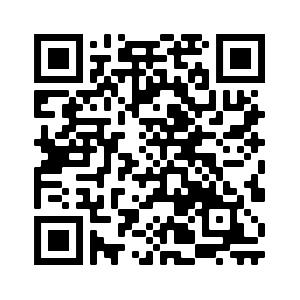
• Consulting
• Insurance and Risk Management
• Investment Banking and Investment Management
• IT and Technology

RHB Centre, 426, Jln Tun Razak, Royal Selangor Golf Club, 50400 Kuala Lumpur, Federal Territory of Kuala Lumpur
Web: https://rhbgroup.is-hiring.com/ internship_and_graduate
Social media
careersatrhb / rhbgroup
RHB Group
RHBGroup
RHB Group
Type of business Banking
Number of employees
10,000 – 50,000
*Note: RHB has more than 14,000 employees across RHB Banking Group
Branch Offices
• Across Malaysia
• Regional office: Malaysia, Brunei, Singapore, Cambodia, Indonesia, Laos, Thailand, Vietnam, Myanmar
HQ
RHB Centre, Jln Tun Razak, Kuala Lumpur
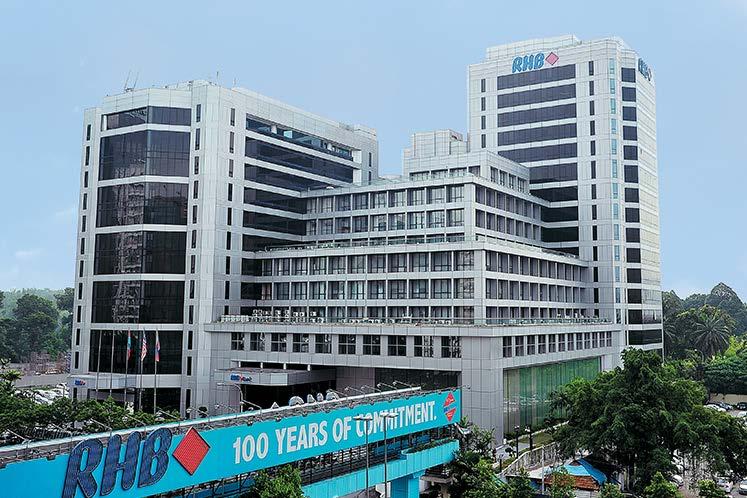
Samsung Malaysia Electronics (SME) Sdn Bhd (“Samsung Malaysia”) is the Malaysian subsidiary for the mobile and consumer experience divisions of Samsung Electronics. Established in 2002, we are a leading player in the Malaysian mobile, visual display and digital appliances industry. Our ethos is to place
range of smart devices and appliances to help create seamless and integrated experiences. We aim for Malaysian consumers to achieve convenience and in Mercu 2, KL Eco City, Kuala Lumpur and we have
We are a diverse group of driven talents who want to create lasting positive change in society. Guided by our philosophy “Inspire the World, Create the Future” we are committed to developing new technologies and innovative products that enhance the lives of our customers, employees and the global community. We are known for our innovation culture and provide opportunities when it comes to career growth and personal development through our on-the-ground and online learning programmes.
Samsung Malaysia takes immense pride in how we invest in our people. After all, it is our people who facilitate change and help drive the business.

Search for ‘Samsung Malaysia Electronics’ on Jobstreet and LinkedIn
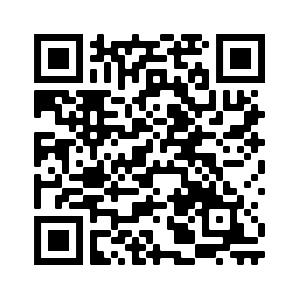
Annual application periods
January - December
Step 1: Online application Step 2: Phone screening Step 3: Interview
• Accounting • Business Administration
• Economics
• Engineering
• Finance
• Humanities, Art and Social Sciences
• IT and Computer Sciences
• Law
• Maths
• Medical Sciences and Healthcare
• Property and Built Environment
• Sciences
• Social Work
• Teaching and Education
• Graduate Jobs
• Internship Jobs
Main area(s) of business
• IT and Technology
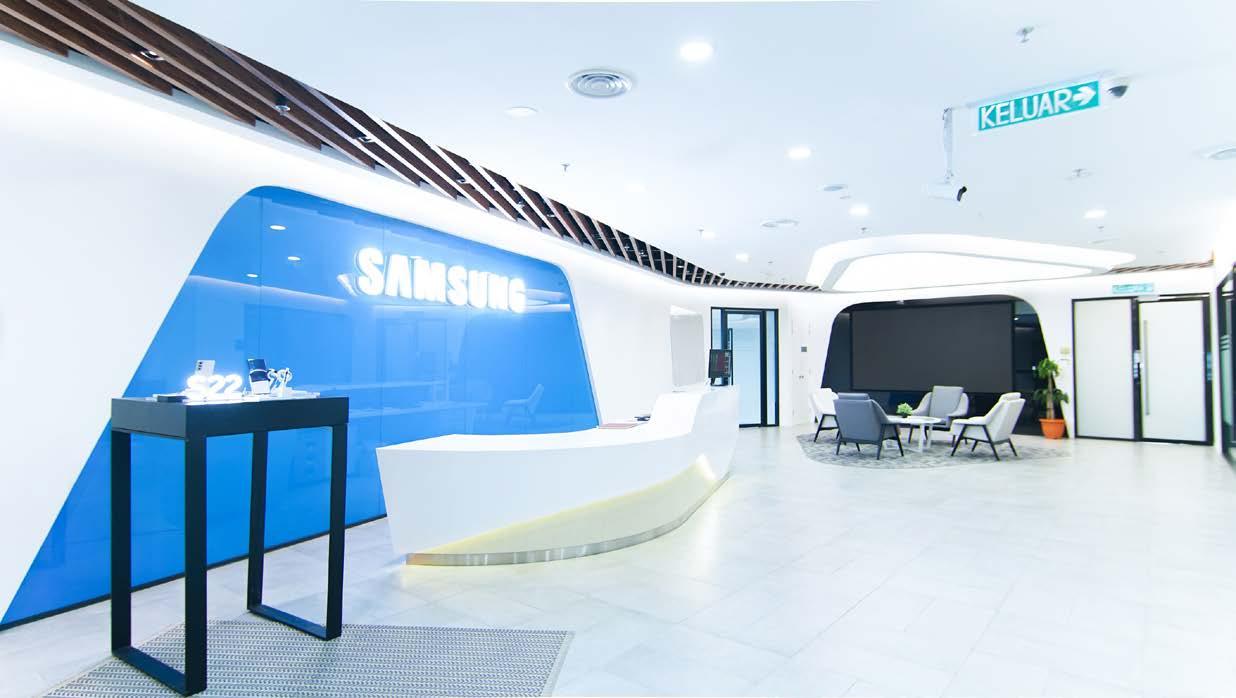
HR & General Affairs Department
Level 15, Mercu 2,
No. 3, Jalan Bangsar, 59200 Kuala Lumpur
Tel: +603-2728 0000
Web: https://www.samsung.com/my/aboutus/careers/
E-mail: hrsme.kl@samsung.com
Type of business Electronics
Number of employees
100 – 500 Location Mercu 2, KL Eco City






